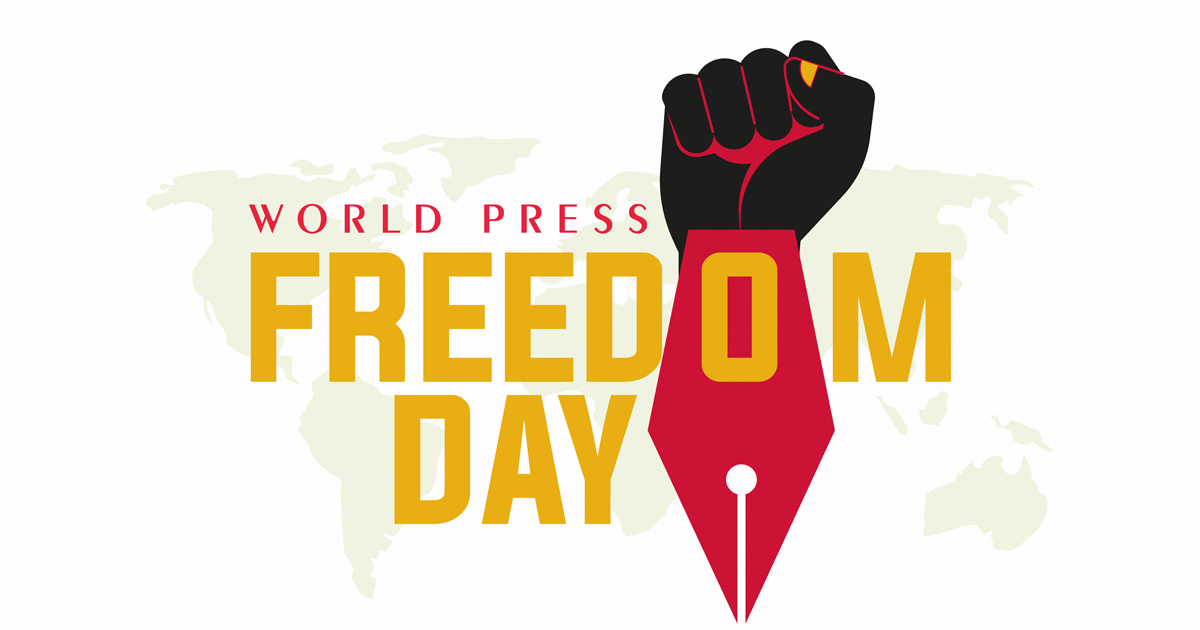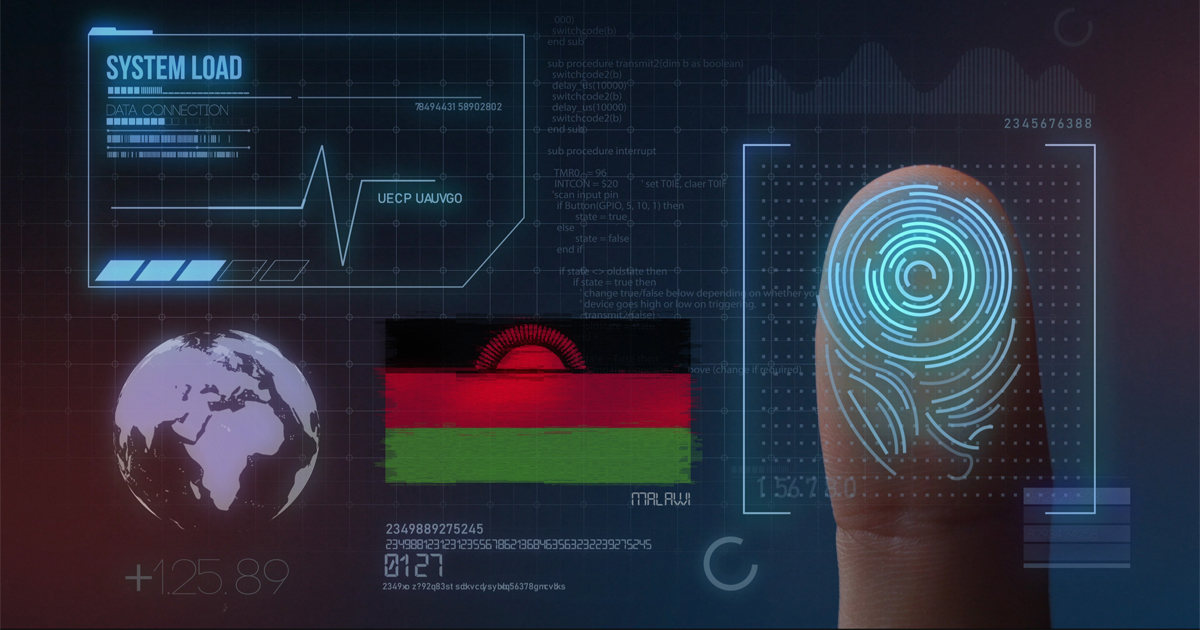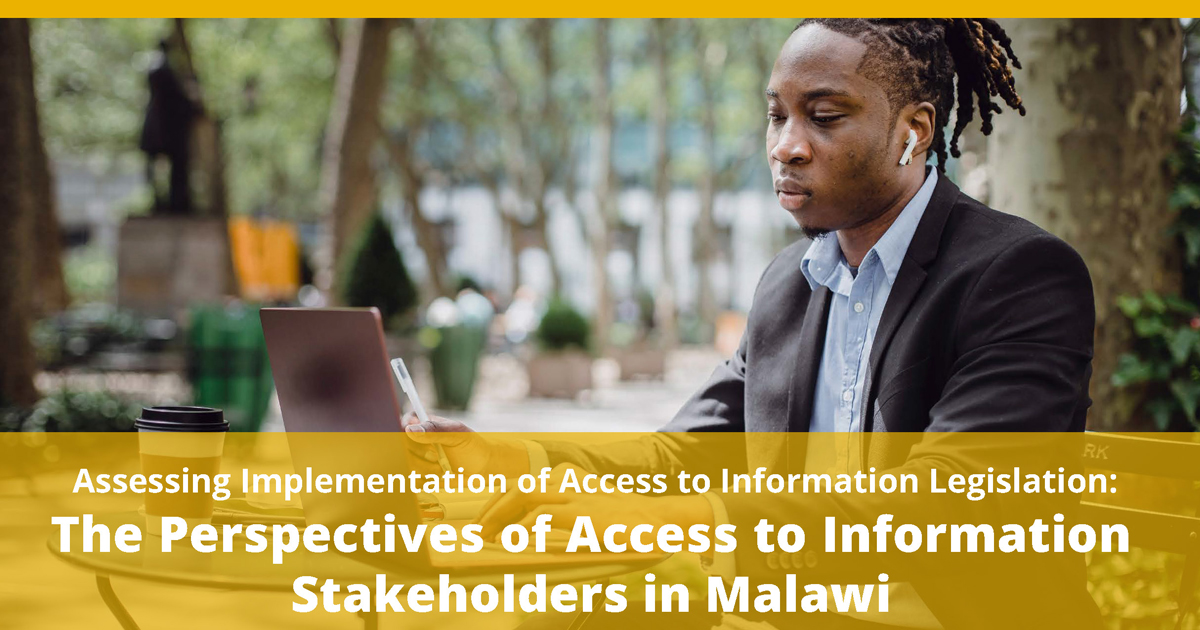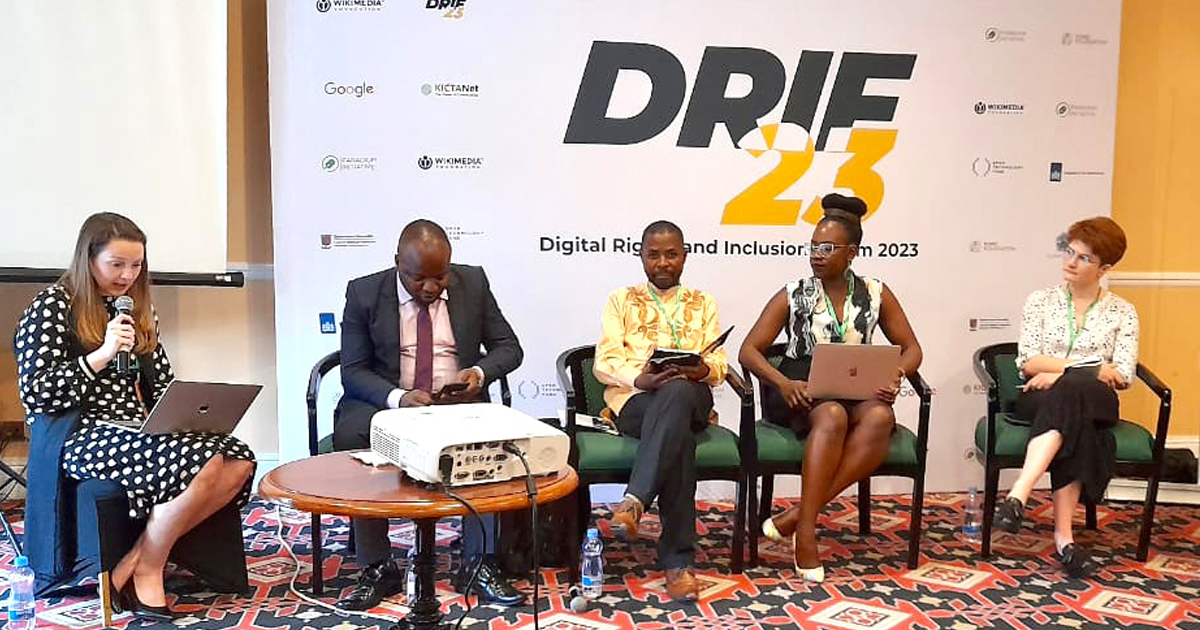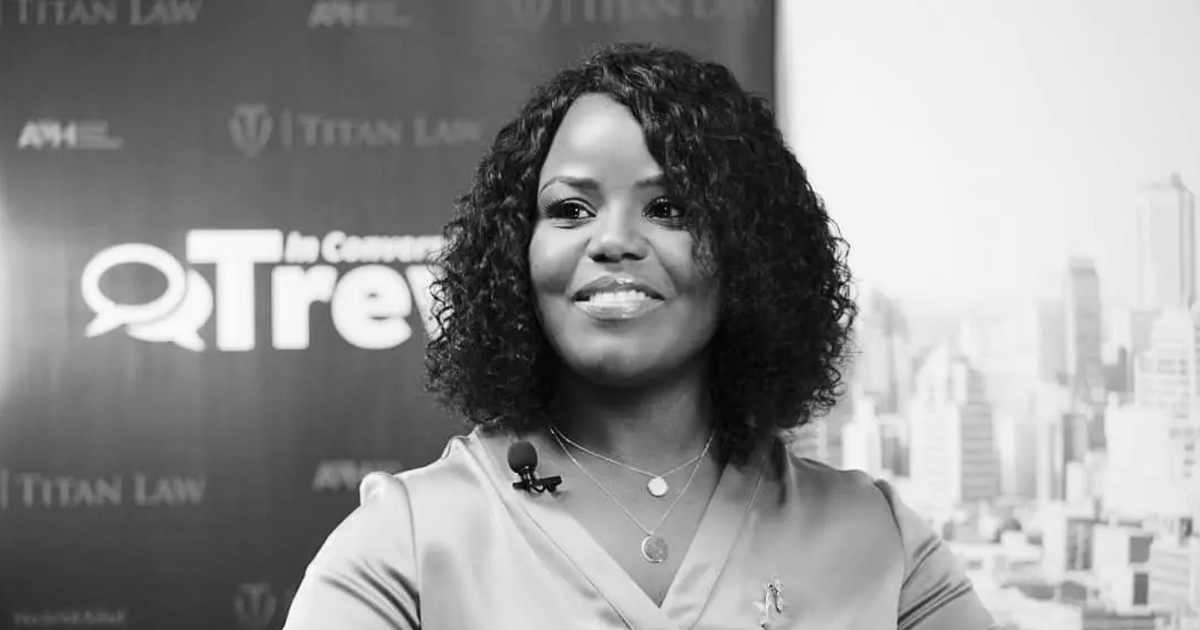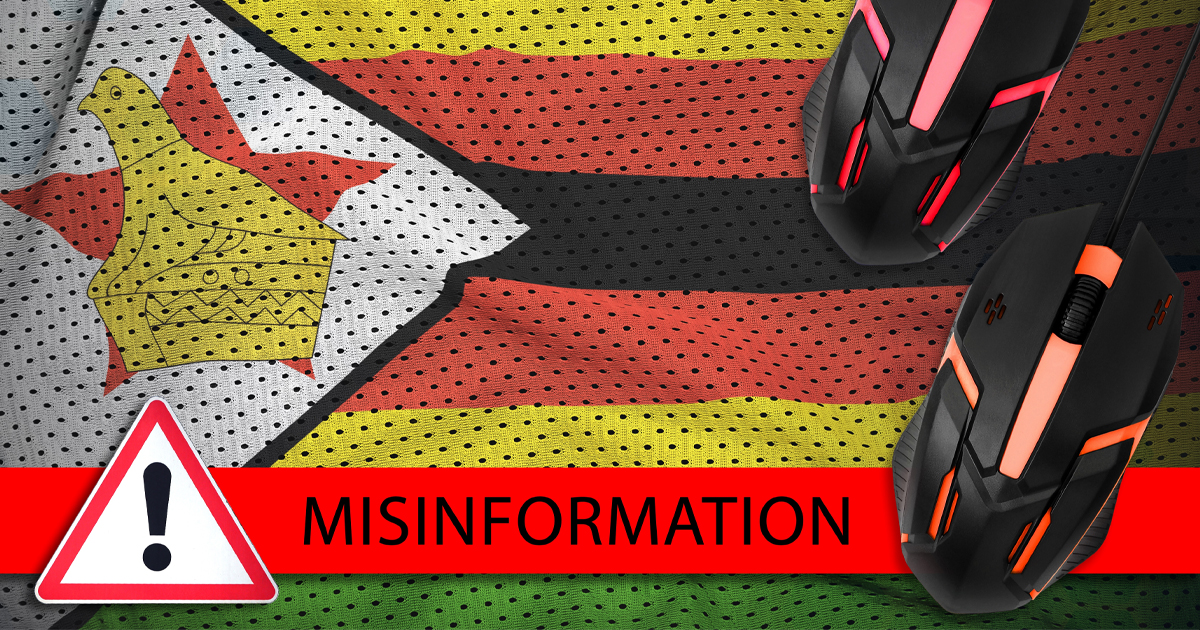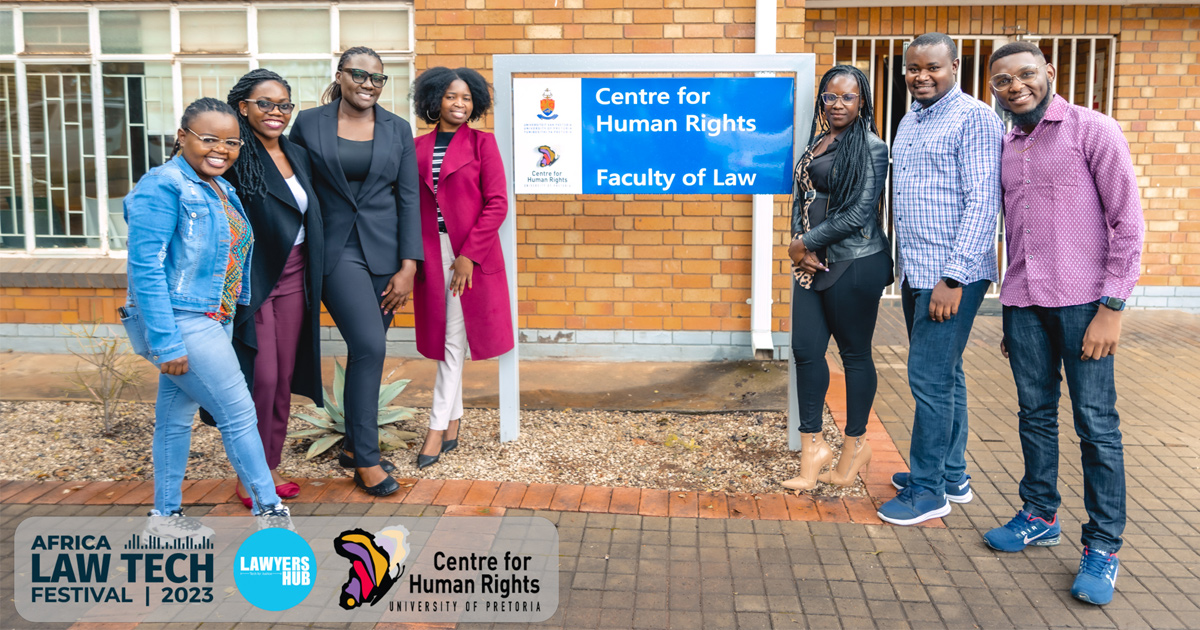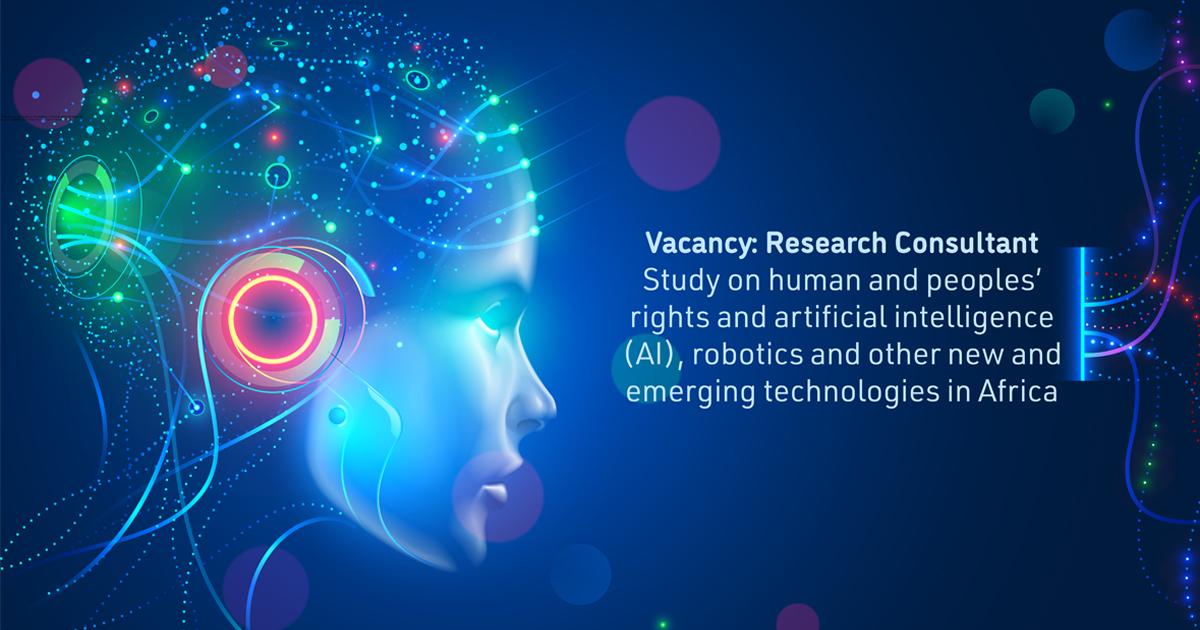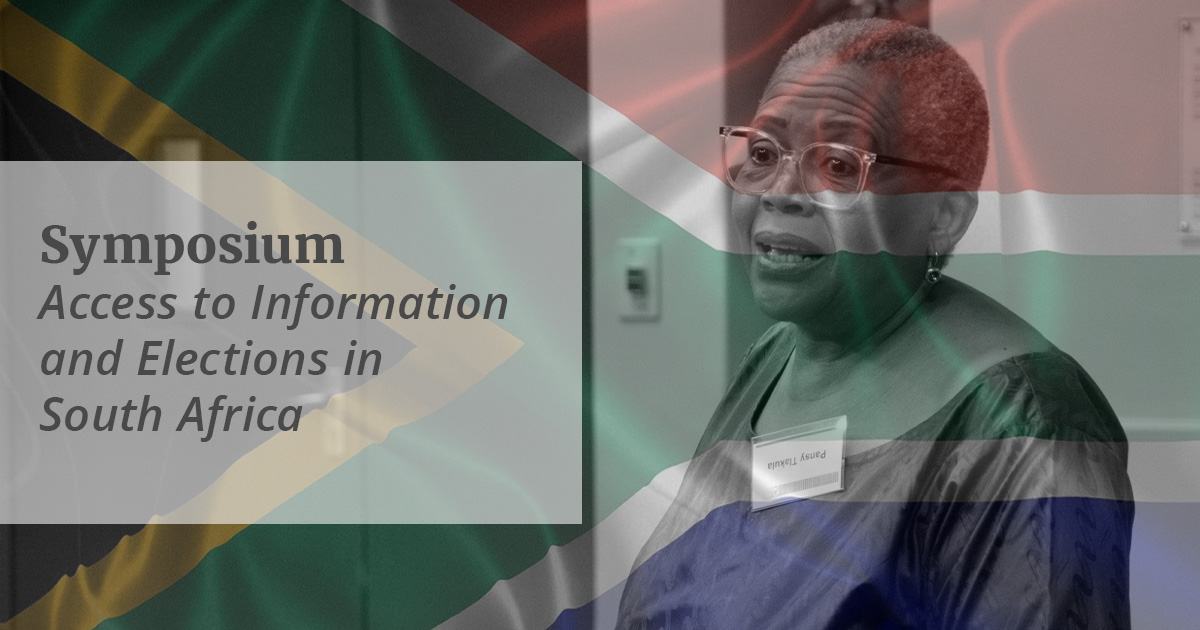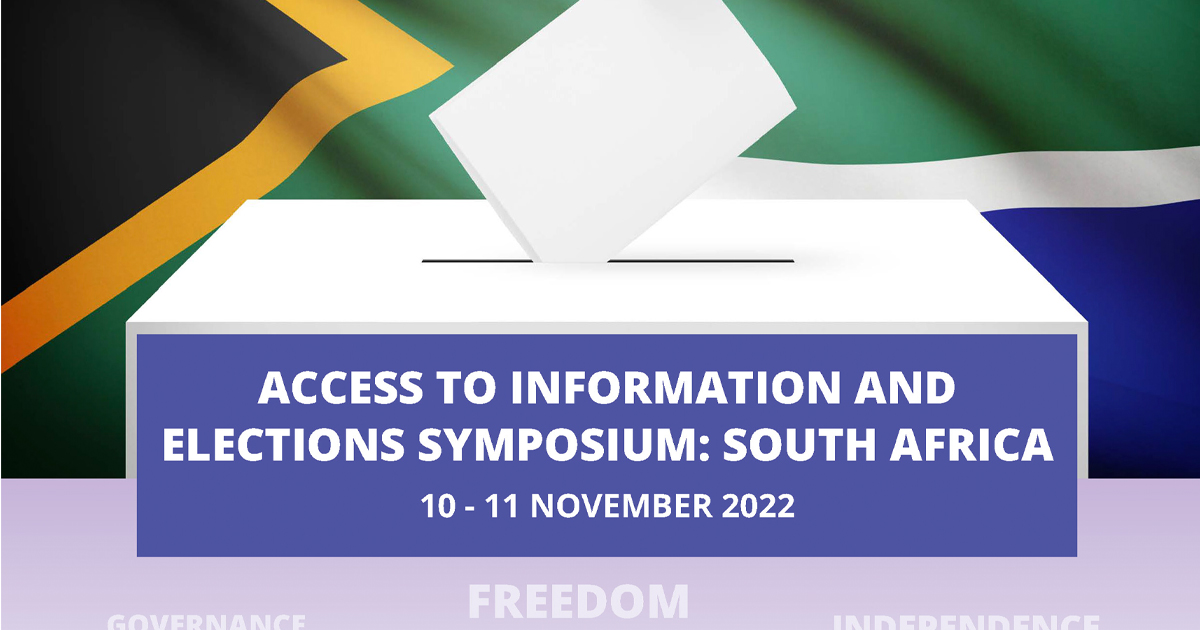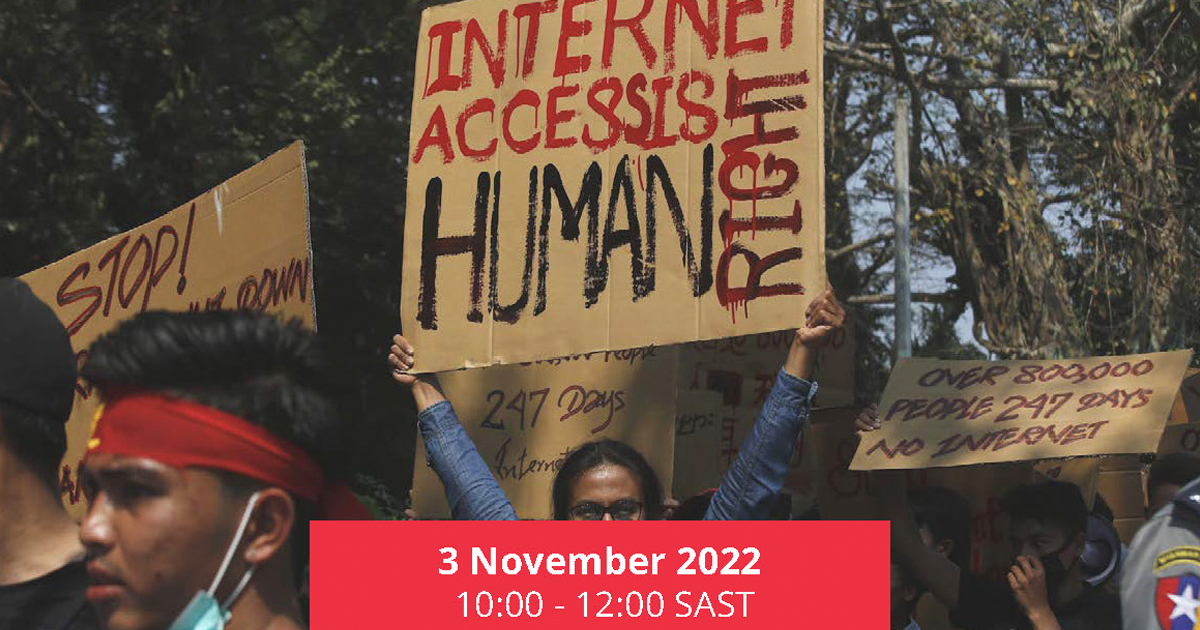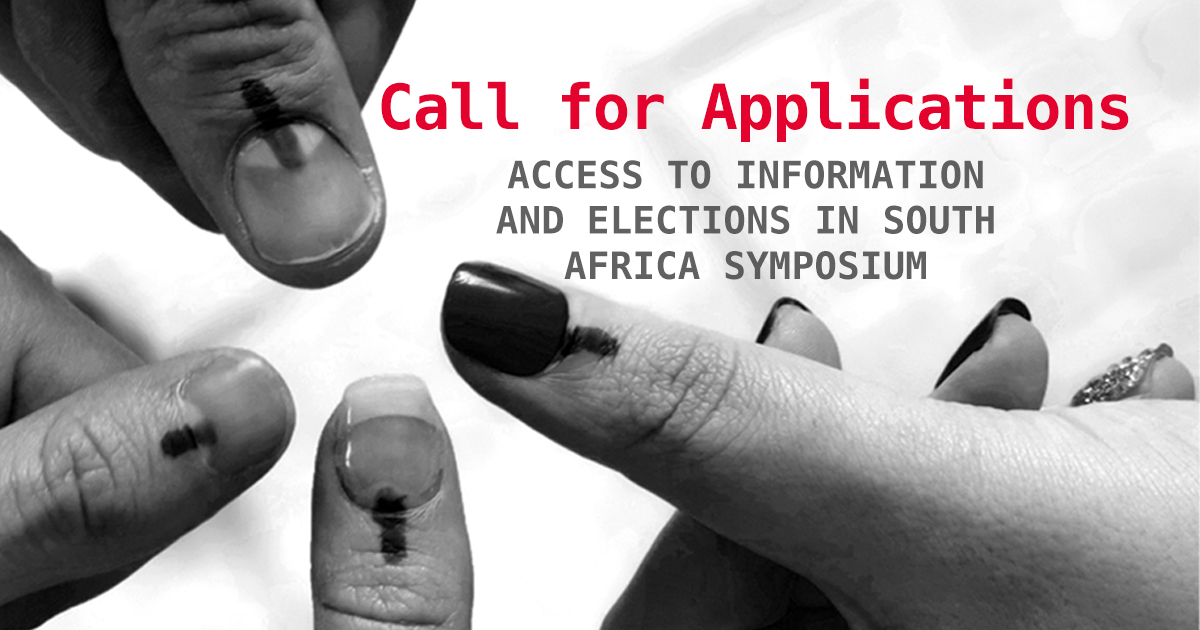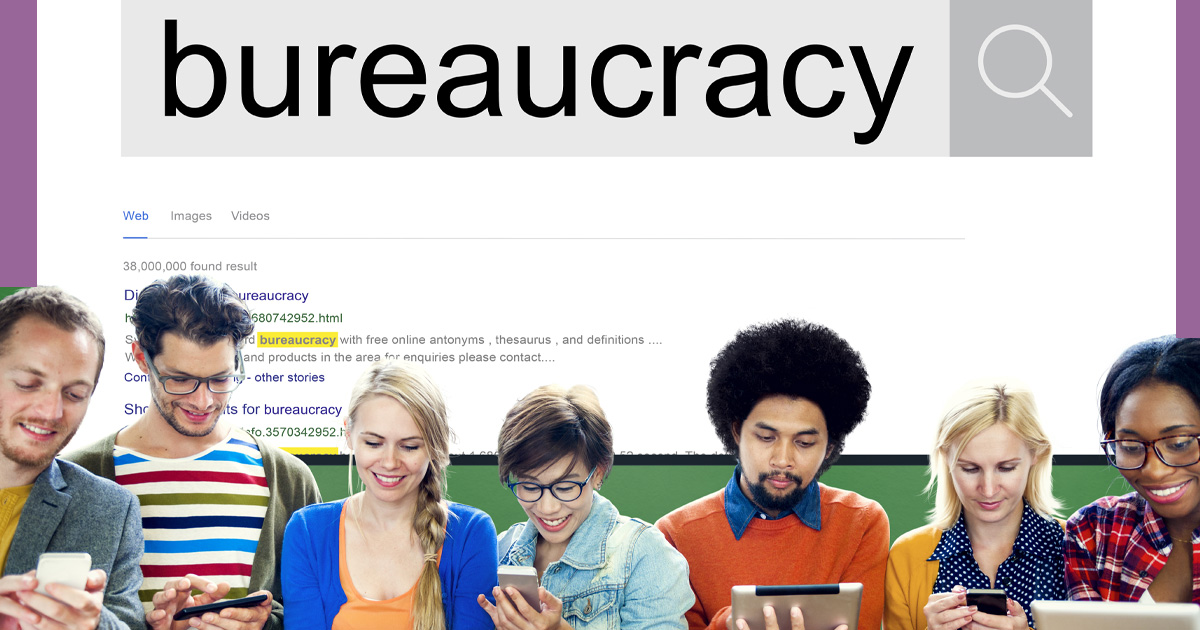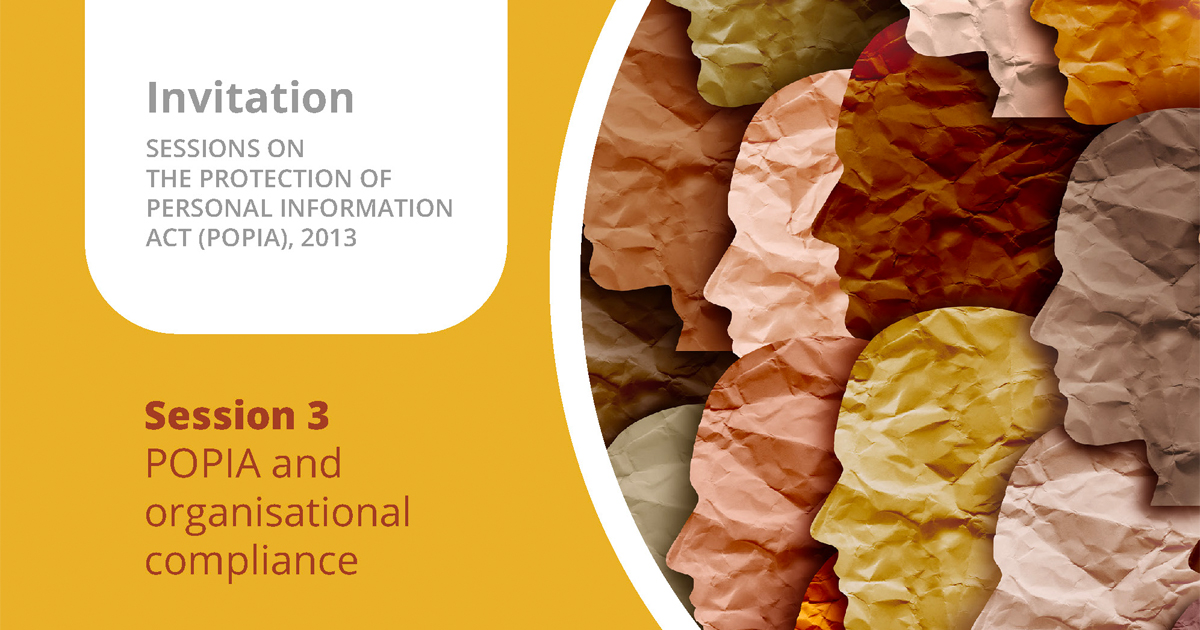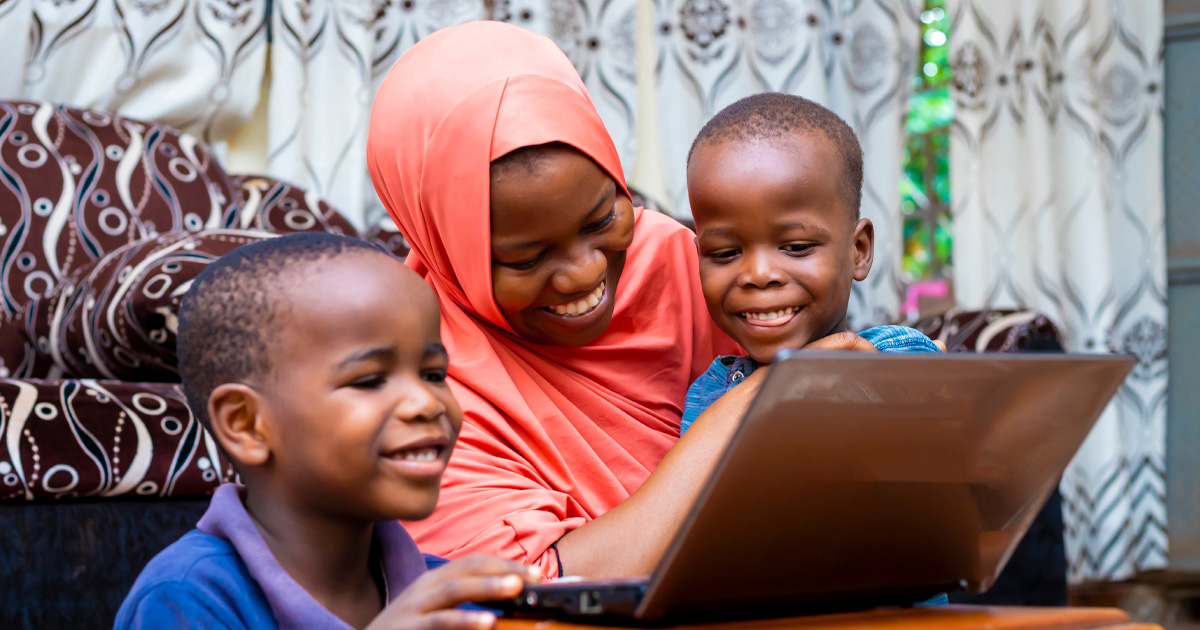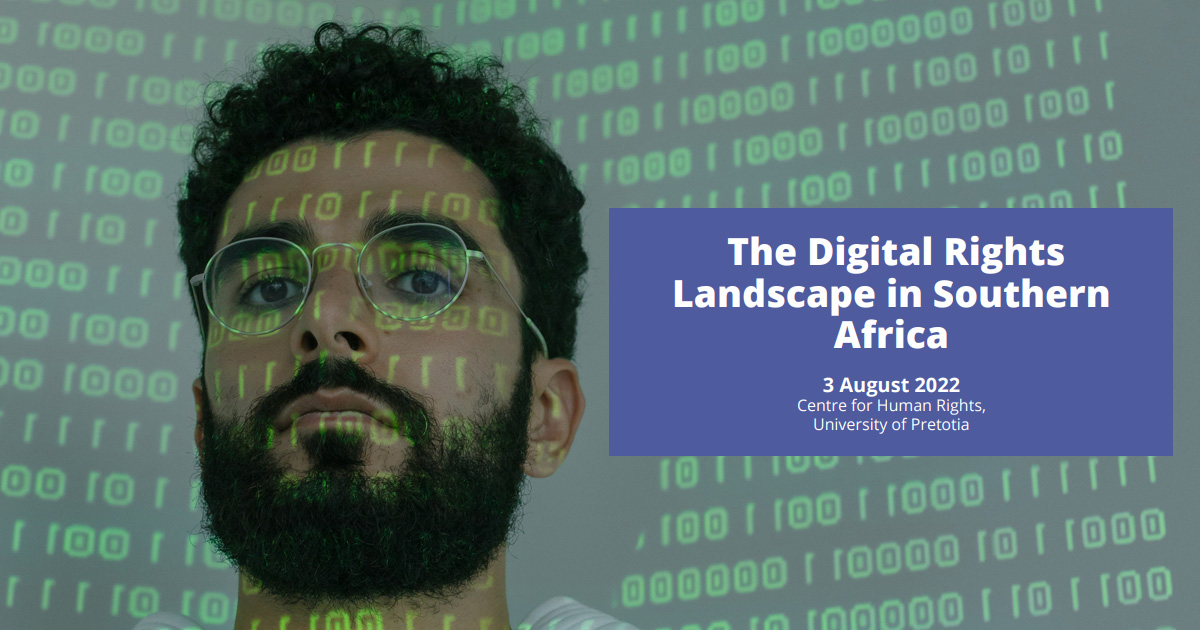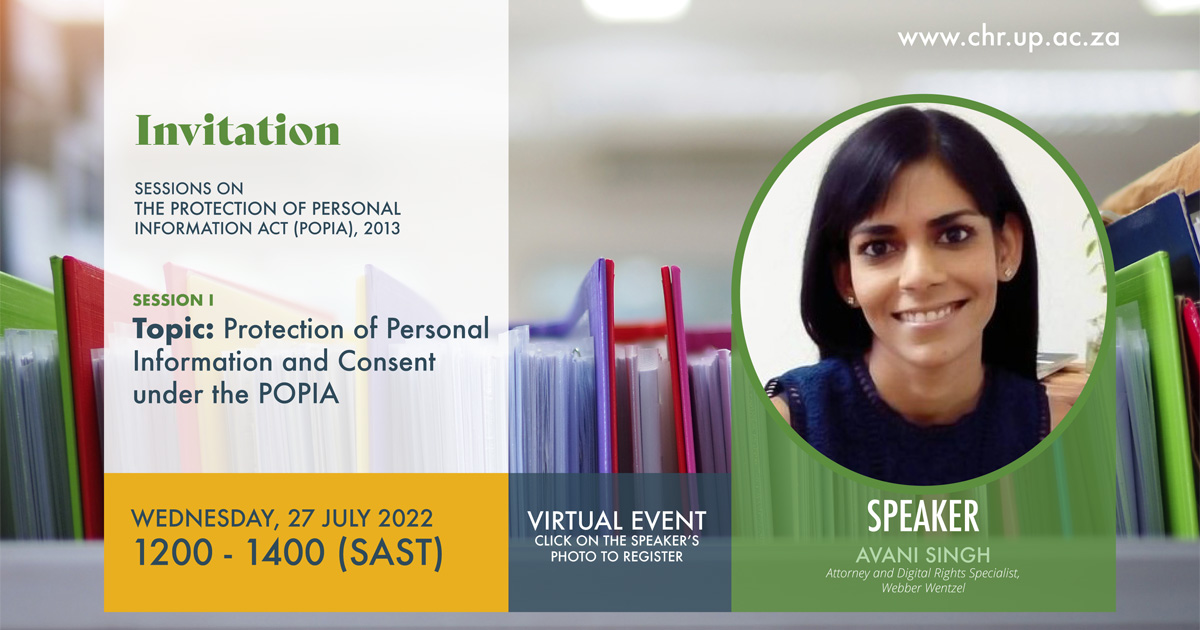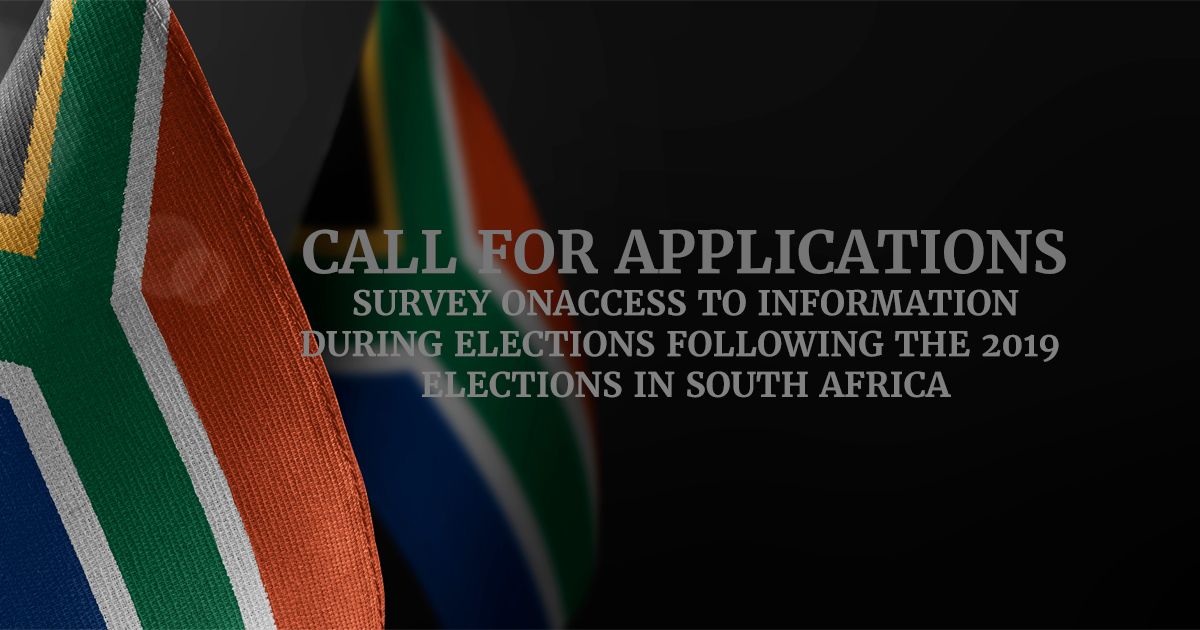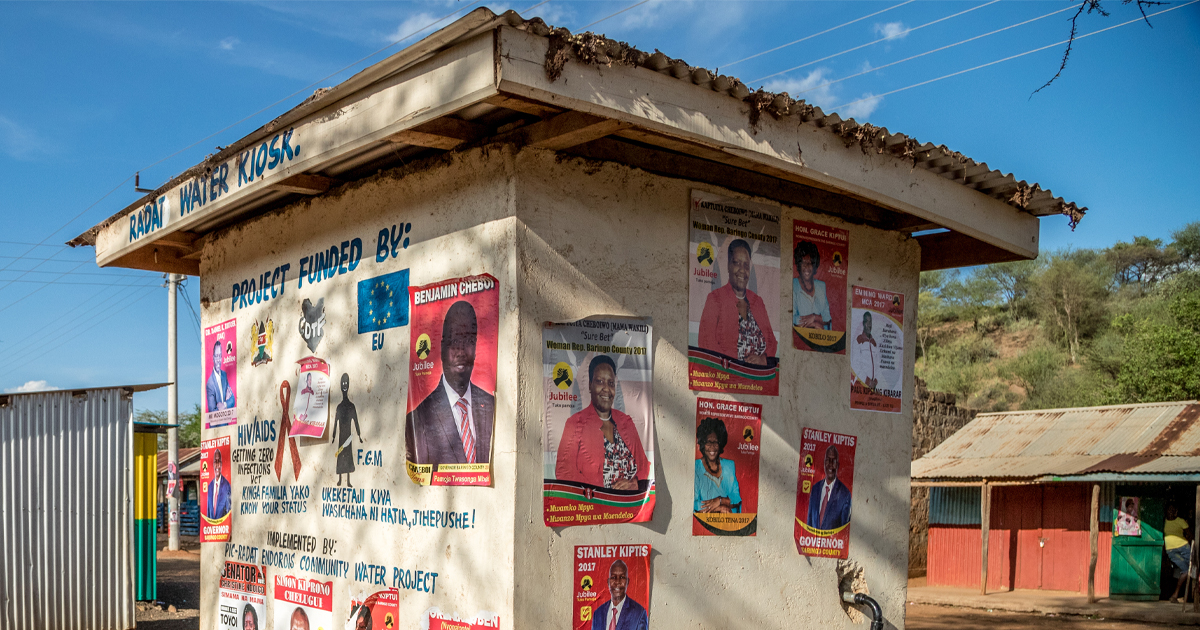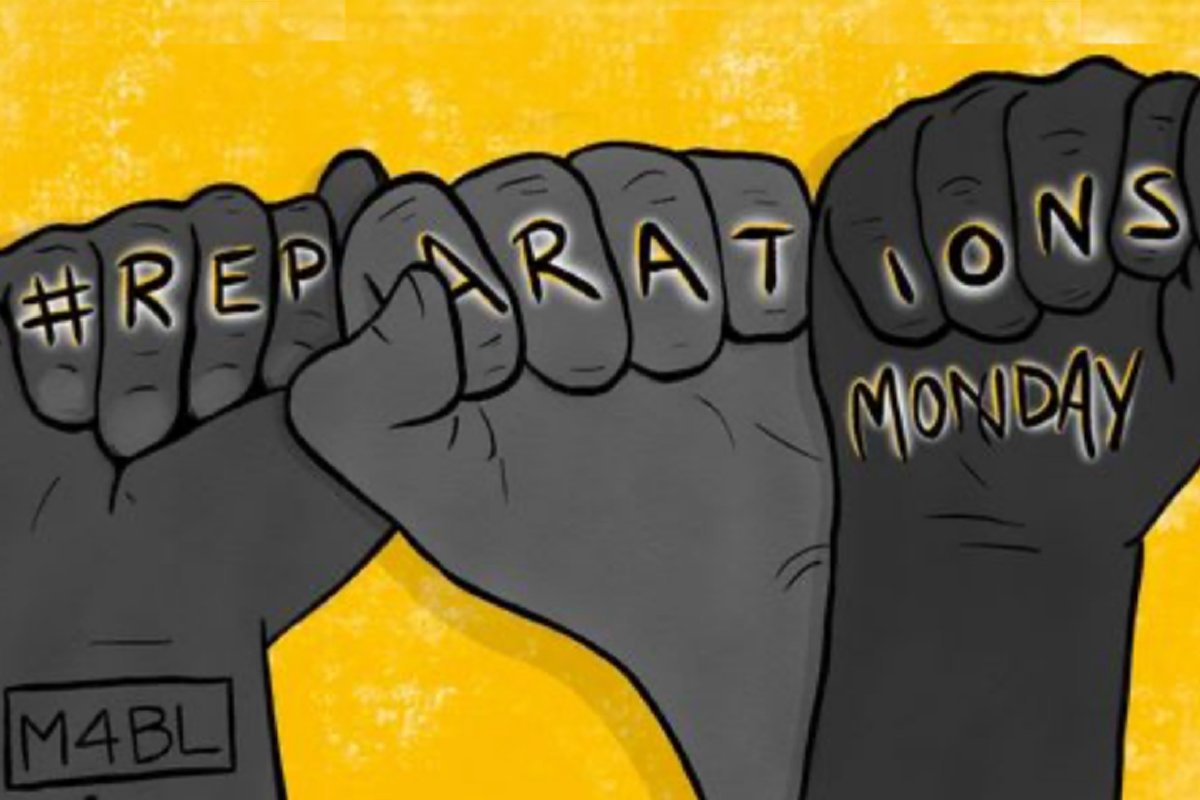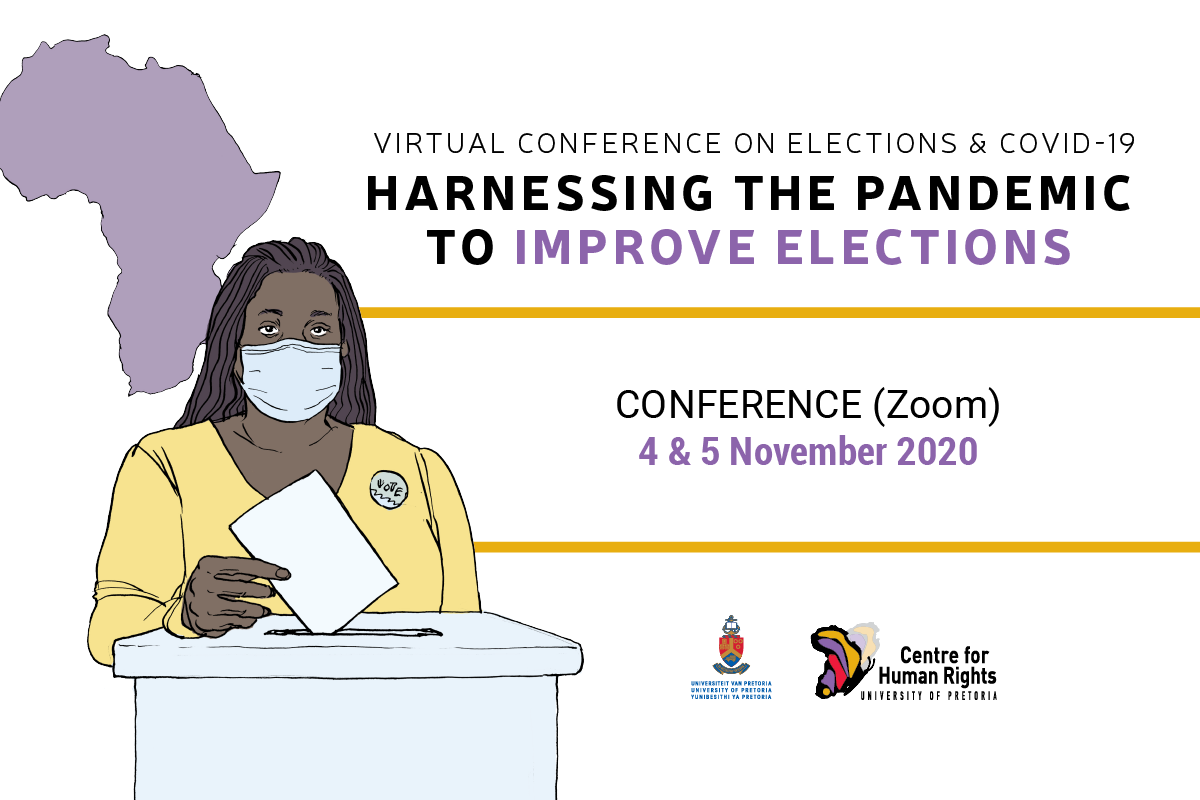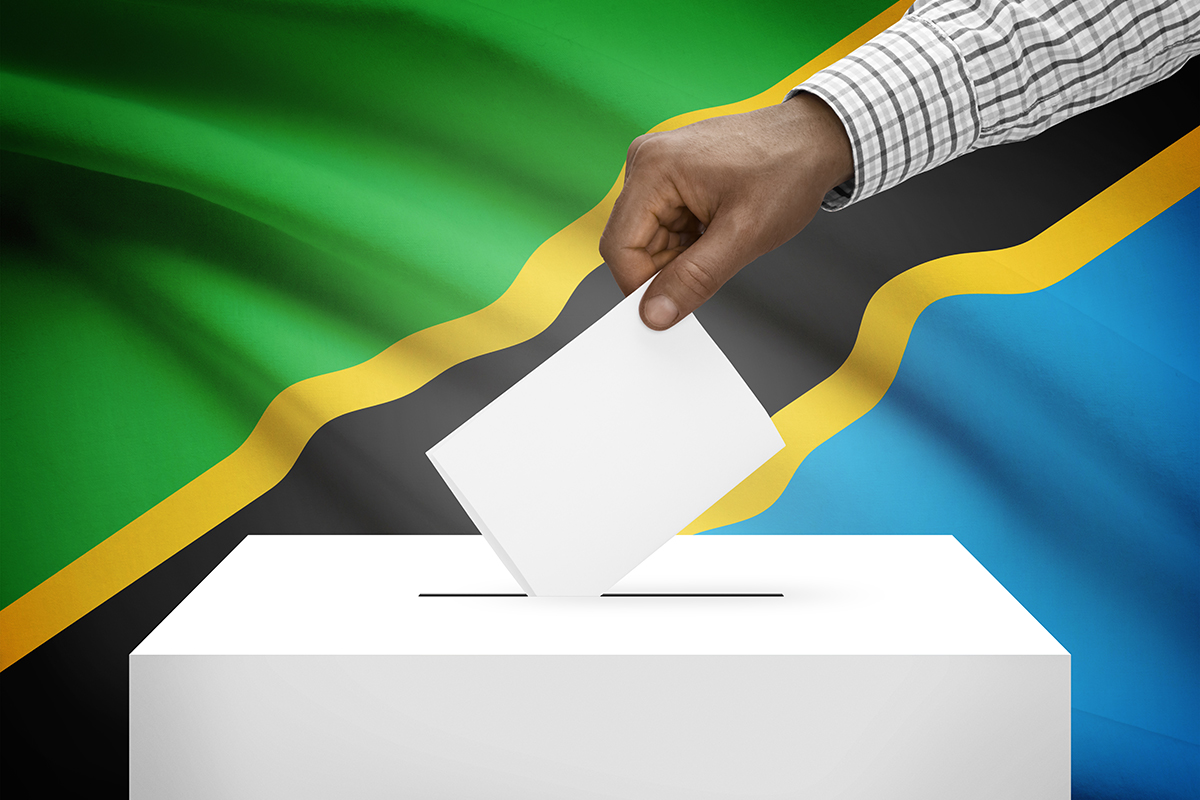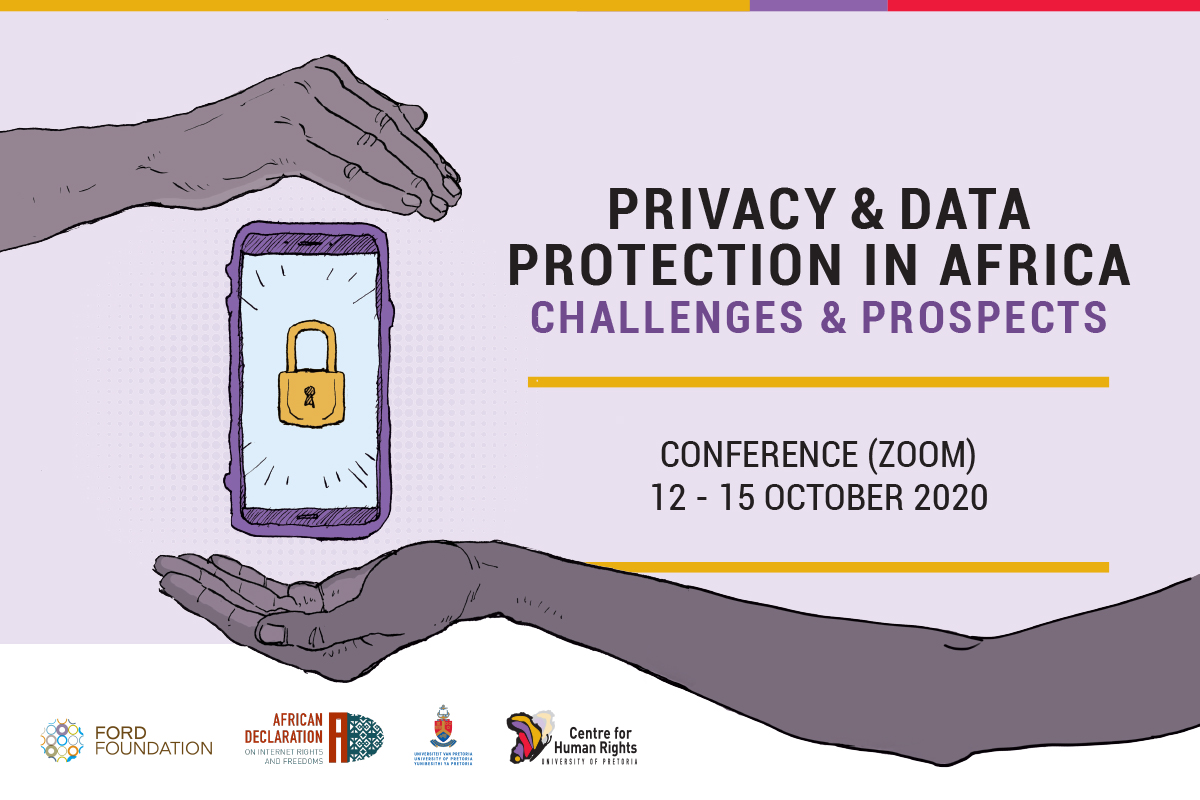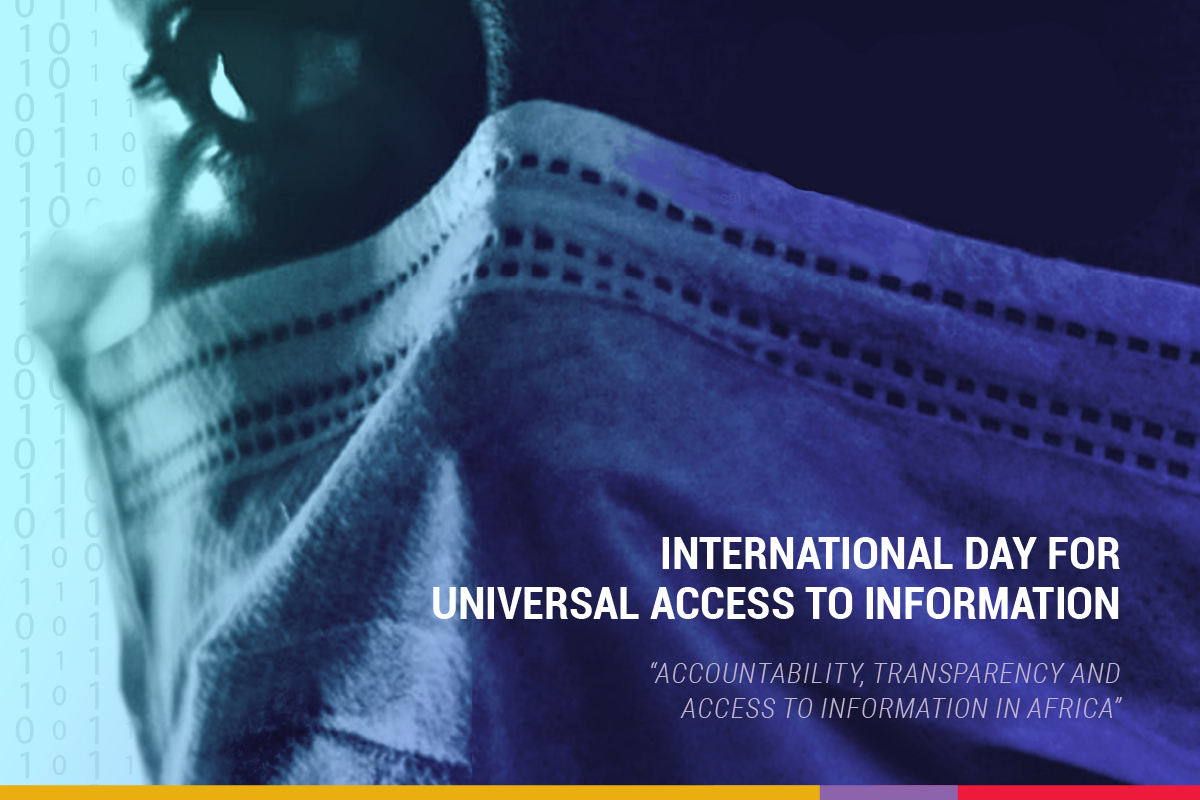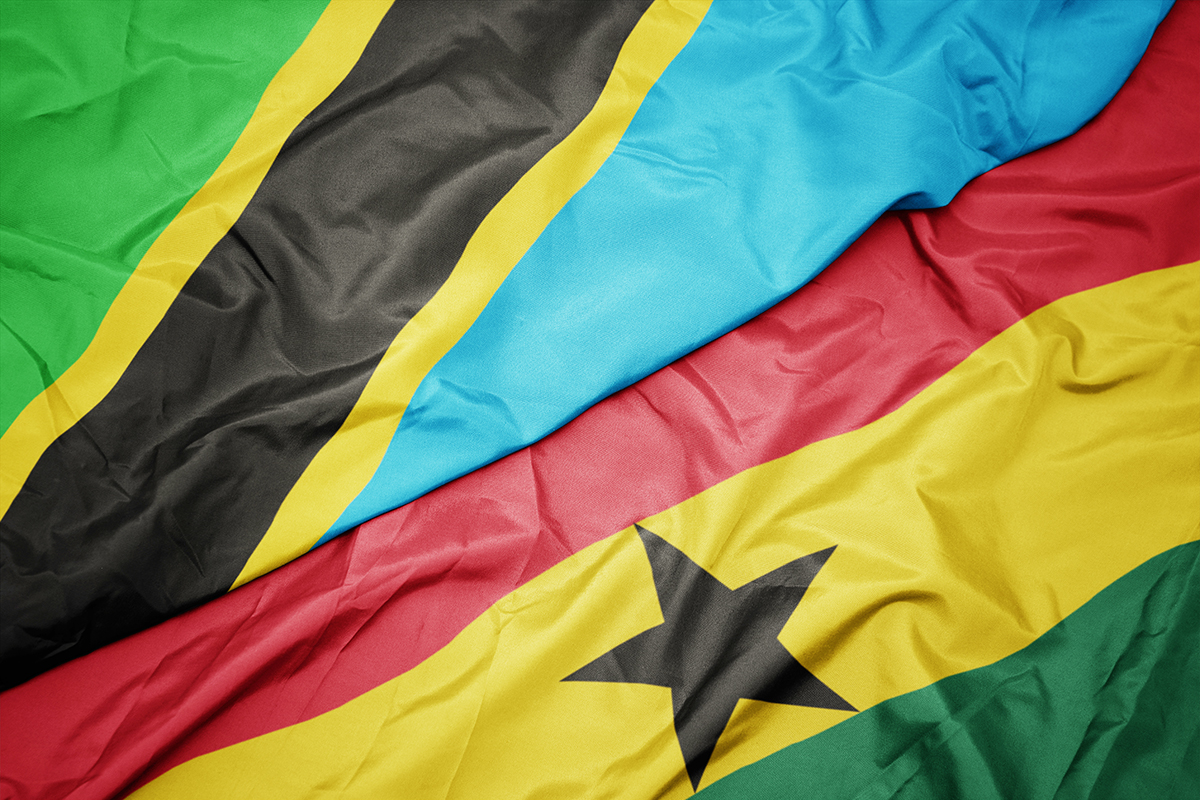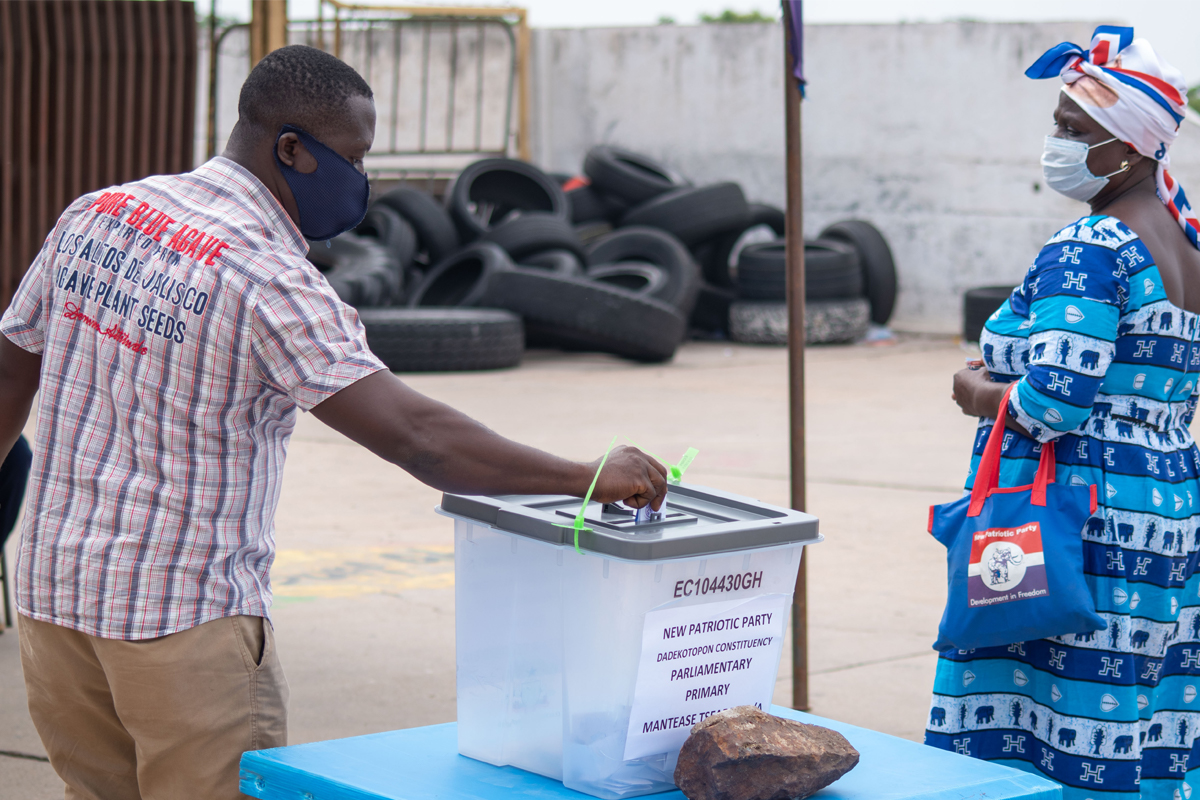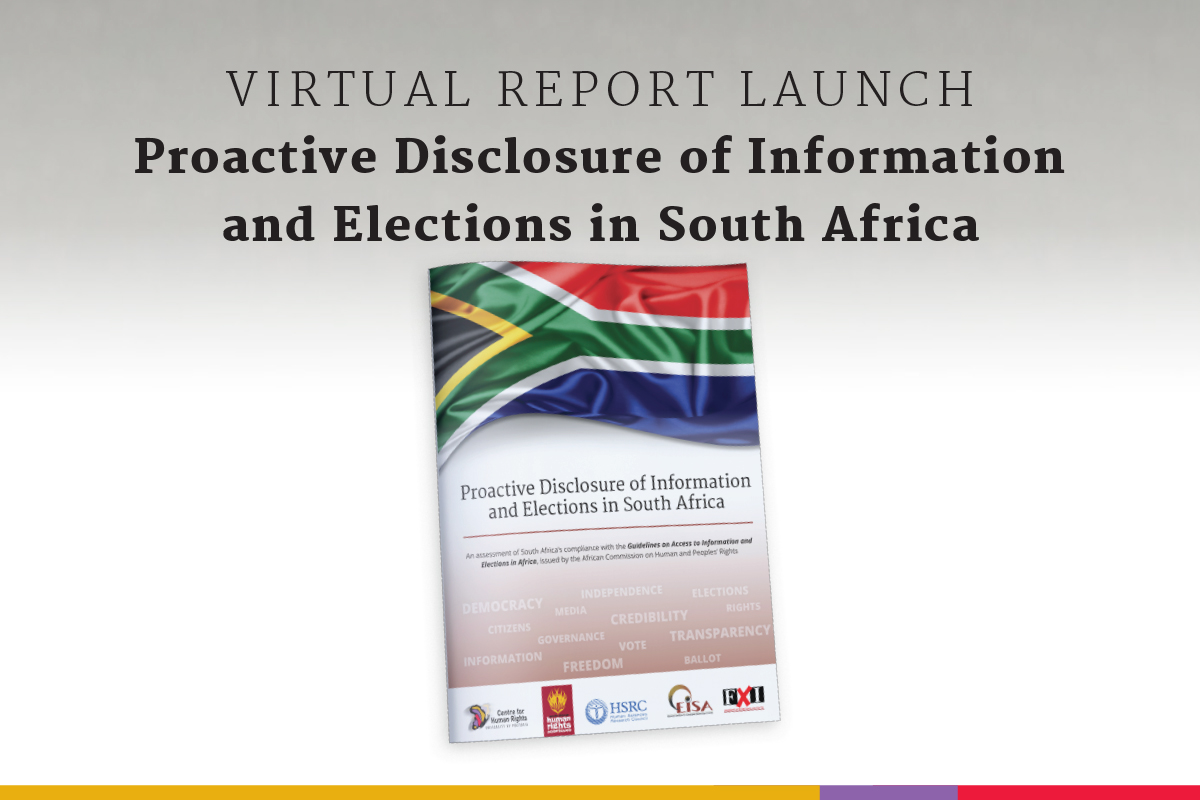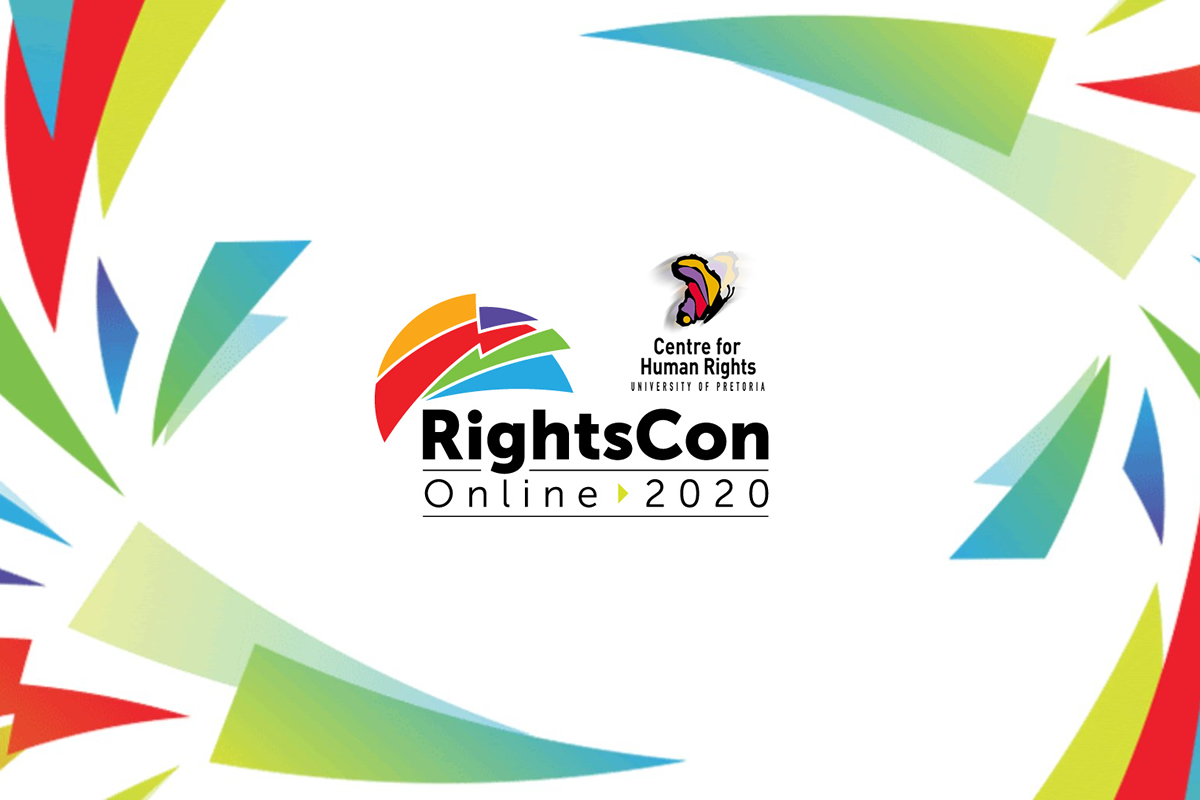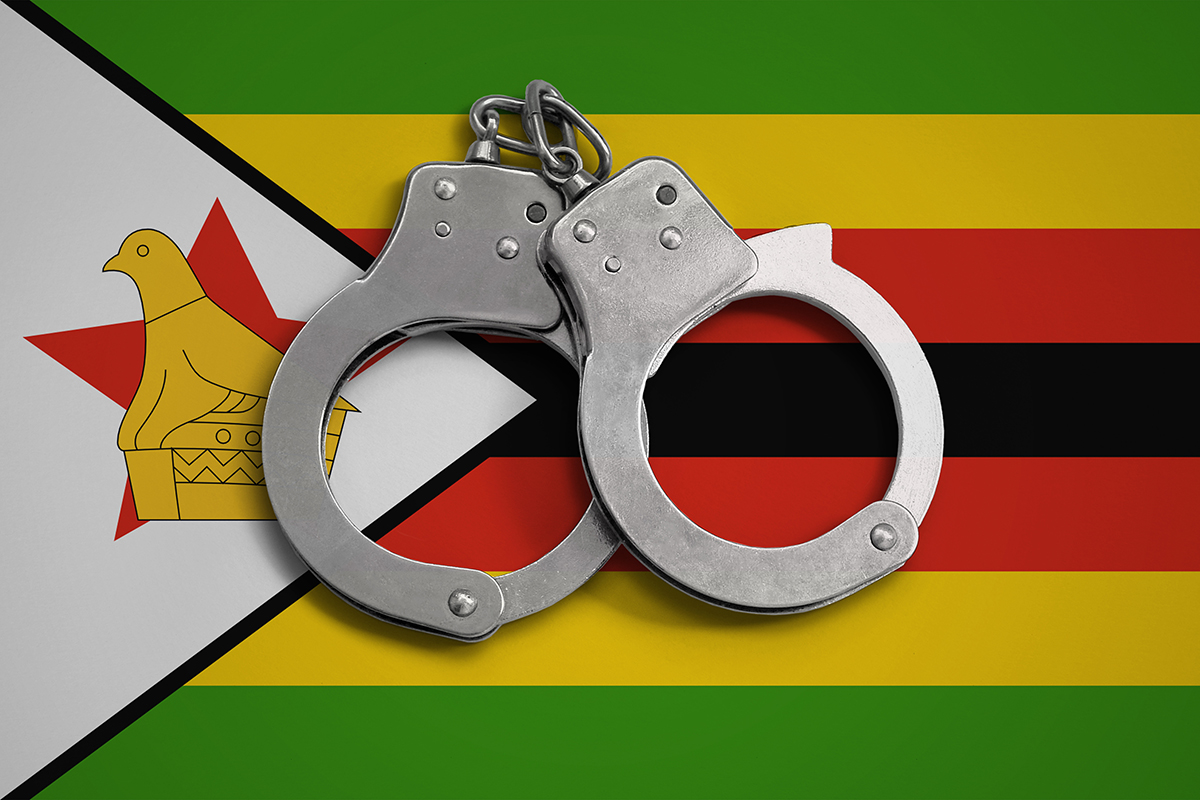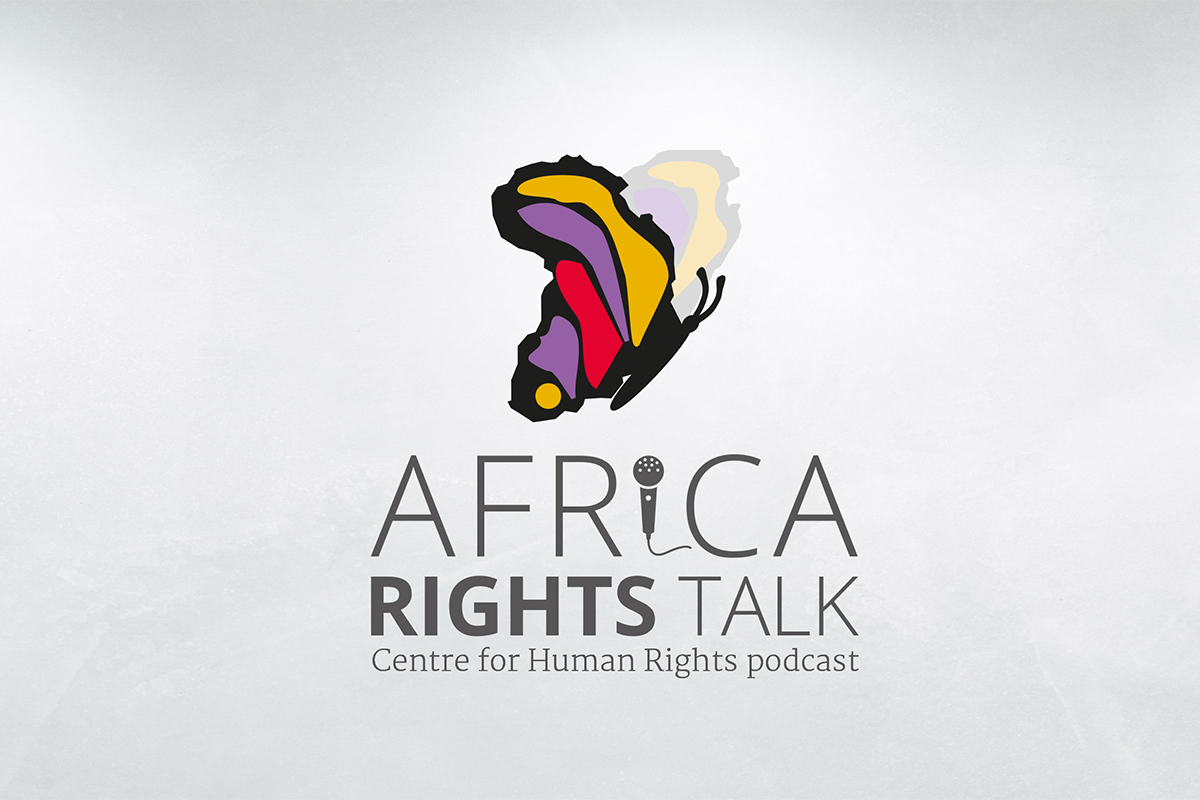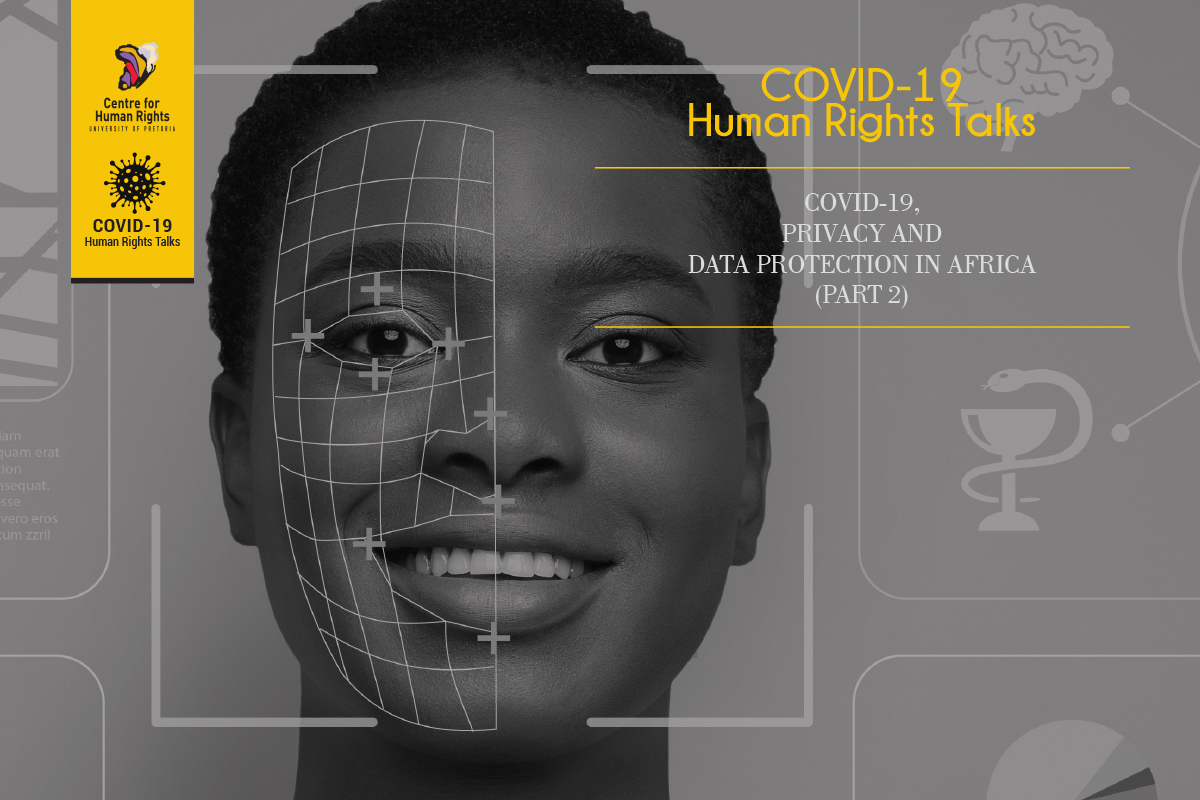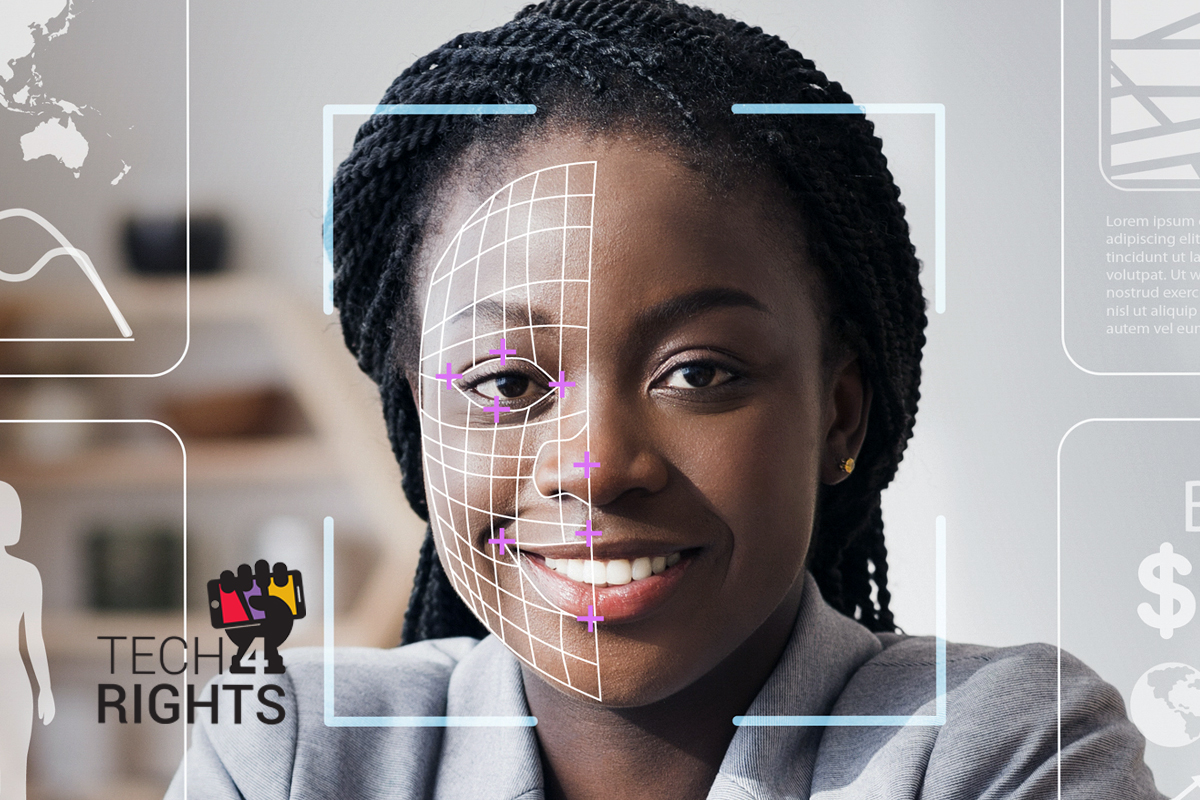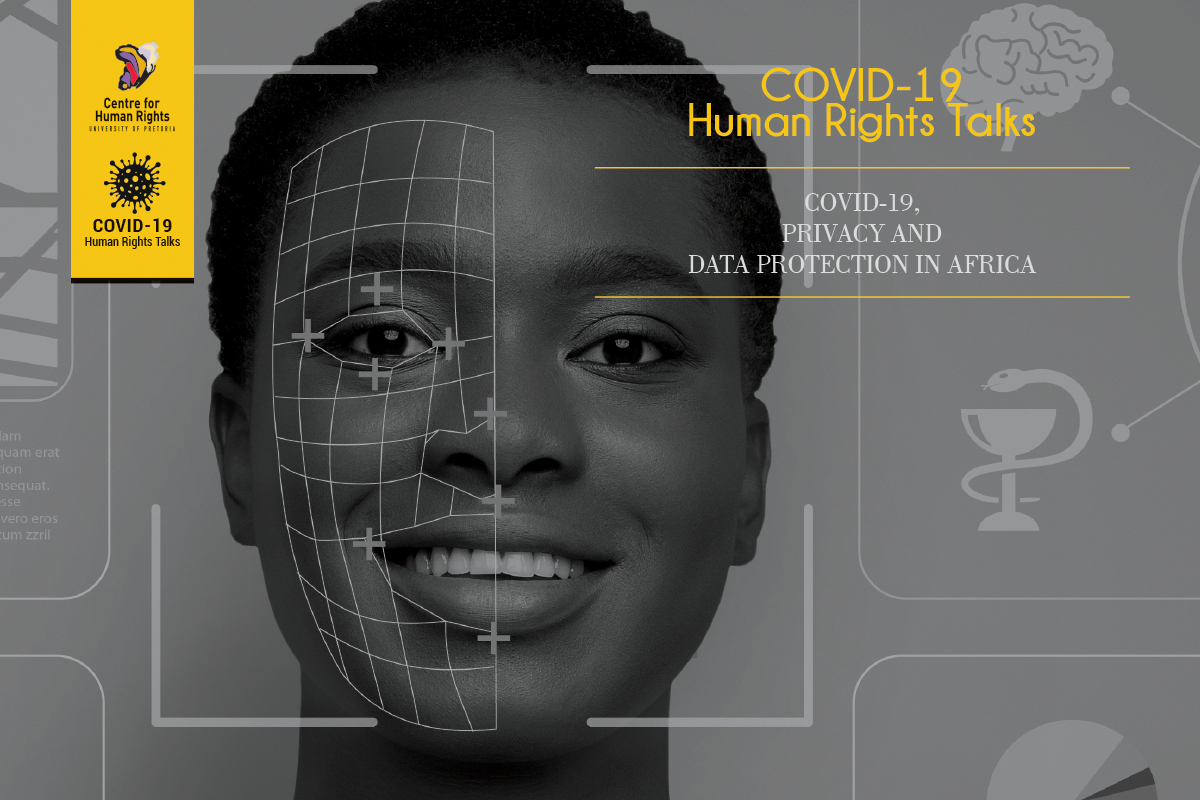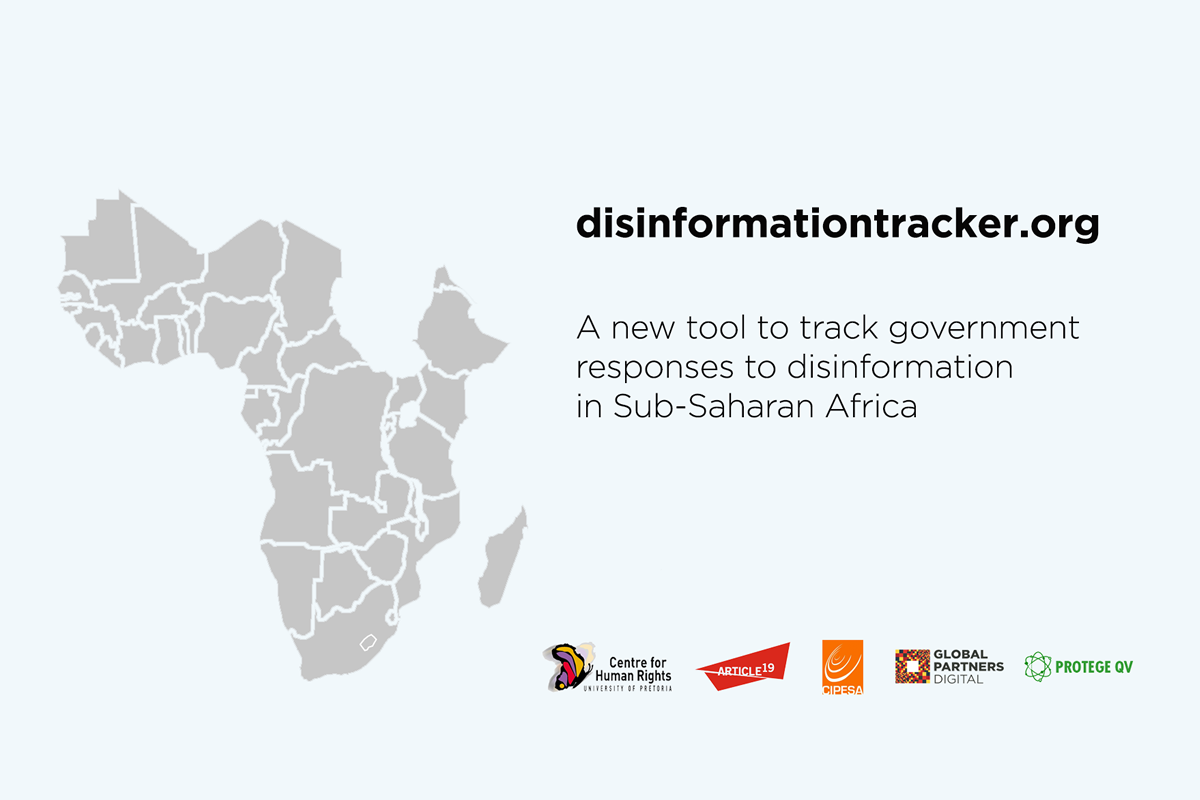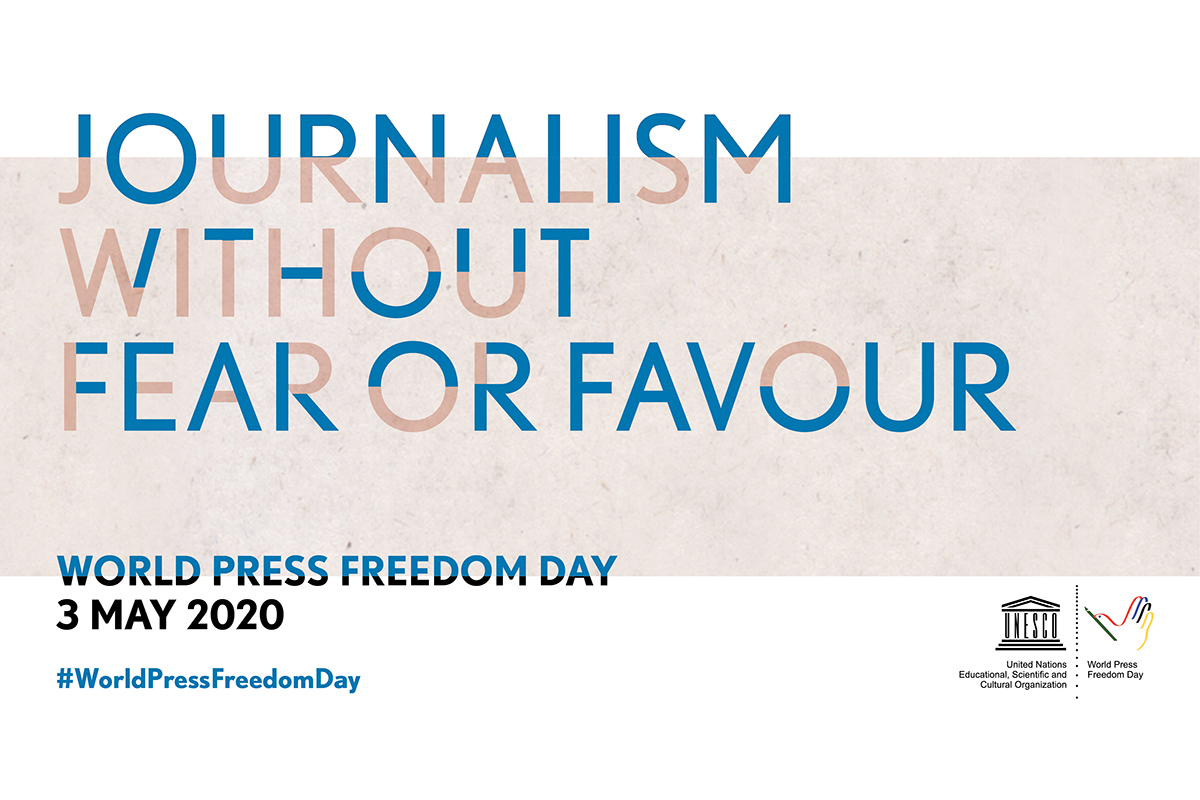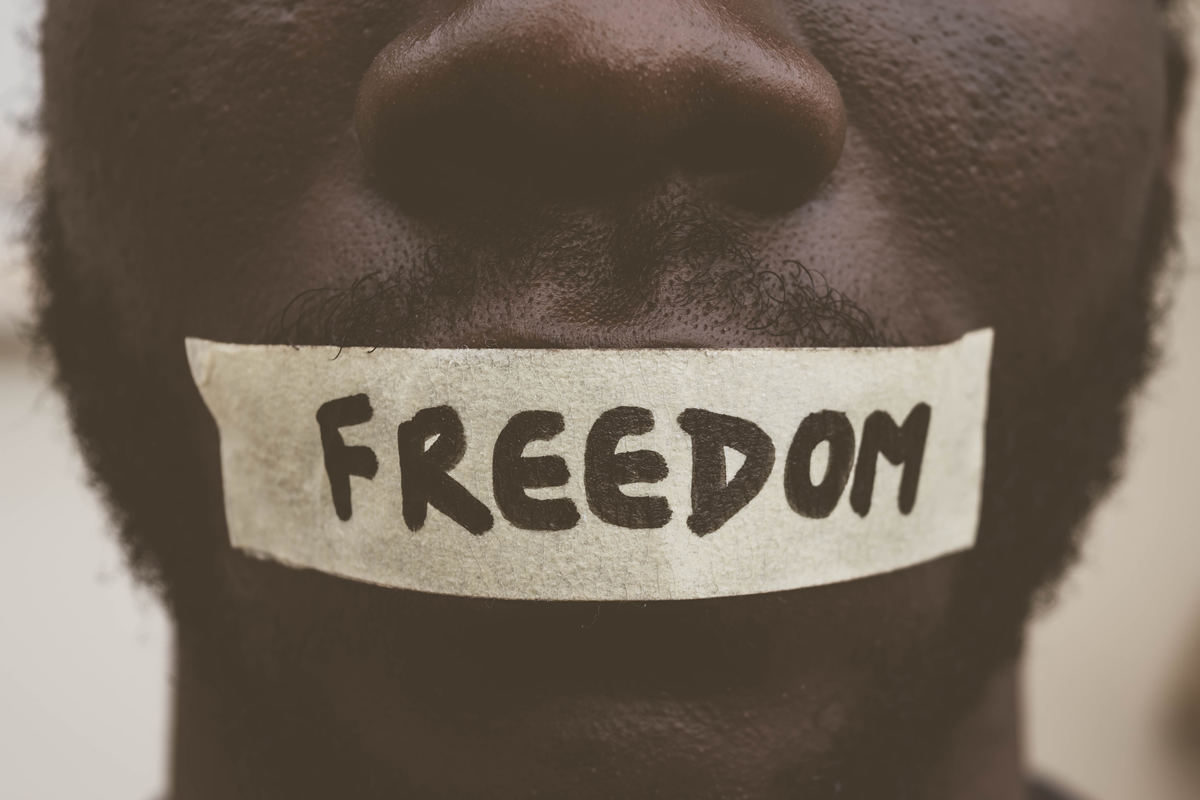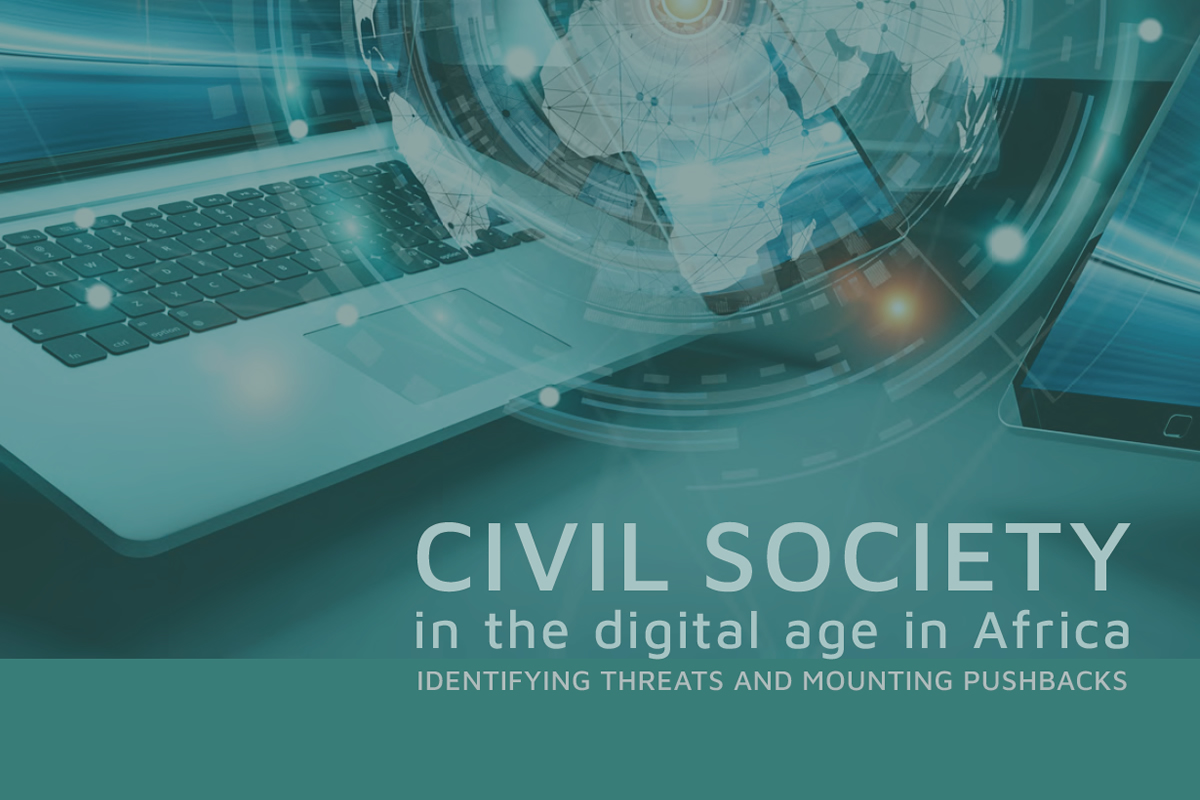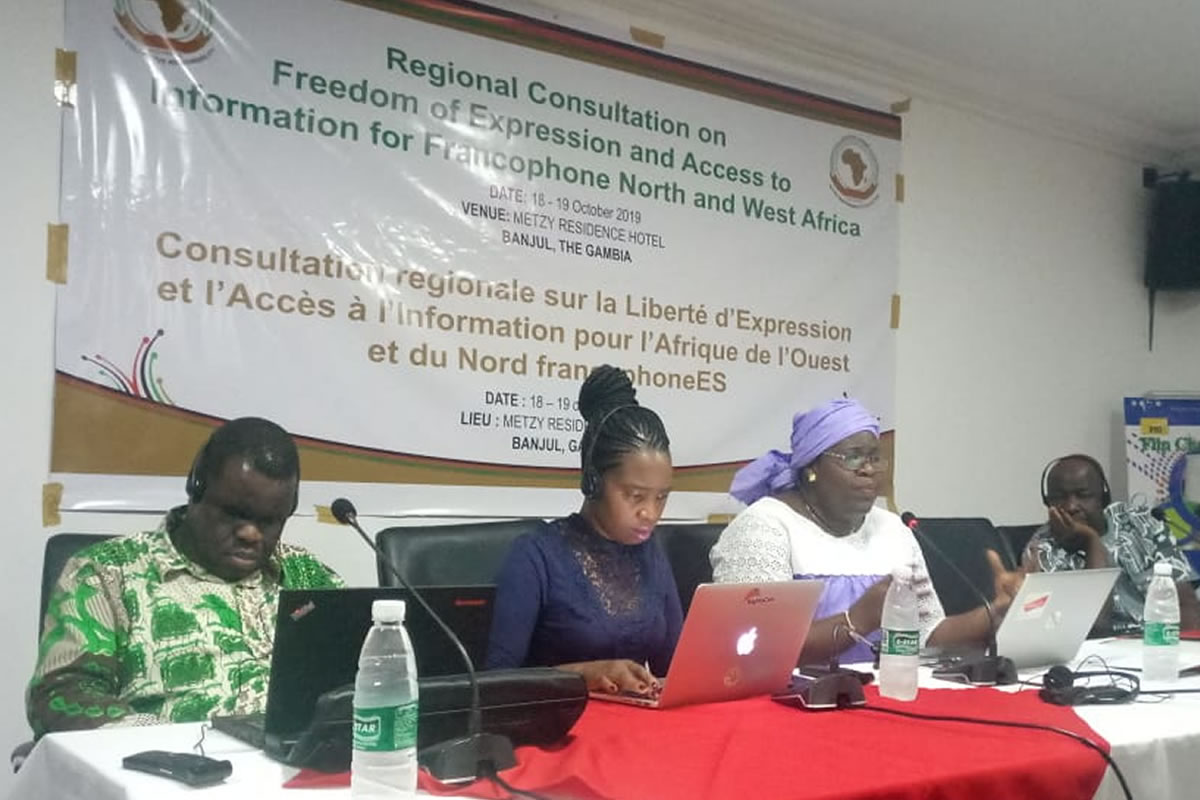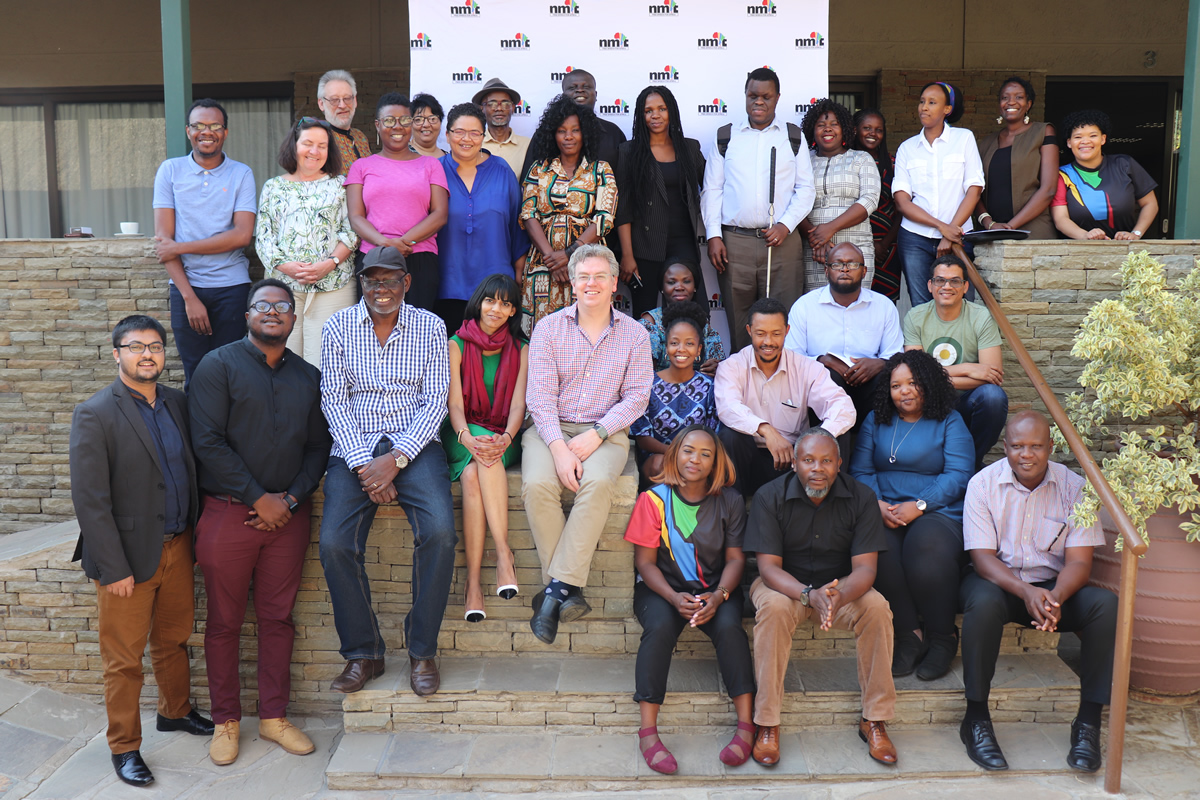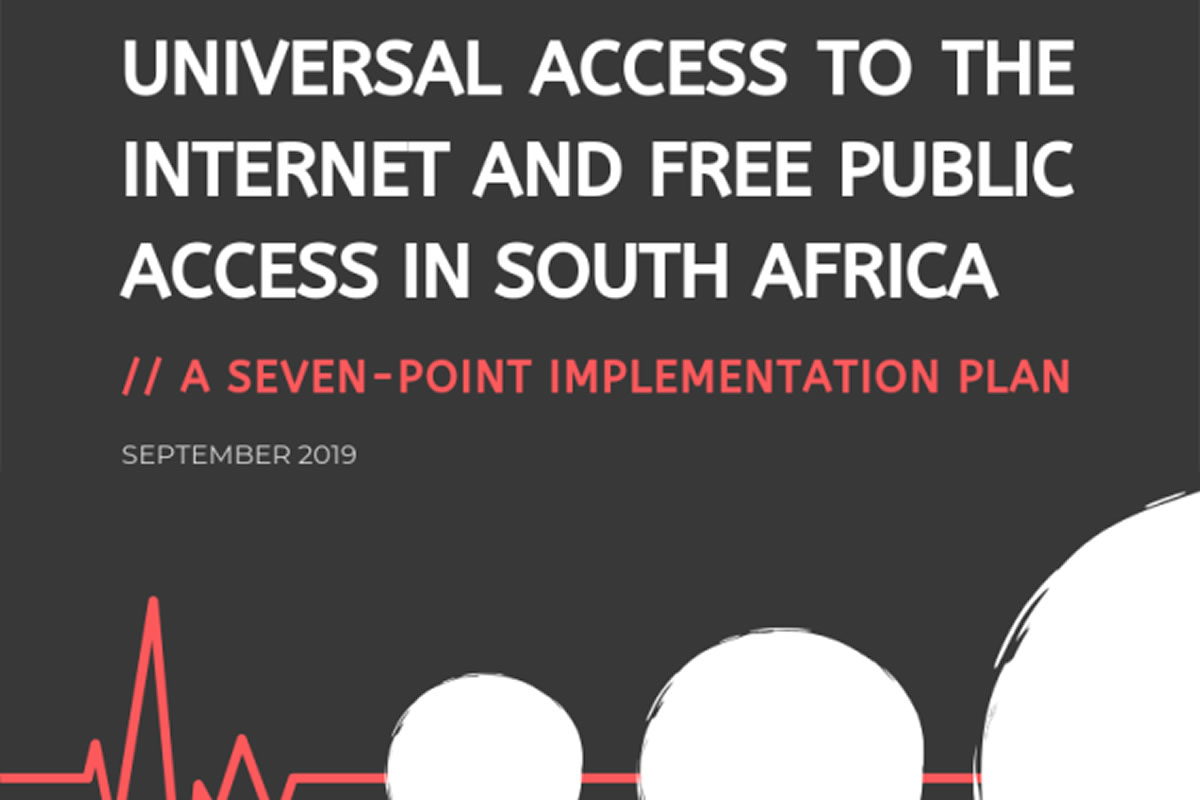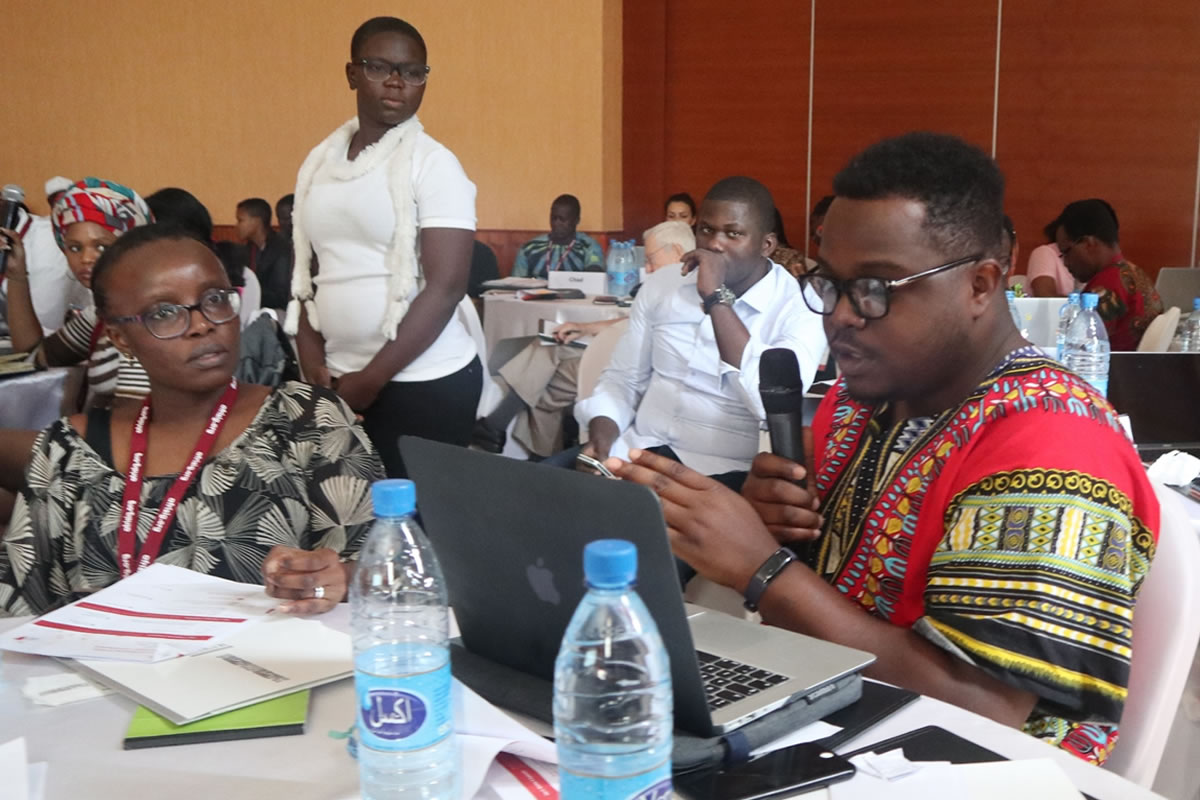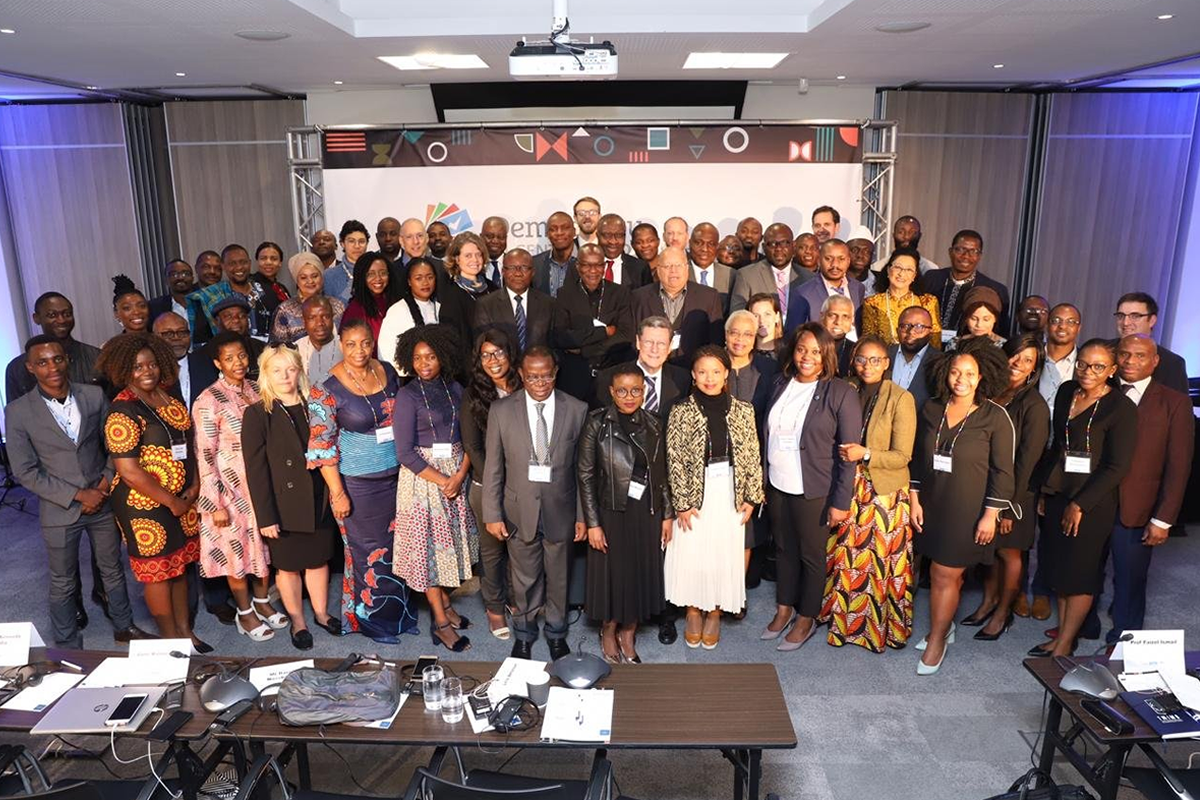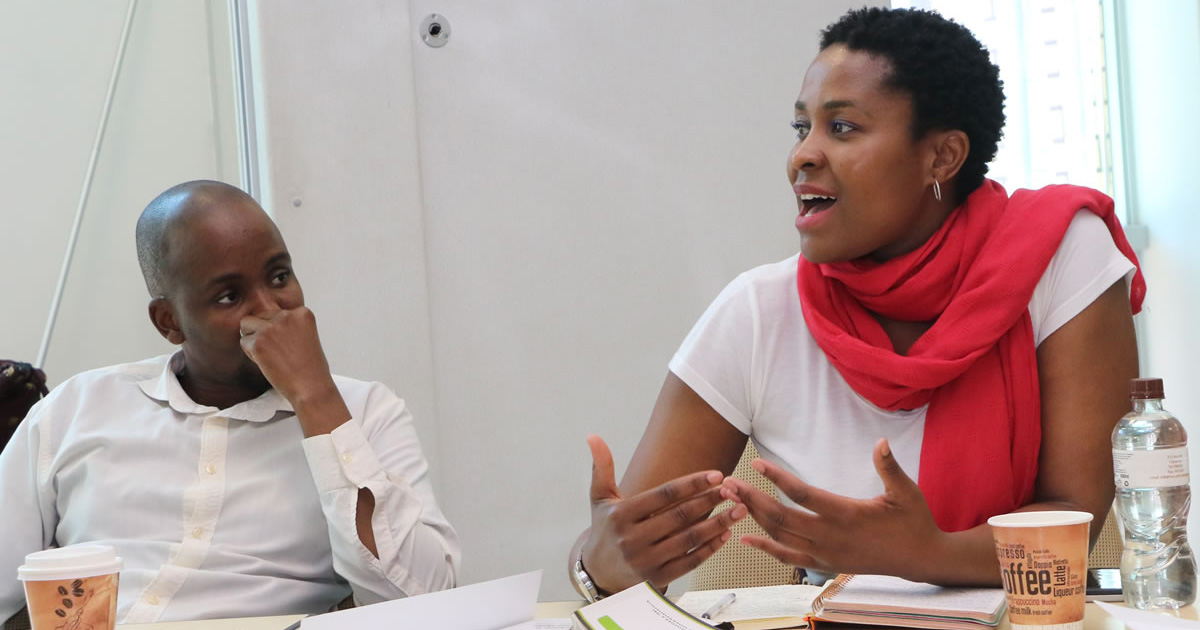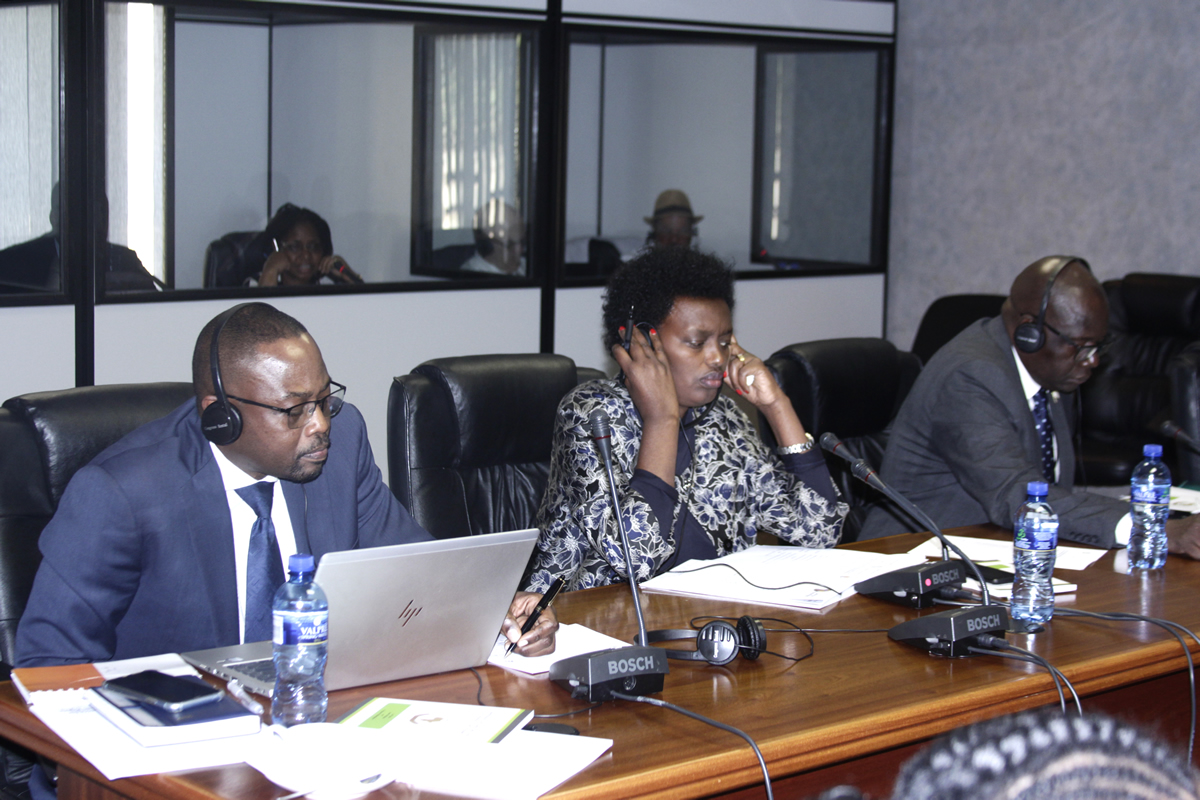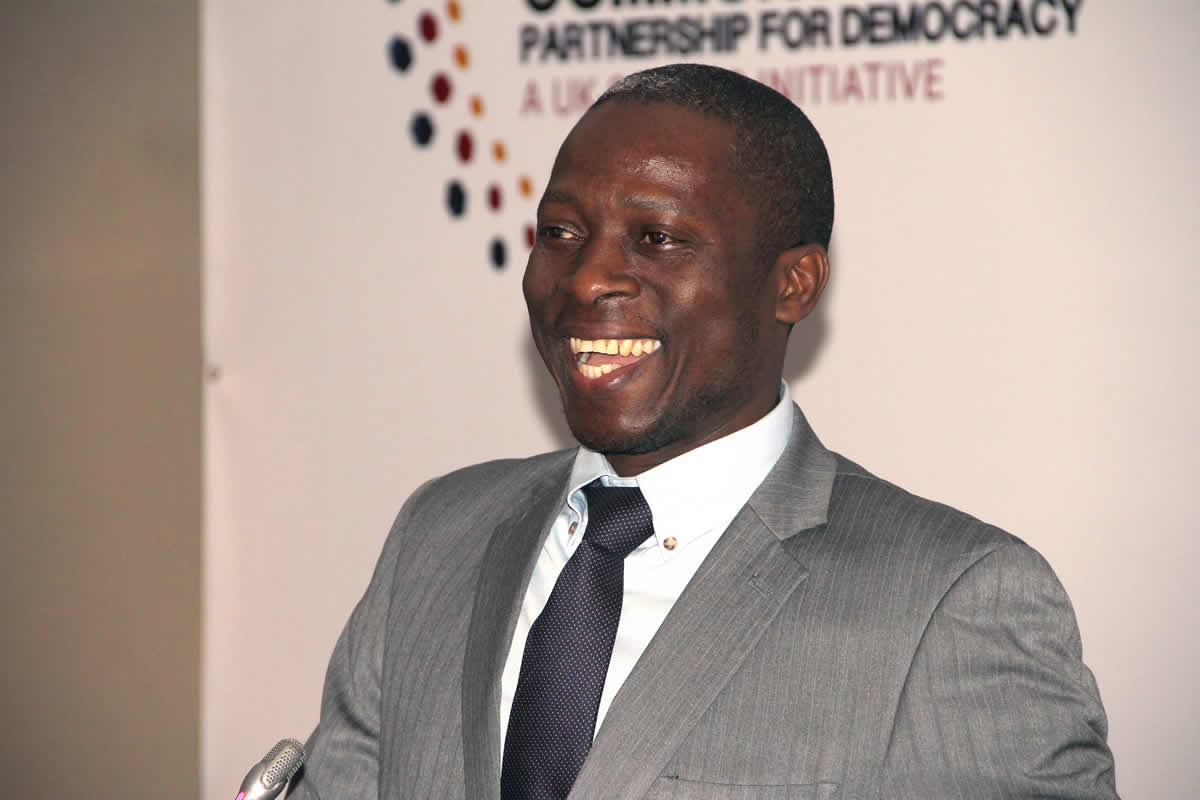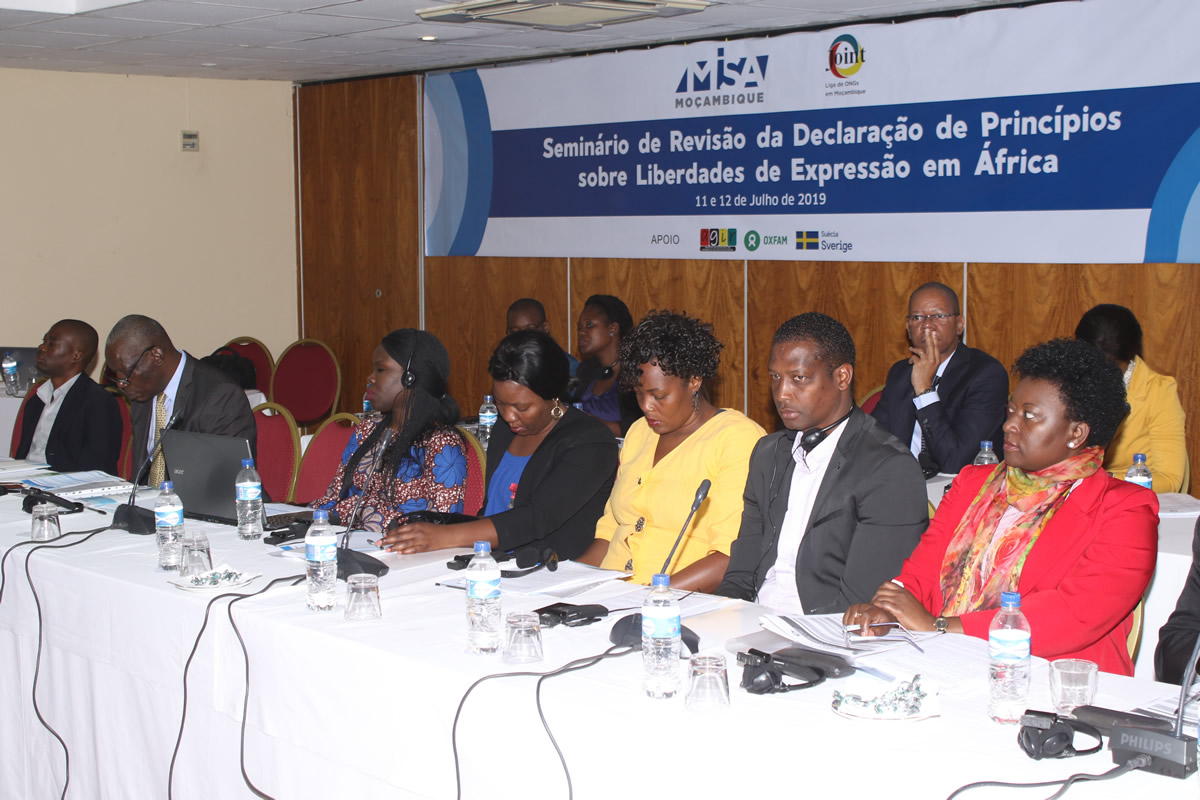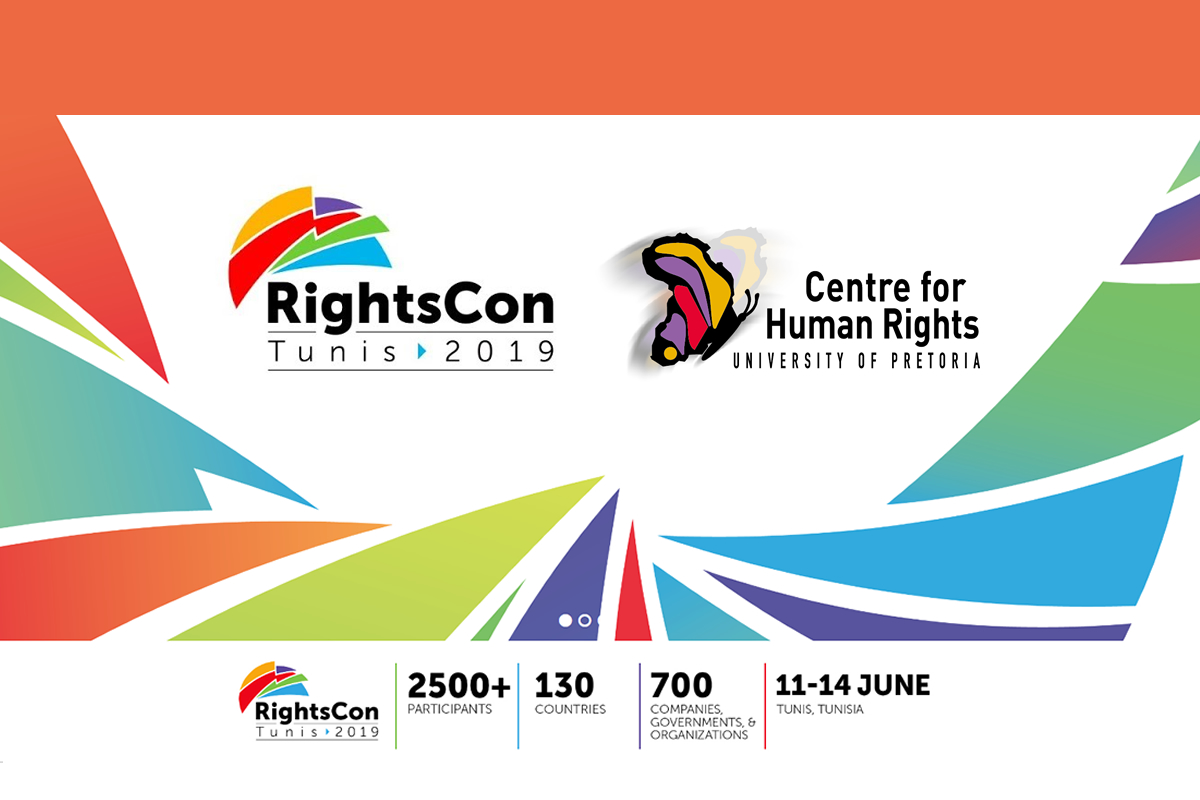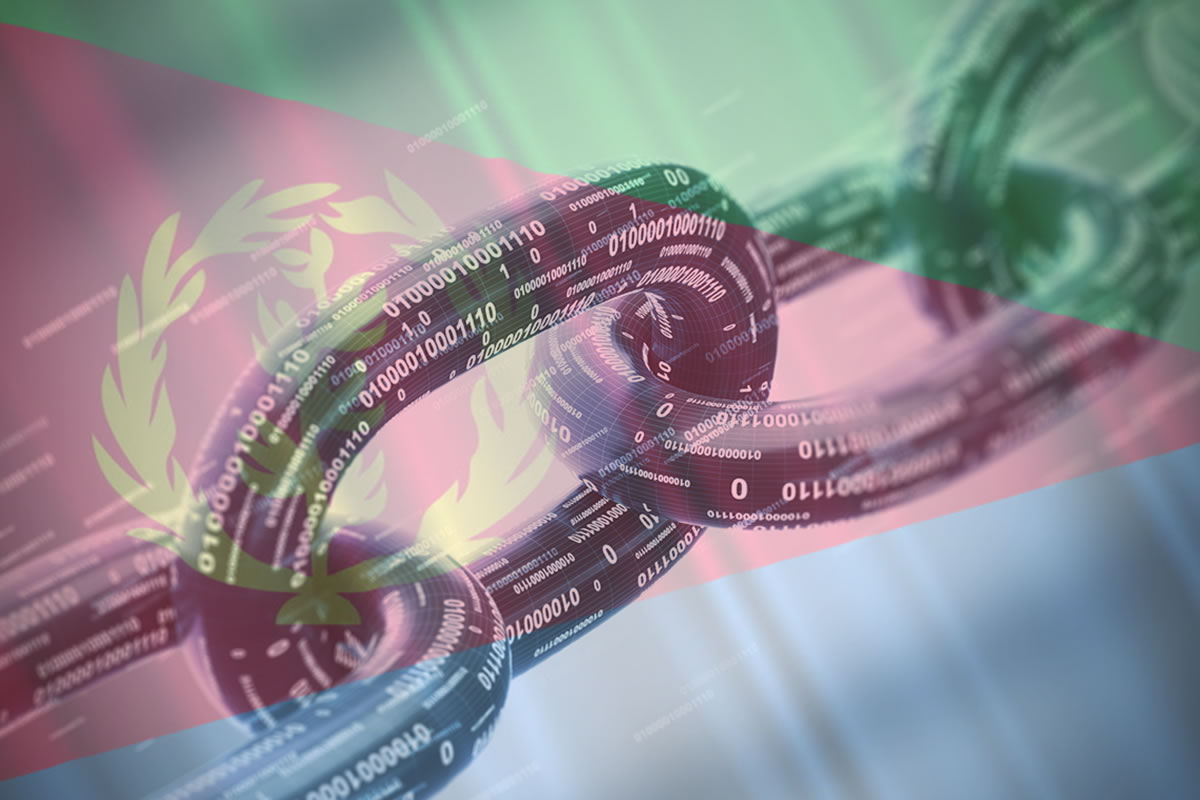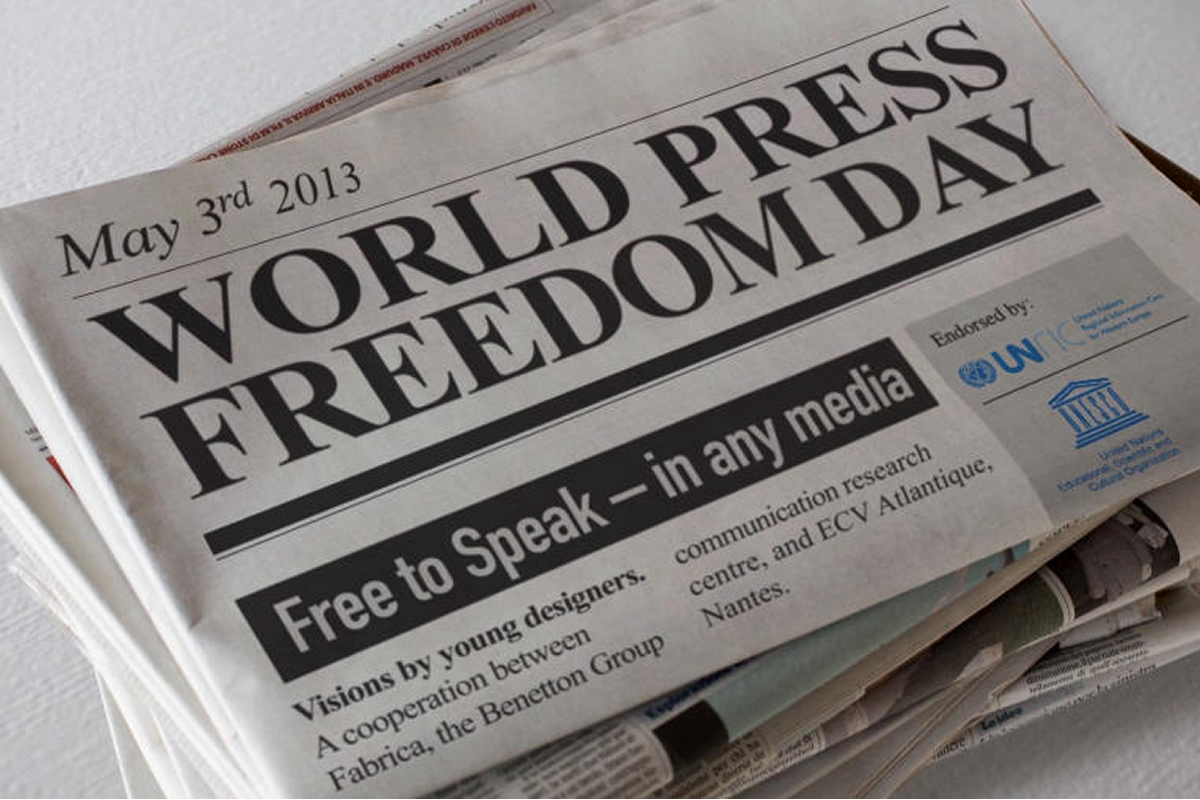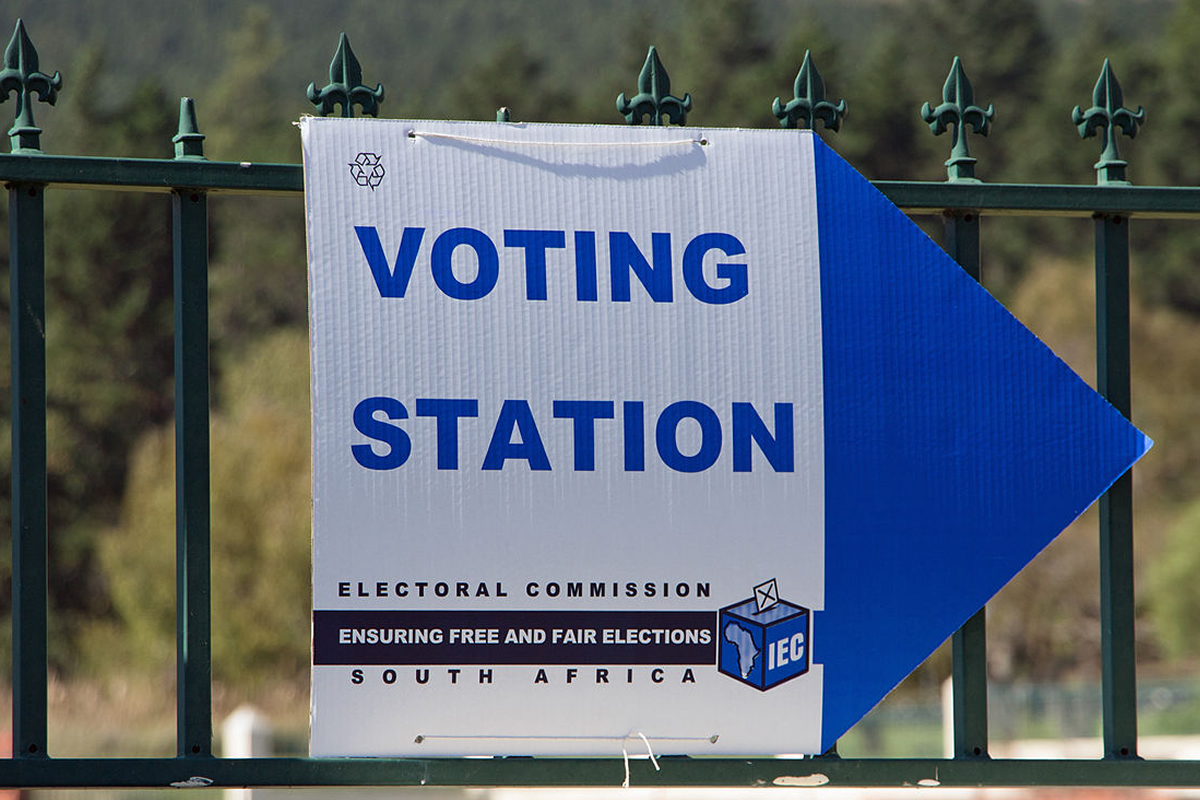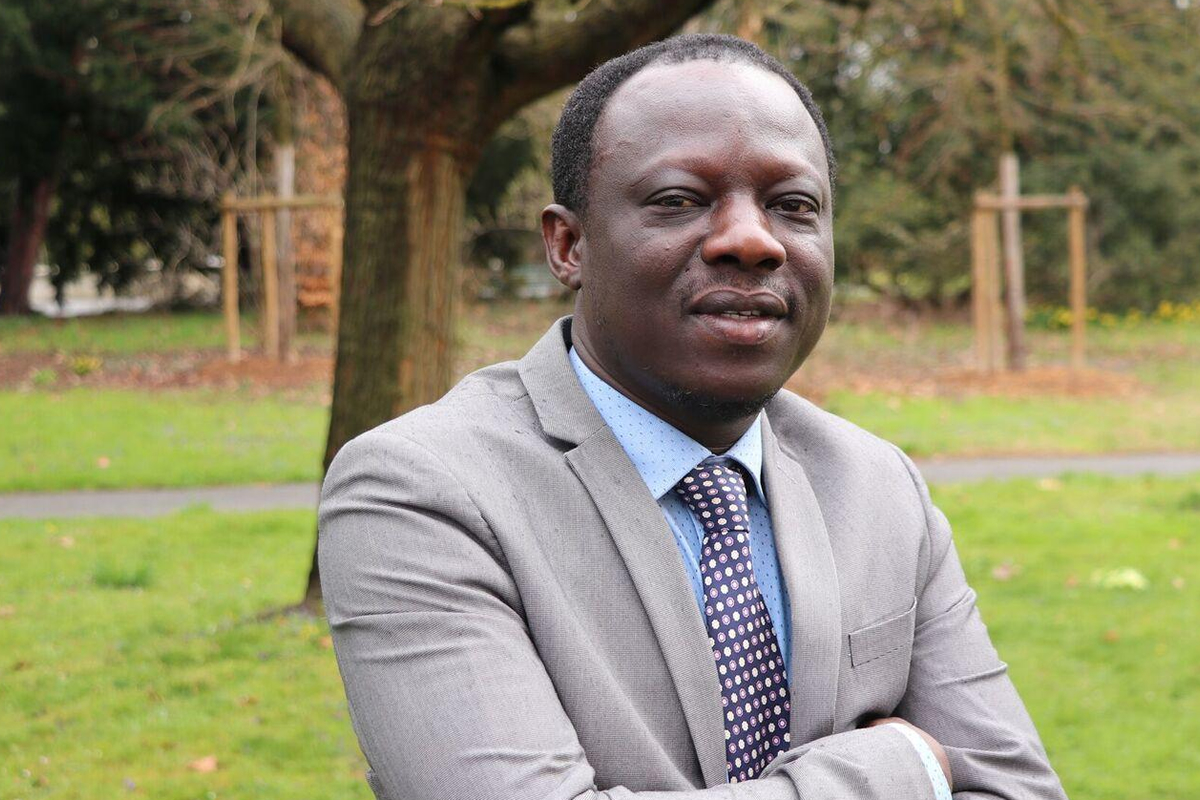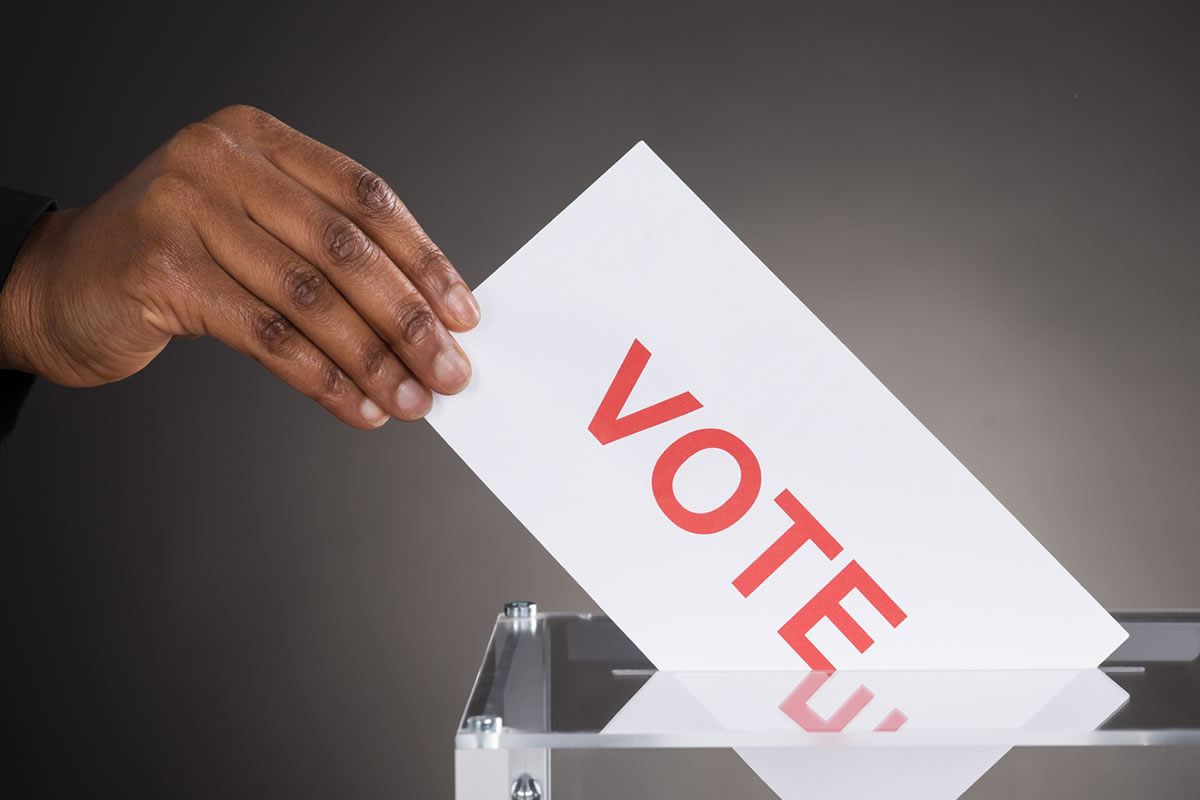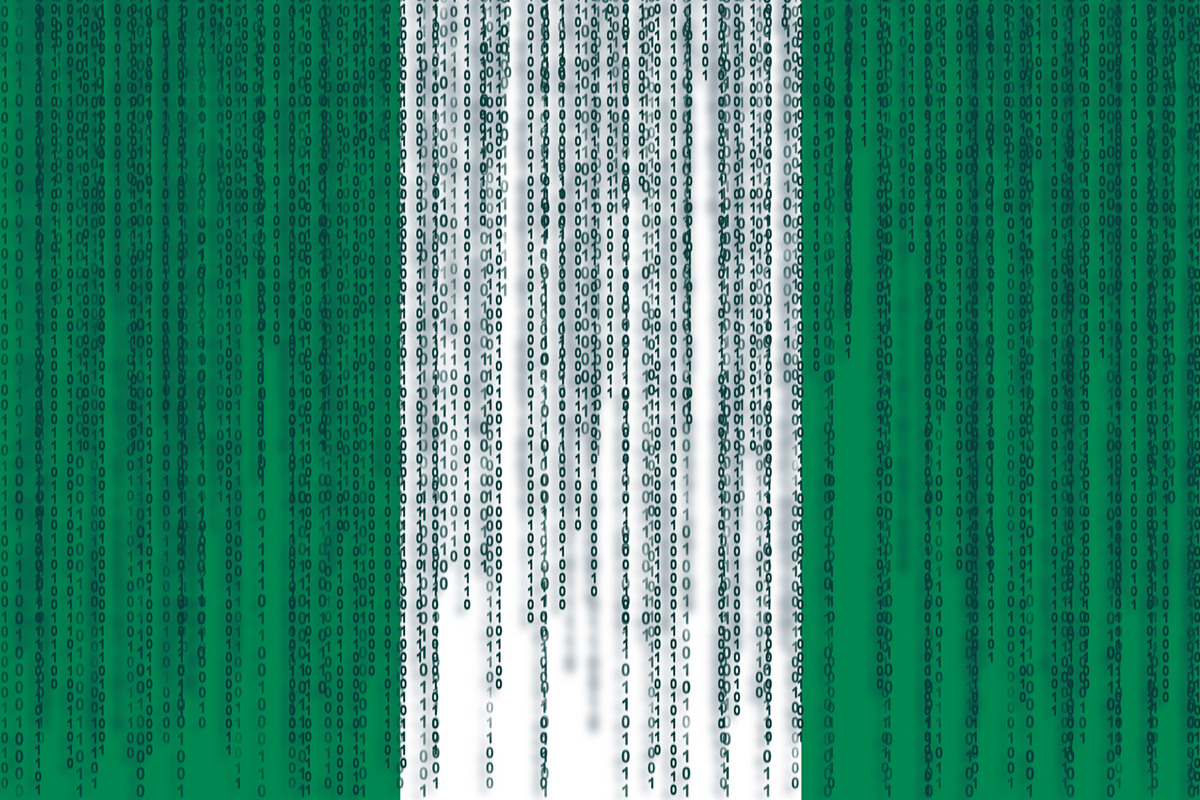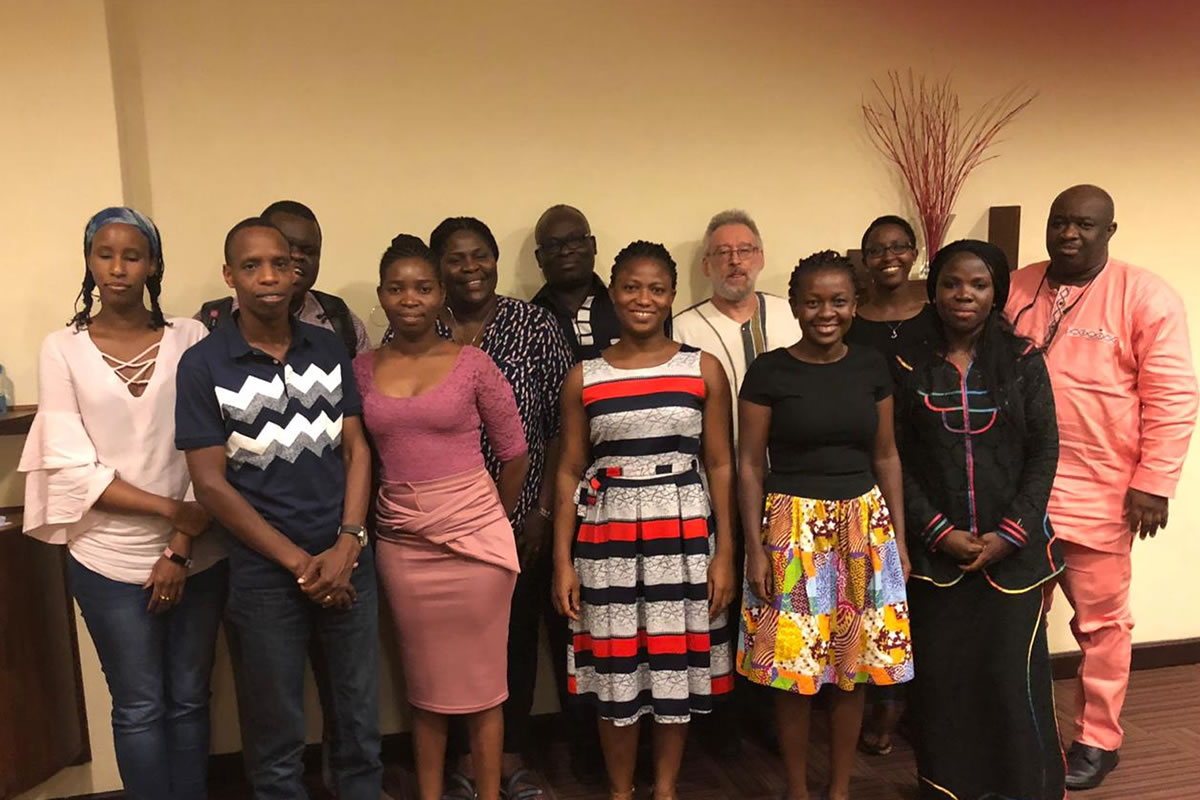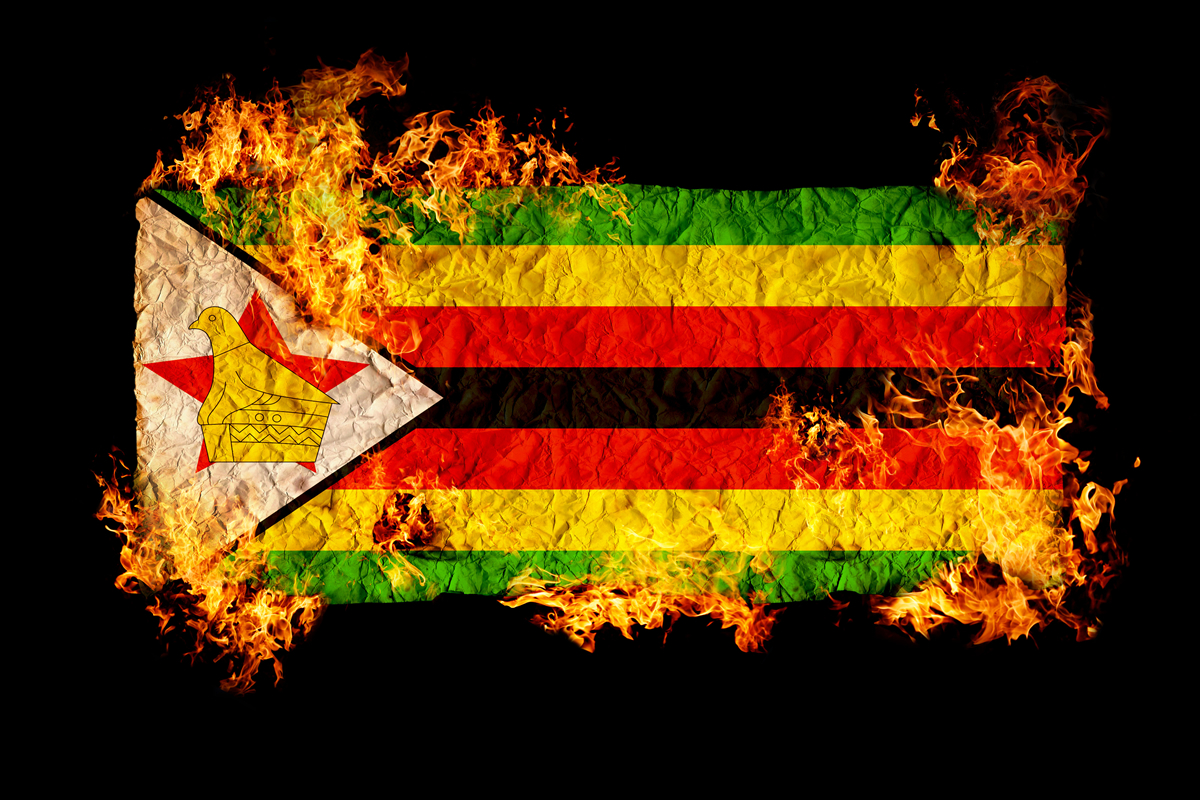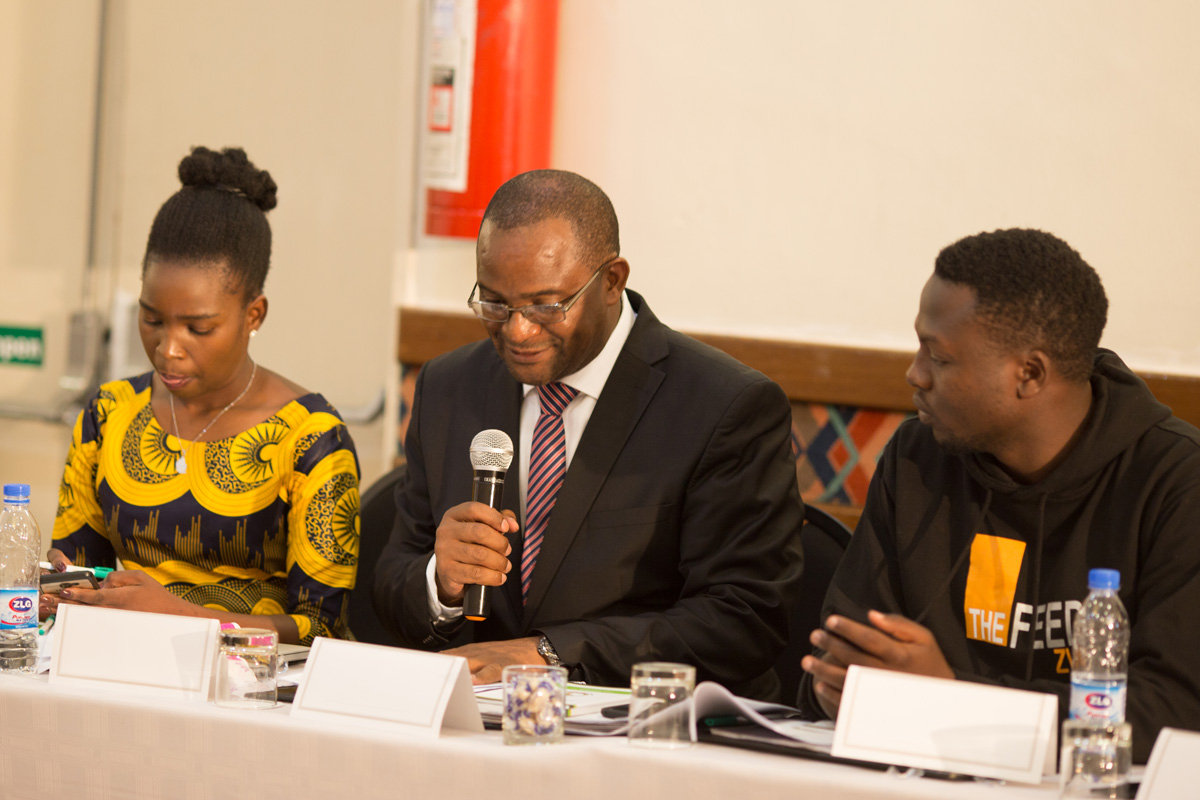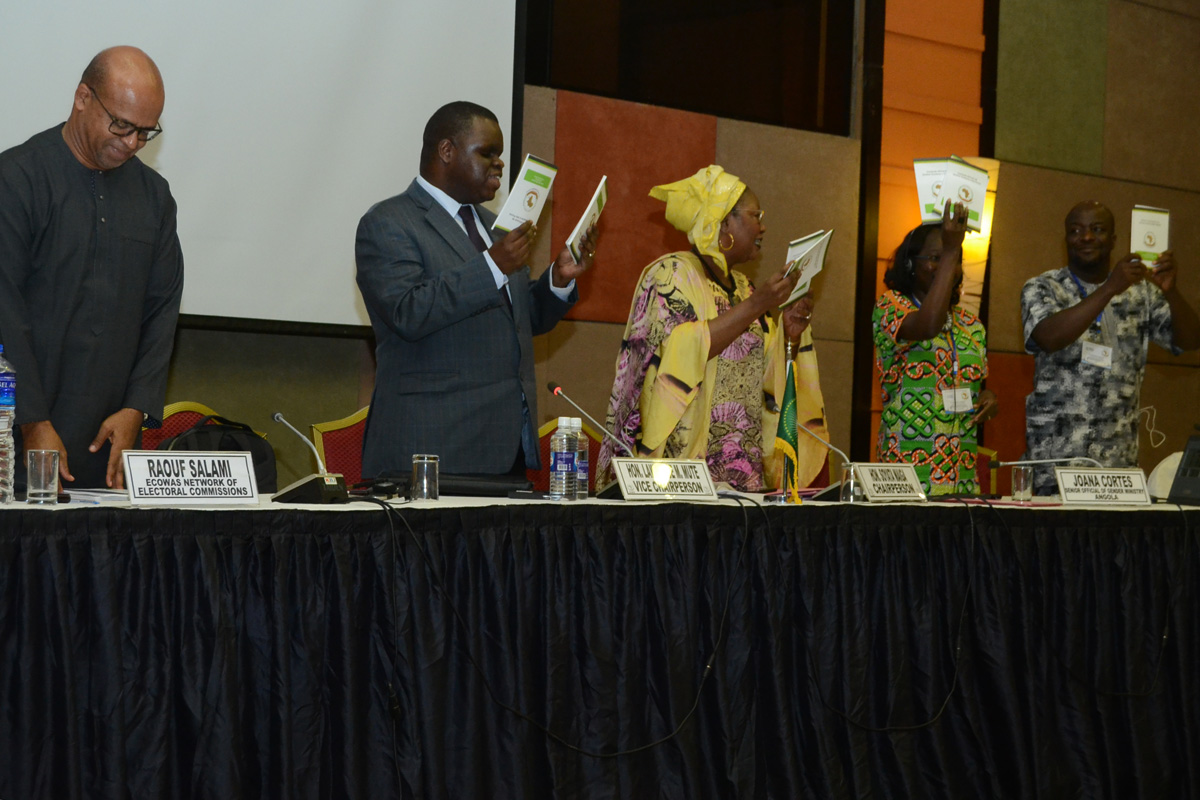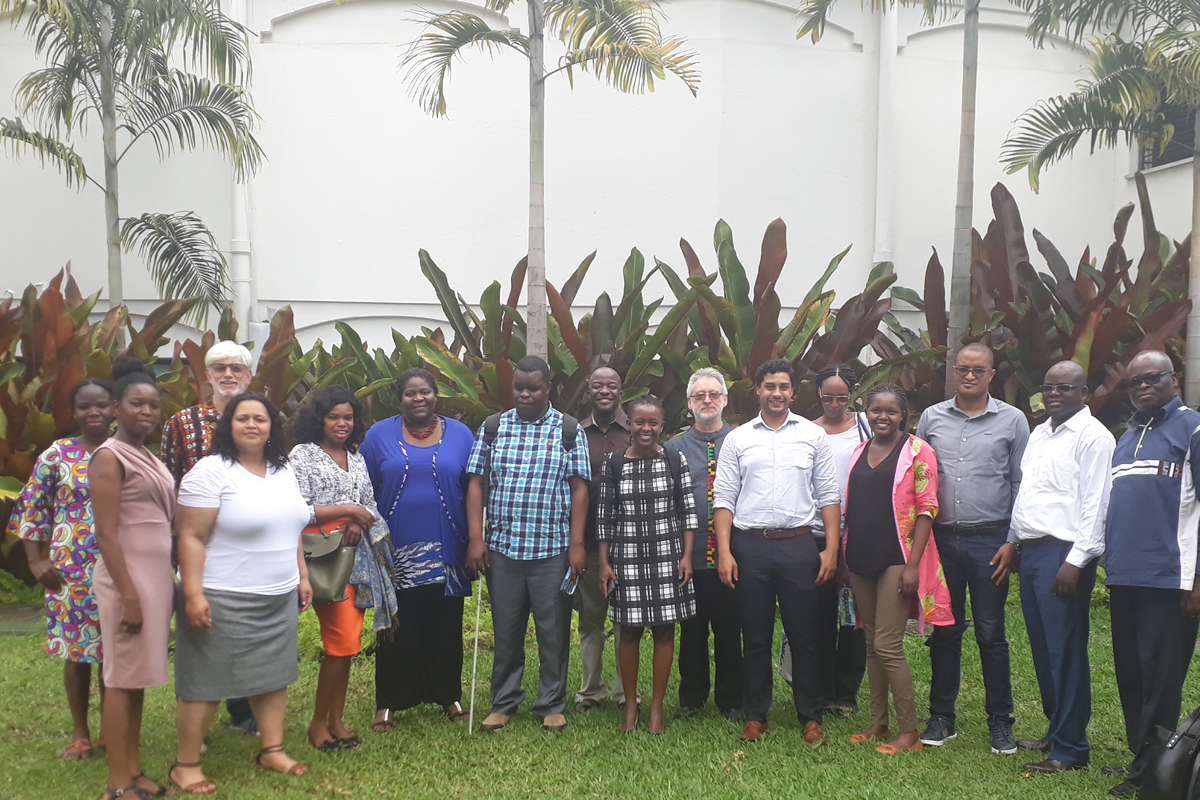- Details
The Centre for Human Rights, University of Pretoria (the Centre), in collaboration with Open Society Foundation will host a webinar to launch the Democratic Republic of Congo (DRC) Elections Report titled “Proactive Disclosure of Information During Elections: An Evaluation of DRC’s Compliance with the Guidelines on Access to Information and Elections in Africa During the Harmonised Elections of 23 August 2023.” This webinar will convene voices from academia, civil society, media, youth formations and public institutions to interrogate the extent to which DRC’s electoral stakeholders complied with the Guidelines on Access to Information and Elections in Africa, adopted by the African Commission on Human and Peoples’ Rights in 2017.
- Details
The Centre for Human Rights, Faculty of Law, University of Pretoria, through its Expression, Information and Digital Rights (EIDR) Unit, participated in the 2025 conference of the African Women in Media (AWiM), hosted at the African Union headquarters in Addis Ababa, Ethiopia from 4 to 5 December 2025. The conference was convened under the theme “Beyond Commitments: Advancing Policies for Gender-Safe Media”.
- Details
Today, 13th February 2026, is World Radio Day, a moment to pause and honour one of the most familiar companions of our lives.
Radio represents and advances the fundamental rights to freedom of expression and access to information. Most of us grew up with the radio. It was always there in the background of ordinary days, perhaps resting on a kitchen shelf, placed on the bedside table, balanced on a windowsill, or tucked into the corner of a small shop. It played in buses and minibuses, in taxis, tro-tros, jeepneys, dala-dalas, colectivos and matatus. It kept farmers company in the fields, vendors alert at their stalls, drivers awake on long roads, and families connected long before smartphones entered our pockets.
- Details
The 10th of February 2026 marks Safer Internet Day. This year’s theme, “Smart tech, safe choices: exploring the safe and responsible use of AI” could not be more relevant for children growing up online today. In South Africa, where more than 95 % of children regularly use the internet, digital spaces are now as central to childhood as classrooms, homes and playgrounds. That transformation has created opportunities, but it has also stressed rights that our Constitution already guarantees.
- Details
On 20 November 2025, the Centre for Human Rights (CHR), Faculty of Law, University of Pretoria, in collaboration with UNESCO, hosted the second webinar in the Social Media 4 Peace (SM4P) Phase II series. Building on the foundational discussions of the first session, this webinar focused on advocacy strategies, coalition-building and platform engagement. The virtual gathering provided a critical space for 35 participants representing civil society, academia, media and youth and women’s organisations to share expertise on navigating the complexities of digital governance. The series serves as an essential precursor to the upcoming workshop in Cape Town, designed to equip stakeholders with the necessary tools to translate research and lived experiences into actionable policy interventions.
- Details
On 13 November 2025, the Centre for Human Rights (CHR), Faculty of Law ,University of Pretoria, in partnership with UNESCO, successfully convened the first webinar of the Social Media 4 Peace (SM4P) Phase II initiative. Titled “Foundations of Content Governance and Digital Rights,” the session brought together 20 participants from academia and civil society to establish a conceptual and legal framework for addressing online harms. This inaugural session serves as a cornerstone for the project’s goal of raising awareness among global stakeholders to address harmful content while strictly safeguarding freedom of expression and access to information.
- Details
By Belinda Matore, an LLD candidate and project officer at the Centre for Human Rights, Faculty of Law, University of Pretoria
It is indisputable that the modern influencer stands as a central figure in contemporary digital life. These individuals, whether operating on TikTok, YouTube or Instagram, possess the ability to translate complex ideas into accessible stories, set cultural rhythms and command the attention of audiences who often hold a deep scepticism toward traditional institutions. We routinely measure their success by the breadth of their reach, their follower counts, their engagement rates, and their capacity to drive consumer behaviour. Yet by focusing solely on the extent of their influence, we overlook a far more critical question: who influences the influencer? The answer is not merely academic; it is profoundly relevant to the health of public discourse. The systemic forces shaping a creator’s message are, by extension, the forces shaping what millions of people see, share, believe and often fight about online. If we seek to educate the public about online harms and cultivate a more peaceful digital environment, we must first understand and, at times, strategically disrupt these powerful underlying forces.
- Details
By Belinda Matore, an LLD candidate and project officer at the Centre for Human Rights in the Faculty of Law at the University of Pretoria
Images of children participating in sport are widespread across social media, club websites, newsletters and broadcasts. While such images celebrate achievement and community, they also expose minors to risks such as exploitation, cyberbullying, identity theft and digital permanence. In South Africa, legal protection for children’s images arises from the Constitution, common law personality rights and the Protection of Personal Information Act 4 of 2013 (POPIA). Yet these frameworks only partially address how children’s images intersect with safeguarding in digital environments.
- Details
The Centre for Human Rights, Faculty of Law, University of Pretoria, joins the international community in observing International Anti-Corruption Day, which is observed annually on 9 December. The 2024 theme is: ‘Uniting with Youth Against Corruption: Shaping Tomorrow's Integrity’. This year’s focus acknowledges the critical role of young people in combating corruption and fostering a culture of accountability and transparency globally. We reaffirm our commitment to addressing corruption, a persistent challenge that undermines democracy, human rights, and sustainable development.
- Details
The Centre for Human Rights, Faculty of Law, University of Pretoria, warmly welcomes the adoption of the Resolution on Promoting and Harnessing Data Access as a Tool for Advancing Human Rights and Sustainable Development in the Digital Age by the African Commission on Human and Peoples’ Rights (ACHPR) during its 81st Ordinary Session. This Resolution represents a landmark achievement in the Commission’s ongoing efforts to ensure that Africa’s digital future is one rooted in human rights, equity, and social justice. By recognising the transformative power of data in promoting democracy, transparency, and accountability, the ACHPR is positioning data access as a crucial tool in advancing the sustainable development agenda and safeguarding fundamental rights across the continent.
- Details
The Information Regulator in partnership with the Centre for Human Rights at the University of Pretoria will host the International Day for Universal Access to Information (IDUAI) Symposium on 27 September 2024.
- Details
On 05 September 2024, the Centre for Human Rights, Faculty of Law, University of Pretoria, collaborated with the International Code of Conduct Association (ICoCA) and the ICT4Peace Foundation and hosted a consultative workshop on the responsible use of technology in private security. The workshop convened participants from the public sector, private security, civil society organisations, and academic institutions to discuss the deployment of new technologies in the private security sector and compliance with human rights and ethical standards.
- Details
From 19 - 21 August 2024, the Centre for Human Rights, Faculty of Law, University of Pretoria convened a capacity-building workshop on the African human rights system for the Africa Internet Rights Alliance (AIRA). AIRA is a dynamic network of Africa-based civil society organisations (CSOs) at the forefront of advancing digital rights and internet freedom across the continent. The purpose of the engagement was to equip AIRA members with a comprehensive understanding of the African human rights system.
- Details
The Centre for Human Rights, Faculty of Law, University of Pretoria, congratulates the Special Rapporteur on Freedom of Expression and Access to Information in Africa (the Special Rapporteur) on the significant occasion of its 20th anniversary. Since its establishment in 2004, the Mechanism has exhibited a remarkable dedication to the principles of freedom of expression and access to information, resolutely advocating for these fundamental rights. On this occasion of this milestone, the Centre for Human Rights, commends the Mechanism’s steadfast advocacy for these fundamental rights across the continent, reflecting a persistent commitment to promoting freedoms essential for public engagement, democratic governance, and the realisation of broader human rights.
- Details
On 23 and 24 July 2024, the Centre for Human Rights (CHR), Faculty of Law, University of Pretoria in collaboration with the Electoral Commissions Forum of SADC Countries (ECF-SADC) and supported by the Open Society Foundations, convened a regional capacity building workshop on the information ecosystem and elections in Africa.
- Details
On 23 and 24 July 2024 in Windhoek, Namibia, the Centre for Human Rights (CHR), Faculty of Law, University of Pretoria in collaboration with the Electoral Commissions Forum of SADC Countries (ECF-SADC) will be convening a regional capacity building workshop on the information ecosystem and elections in Africa.
- Details
The Centre for Human Rights, Faculty of Law, University of Pretoria, joins the rest of the world in commemorating World Telecommunication and Information Society Day (WTISD) 2024, a momentous occasion designated by the UN General Assembly in 2005. This day serves as a platform to spotlight the transformative potential of the internet and other technologies in advancing socio-economic development, while also championing efforts to bridge the digital divide. Its date, May 17, holds profound historical significance, tracing back to the signing of the First International Telegraph Convention on 17 May 1865, which established the International Telecommunication Union (ITU). The establishment of the ITU, laid the foundation for international cooperation and innovation in the dynamic sphere of communication and information technology.
- Details
The Centre for Human Rights, Faculty of Law, University of Pretoria, joins the rest of the world in commemorating Global Accessibility Awareness Day (GAAD). GAAD is an annual global observance held on the third Thursday of May to raise awareness and promote the significance of digital accessibility and inclusion for Persons With Disabilities (PWDs). GAAD promotes dialogue and education, aiming to empower over one billion individuals with disabilities to navigate the digital realm seamlessly. While GAAD primarily focuses on digital accessibility and inclusion for PWDs, its overarching goal is to promote awareness and understanding of accessibility issues in digital environments for all individuals. It also encompasses broader themes of inclusivity, which can include individuals from diverse cultural backgrounds. The 2024 GAAD is commemorated under the theme: ‘Built Without Barriers’, emphasising the importance of creating digital environments that are universally accessible and inclusive.
- Details
The Centre for Human Rights, University of Pretoria is pleased to launch this call for book chapters on the theme of democracy versus mis- and disinformation in Africa. The deadline for submitting abstracts is 30 June 2024.
- Details
From 2 - 3 May 2024, the African Commission on Human and Peoples’ Rights (ACHPR) convened the inaugural experts’ validation session for the study on human and peoples’ rights and artificial intelligence (AI), robotics and other new and emerging technologies in Africa. The validation event took place with a hybrid format, blending in-person attendance in Nairobi, Kenya, with virtual participation. The Centre for Human Rights, Faculty of Law, University of Pretoria, is the technical support institution to the development of the study.
- Details
The Centre for Human Rights, University of Pretoria organised a webinar on 2 May 2024 to discuss youth engagement in elections and participation in politics in South Africa ahead of the 2024 national and provincial elections. The webinar also aimed to diagnose the possible causes of youth decline in participation in elections and politics and proffer possible solutions.
- Details
The World Press Freedom Day is commemorated annually on 3 May to reiterate State obligations to respect, protect and promote press freedom. The United Nations General Assembly proclaimed this day in December 1993. Three decades later, the need to celebrate the democratic contributions of an independent press and reaffirm commitments to protecting the press against existing and evolving threats to their freedom remains crucial.
- Details
The Centre for Human Rights, Faculty of Law, University of Pretoria cordially invites you to a webinar on youth engagement and elections in South Africa.
- Details
On 18 April 2024, the Centre for Human Rights, Faculty of Law, University of Pretoria hosted the pre-election assessment delegation from the Electoral Commission Forum of SADC countries (ECF-SADC) to discuss issues related to electoral preparedness in anticipation of South Africa’s forthcoming National and Provincial Elections scheduled for 29 May 2024.
- Details
The Centre for Human Rights, Faculty of Law, University of Pretoria (the Centre) is looking for a consultant to undertake a study on access to information and the quality of the information ecosystem in the 2024 national and provincial elections in South Africa. The study is supervised by the Expression, Information and Digital Rights Unit under the Access to Information and Elections project.
- Details
The Centre for Human Rights, Faculty of Law, University of Pretoria, welcomes the launch of the "Principles and Guidelines for the Use of Digital and Social Media in Elections in Africa" developed by the Association of African Electoral Authorities (AAEA). The Guidelines and Principles were officially launched by Deputy President of South Africa Paul Mashatile. This notable milestone underscores the significance of integrating digital advancements while steadfastly upholding democratic values.
- Details
Over the past decade, more than half of African countries have shut down internet access at least once. Typically, these internet shutdowns are usually ordered by government authorities amidst major political events such as public protests and elections. Notably, in 2023, ten African countries including Ethiopia, Algeria, Mauritania, Gabon and Senegal collectively contributed to 17 new cases of internet shutdowns. Senegal is the most recent African country to order an internet shutdown in the new year and the shutdown has been instituted twice already in February 2024.
- Details
La première suspension d’internet datamobile a été imposée le 4 février 2024 par le Ministre sénégalais de la communication, télécommunications et économie numérique en réaction au tôlée qui a suivi l’annonce par le président Macky SALL de report de l’élection présidentielle initialement prévue le 25 février 2025 sans donner de nouvelle date. Le Ministre a suspendu de nouveau l’internet, le 13 février à la suite des manifestations continues dans le pays, consécutives à l’annonce du Président SALL.
- Details
The Centre for Human Rights, Faculty of Law, University of Pretoria (Centre) is deeply concerned about the political situation currently unfolding in Senegal. Following President Macky Sall’s announcement on 3 February 2024 annulling the presidential elections earlier set for 25 February 2024, the actions of the Senegalese Government have continued to threaten digital rights in Senegal. The annulment is one of the most recent developments in a series of actions taken by the government leading up to the presidential elections over the past year. These actions include internet shutdowns, attacks on media practitioners and violent crackdowns on public protests. These actions violate various human rights including the rights to freedom of expression, access to information, freedom of association, freedom of assembly, and political participation as guaranteed in domestic national laws and under international treaties ratified by Senegal.
- Details
On 13 February 2024, the Centre for Human Rights, Faculty of Law, University of Pretoria, in collaboration with the South African Human Rights Commission (SAHRC), the Independent Electoral Commission (IEC), the Information Regulator (IR), the Human Research Council (HSRC), Media Monitoring Africa (MMA) and the South African National Editors’ Forum (SANEF) convened an engagement with representatives from the media and civil society, focusing on the upcoming May 2024 South African elections. The purpose of the engagement was to deliberate and strategise on monitoring and reporting on the forthcoming elections, with a specific focus on the information ecosystem, electoral transparency, and integrity. This collaborative initiative underscores the shared commitment to fostering a transparent and informed democratic process in the upcoming electoral events.
- Details
The Centre for Human Rights, Faculty of Law, University of Pretoria (the Centre) stands in solidarity with the global community in observance of World Radio Day, celebrated on 13 February annually. World Radio Day emerged from a proclamation in 2011 by UNESCO member states before being endorsed by the UN General Assembly in 2013. The day is commemorated in recognition of the significance of radio as a medium for accessible communication across the globe.
- Details
The Centre for Human Rights,Faculty of Law, University of Pretoria welcomes and applauds the recent adoption of the Resolution on mass surveillance and unlawful targeted surveillance by the African Commission on Human and Peoples’ Rights (the African Commission). Resolution 573 was adopted during the 77th Ordinary Session of the African Commission held from 20 October to 9 November 2023 in Arusha, Tanzania. The landmark Resolution on the deployment of mass and unlawful targeted communication surveillance and its impact on human rights in Africa, is a significant step by the African Commission in recognising the importance of human rights protection in an increasingly interconnected world, particularly the need to safeguard privacy rights in the face of evolving technological advancements.
- Details
The Centre for Human Rights, Faculty of Law, University of Pretoria (Centre) joins the global community in commemorating Data Protection Day 2024. Launched by the Council of Europe (CoE) in 2006, Data Protection Day was set for January 28 of every year in recognition of the day that the CoE opened its data protection convention (Convention 108) for signature. The day is now celebrated across the globe, known sometimes as International Data Privacy Day to raise awareness about data protection and privacy. In celebrating the day, the Centre notes the commitments by the African Union (AU) and its member States to ensure the protection of personal information through data protection frameworks in Africa. However, given the ever-evolving nature of data use, there is a need to increase these efforts.
- Details
On 4 October 2023, the Centre for Human Rights, University of Pretoria, in collaboration with the Independent Electoral Commission of South Africa (IEC), the Information Regulator (IR), the South African Human Rights Commission (SAHRC), the Human Sciences Research Council (HSRC) and Media Monitoring Africa (MMA) held an engagement with political parties and candidates in Johannesburg to discuss the role of political parties and candidates in promoting access to information ahead of the 2024 elections.
- Details
On 27 and 28 September 2023, the Centre for Human Rights, Faculty of Law, University of Pretoria, organised a two-day virtual seminar in commemoration of the 10th anniversary of the adoption of the African Commission on Human and Peoples' Rights’ Model Law on Access to Information for Africa. The Model Law was adopted on 13 February 2013, to provide legislative guidance for developing new and reviewing existing access to information laws in line with international best practices. It contains best practices and represents a harmonised approach to access to information throughout the continent and also serves as a basis for advocating for an enhanced access to information environment. The seminar provided a platform for exploring the status of access to information in Africa, including milestones and challenges.
Webinar Invitation: Launch of reports on Proactive Disclosure of Information and Elections in Africa
- Details
The Centre for Human Rights and its partners ARTICLE 19 Eastern Africa, and ARTICLE 19 Western Africa invite stakeholders to the launch of the reports on Proactive Disclosure of Information and Elections in Africa. The reports assessed state compliance with the African Commission on Human and Peoples’ Rights 2017 Guidelines on Access to Information and Elections in Africa (the Guidelines).
- Details
2023 marks the 10th anniversary of the African Commission on Human and Peoples’ Rights’ (African Commission) adoption of the Model Law on Access to Information for Africa (the Model Law). Centre for Human Rights, University of Pretoria will be organising a commemorative seminar on 27 and 28 September 2023, which aims to explore the status of access to information in Africa.
- Details
2023 marks the 10th anniversary of the African Commission on Human and Peoples' Rights' (African Commission) adoption of the Model Law on Access to Information for Africa (the Model Law). The Model Law was adopted on February 13, 2013 and provides guidance on Member States' legislative obligations in promoting and protecting the right to access information as outlined under article 9 of the African Charter on Human and Peoples' Rights (the African Charter) and other relevant instruments such as the Declaration of Principles on Freedom of Expression and Access to Information in Africa and the Guidelines on Access to Information and Elections in Africa.
- Details
The Centre for Human Rights, University of Pretoria, and the Zimbabwe chapter of the Media Institute of Southern Africa (MISA), hosted a multi-stakeholder engagement on 27 and 28 June 2023 in Harare, Zimbabwe. The engagement sought to promote a healthy information ecosystem throughout the Zimbabwean election process by enhancing access to information and promoting rights-based approaches to addressing the disinformation challenge.
- Details
From the 20th to the 22nd of June 2023, the University of Pretoria’s (UP) faculty of law, Centre for Human Rights’(CHR), Expression, Information and Digital Rights Unit, in collaboration with the Transformation Resource Centre (TRC), hosted a digital rights capacity-building workshop for parliamentarians in Maseru, Lesotho.
- Details
The 2023 World Press Freedom Day (WPFD) day is commemorated under the theme: ‘Shaping a Future of Rights: Freedom of Expression as a Driver for all Other Human Rights.’ On this occasion, the Centre for Human Rights, University of Pretoria (the Centre) recalls the 2019 Declaration of Principles on Freedom of Expression and Access to Information in Africa (the Declaration) which frames freedom of expression as a cross-cutting fundamental human right that is a cornerstone of democracy and a means of ensuring respect for other human rights (civil and political rights and socio-economic rights). As a basic and enabling right, freedom of expression can also potentially contribute to the much-needed socio-economic development and democratic transformation in Africa.
- Details
On 27 April 2023, the Centre for Human Rights’ Expression, Information and Digital Rights Unit (EIDR) in collaboration with Youth and Society (YAS) of Malawi, hosted a webinar on the status of implementation of the Malawi Access to Information Act. The webinar was moderated by Chrispin Bosire, Smith Naseri Edumebong and Idirashe Amanda Chikomba, from the EIDR clinic. The speakers were drawn from stakeholders in Malawi that are contributing to the implementation of the Act. These are Mandy Pondani (Media Institute of Southern Africa-MISA Malawi), Mwandida Theu (Youth and Society), Chance Kalolokeska (Malawi Human Rights Commission) and Authur Chipenda (Malawi Ministry of Information and Digitisation). The webinar is part of the Centre for Human Rights’ commemoration of 10 Years of the Model Law on Access to Information for Africa that was adopted by the African Commission on Human and Peoples’ Rights in 2013, to provide legislative guidance to member states of the African Charter on Human and Peoples’ on the implementation of article 9 of the African Charter which provides for the right of access to information.
- Details
The Centre for Human Rights of the University of Pretoria and Youth and Society (YAS), invites you to a webinar on the state of Access to Information (ATI) in Malawi. The webinar seeks to assess Malawi’s compliance with the international human rights practices on the right of access to information and to provide a platform for stakeholders working in the ATI sector to share insights on the implementation of Malawi’s Access to Information Act.
- Details
The Expression, Information and Digital Rights (EIDR) Unit of the Centre for Human Rights, University of Pretoria attended the Digital Rights Inclusion Forum (DRIF) held in Nairobi, Kenya from 12 - 14 April 2023. DRIF is a platform where conversations on digital policy in Africa are shaped, policy directions debated, and partnerships forged for action. The 2023 theme was ‘Building a sustainable Internet for all.’ Together with its consortium partners, Global Partners Digital (GPD), Article 19 West Africa, the Collaboration on International ICT Policy for East and Southern Africa (CIPESA), and PROTEGE QV, the Centre hosted a panel discussion titled ‘At what risk to rights and internet freedom? Examining government responses to disinformation’.
- Details
The Centre for Human Rights, Faculty of Law, University of Pretoria (the Centre) denounces the conviction of Citizens Coalition for Change (CCC) party spokesperson Fadzayi Mahere. Mahere, a prominent political activist and lawyer, was found guilty by a Harare Regional Magistrate on charges of publishing falsehoods emanating from a retweet where she shared information that a police officer had beaten to death a child with a baton in Harare. The Court held that she undermined the authority of the police through her tweet and noted that her conduct was reckless and detrimental to the State as it intended to undermine the police force and also erode public confidence in the law enforcement agents. The contentious charges carried an imprisonment term of up to 20 years and a fine. The Court opted to impose a fine of USD 500 on Mahere and not a prison sentence.
- Details
On 4 April 2023, the Expression, Information and Digital Rights Unit, and the Media Institute of Southern Africa (MISA) Zimbabwe, hosted an engagement workshop with political actors in Harare, Zimbabwe. The engagement workshop, which was attended by eight Members of Parliament and thirteen representatives from various government departments, discussed the role of political actors in promoting rights respecting approaches to tackling disinformation in Zimbabwe. The Centre for Human Rights (the Centre) was represented by Marystella Simiyu and Jared Gekombe. The workshop was facilitated by a panel of experts namely: Marystella Simiyu of Centre for Human Rights, Nompilo Simanje of International Press Institute, Rehyana Masters, independent expert, and Helen Sithole of MISA-Zimbabwe.
- Details
On 31 March 2023, the Expression, Information and Digital Rights Unit, Centre for Human Rights welcomed the team from Lawyers Hub Kenya. The delegation was led by the CEO and founder Linda Bonyo.
- Details
The Expression, Information and Digital Rights (EIDR) unit in collaboration with the Media Institute of Southern Africa Zimbabwe (MISA-Zimbabwe) conducted a capacity-building workshop on promoting rights-respecting approaches to disinformation for Community-based Organisations (CBOs) on 17 November in Harare, Zimbabwe. Representatives from the media fraternity and academic institutions were also in attendance.
- Details
The Centre for Human Rights, University of Pretoria (the Centre), is providing technical support to the African Commission on Human and Peoples' Rights (ACHPR) in its continental project on human rights and artificial intelligence (AI), robotics and other new and emerging technologies in Africa.
- Details
The Centre for Human Rights, University of Pretoria (the Centre) hosted an Access to Information and Elections in South Africa symposium on 10 and 11 November 2022 at the University of Pretoria. Co-hosting the event were the Independent Electoral Commission of South Africa (IEC), the Information Regulator (IR), the South African Human Rights Commission (SAHRC), the Human Sciences Research Council (HSRC), and Media Monitoring Africa (MMA). The symposium is part of an advocacy project to promote the transparency and integrity of elections, and meaningful participation in elections by an informed electorate in South Africa. To this end, the symposium advocates for the implementation of the Guidelines on Access to Information and Elections in Africa were developed by the African Commission on Human and Peoples' Rights. Further, the symposium seeks to promote the implementation of the recommendations of the 2020 report titled Proactive Disclosure of Information and Elections in South Africa. The SA report assessed South Africa’s compliance with the Guidelines and made targeted recommendations to electoral stakeholders.
- Details
The Centre for Human Rights, University of Pretoria (the Centre) will be hosting an Access to Information and Elections in South Africa symposium on 10 and 11 November 2022 at the University of Pretoria. The symposium is hosted in collaboration with the Independent Electoral Commission of South Africa (IEC), the Information Regulator (IR), the South African Human Rights Commission (SAHRC), the Human Sciences Research Council (HSRC), and Media Monitoring Africa (MMA).
- Details
In the last few years Africa’s sub-regional courts have passed judgments that buttress the importance of internet freedom. On 17 July 2022 the Court of Justice of the Economic Community of West African States (ECOWAS Court) found that the Nigerian government’s 7-month Twitter ban violated article 9 of the African Charter on Human and Peoples’ Rights and article 19 of the International Covenant on Civil and Political Rights (ICCPR).
- Details
The Centre for Human Rights, University of Pretoria (the Centre) is pleased to invite interested persons to express their interest to participate in a two-day election symposium on 10 - 11 November 2022 at the University of Pretoria.
- Details
The Centre for Human Rights’ Expression, Information and Digital Rights (EIDR) Unit hosted a two-day-long training and capacity-building workshop on Digital Rights in Southern Africa, from 04 to 05 October 2022. The workshop was targeted at government officials and National Human Rights Institutions (NHRIs) in Southern Africa. It is part of the stakeholder-specific workshops that commenced following the launch of the Digital Rights in Southern Africa report, which informs the training. The participants were from Angola, Lesotho, Malawi, Mozambique, Namibia, South Africa, Tanzania, and Zimbabwe.
- Details
The Expression, Information and Digital Rights Unit cordially invites you to the first of five interactive sessions on the Implementation of the Protection of Personal Information Act (POPIA), 2013.
SESSION 3: Protection of Personal Information and Organisational Compliance
- Details
On 15 August 2022, the Centre for Human Rights’ Expression, Information and Digital Rights unit hosted a digital rights training and capacity-building workshop for civil society organisations from Botswana, DRC, Eswatini, Lesotho, Malawi, Mozambique, Madagascar, Namibia, Zambia and Zimbabwe. Among the participants were representatives of NGOs, journalists, lawyers, and academics. The training was based on the Digital Rights Landscape in Southern Africa report launched on 3 August 2022. The objective of the training was to advance and enhance public interest and awareness of digital rights among civil society organisations.
- Details
On 3 August 2022, the Expression, Information and Digital Rights unit, launched the Digital Rights in Southern Africa Landscape report. The report is based on the African Charter on Human and Peoples’ Rights, and other international and regional human rights instruments that are important in the enforcement of human rights in the digital age. It seeks to enhance public interest and awareness of digital rights to exert direct influence on Southern African states to implement normative human rights standards in the digital age.
- Details
The Centre for Human Rights, University of Pretoria, cordially invites you to join the launch of The Digital Rights Landscape in Southern Africa report based on the African Charter on Human and Peoples’ Rights, and other international and regional human rights instruments that are relevant in articulating human rights in the digital age. The report aims to improve the level of public interest and awareness on digital rights to exert direct influence on Southern African states to implement normative human rights in the digital age.
- Details
The Expression, Information and Digital Rights Unit cordially invites you to the first of five interactive sessions on the Implementation of the Protection of Personal Information Act (POPIA), 2013.
SESSION I Topic: Protection of Personal Information and Consent under the POPIA
- Details
The Centre for Human Rights, University of Pretoria (CHR) is looking for a consultant to undertake a survey on the state of access to information during elections following the 2019 elections in South Africa. This falls under the access to information and elections project of the Expression, Information and Digital Rights Unit of the CHR.
- Details
The Centre for Human Rights, University of Pretoria is pleased to announce the continued expansion of the project on assessing State compliance with the Guidelines on Access to Information and Elections in Africa (the Guidelines). The Guidelines is a soft law instrument developed by the African Commission on Human and Peoples’ Rights (African Commission) and adopted during its 61st Ordinary Session in November 2017. It derives from article 9 of the African Charter on Human and Peoples' Rights which guarantees the right of access to information. The Guidelines require the Member States of the African Charter to give effect to the right of access to information through legislative and other measures.
- Details
Wellspring’s International Human Rights (IHR) Program seeks a consultant with experience as a practitioner in the transitional justice field to support the Senior Program Officer to further develop a line of grant making to advance implementation of reparation programs for victims and survivors of mass or war-related atrocities and crimes.
- Details
The Centre for Human Rights, University of Pretoria, cordially invites you to a virtual conference on 4 and 5 November 2020. The theme of the conference is ‘Elections and COVID-19: Harnessing the pandemic to improve elections.’ The conference is organised by the Democracy and Civic Engagement Unit and the Expression, Information and Digital Rights Unit of the Centre for Human Rights. The conference invites academics, policymakers, practitioners, researchers and other stakeholders with a keen interest in democracy and elections, information technology and human rights law in the African context.
- Details
The Centre for Human Rights, University of Pretoria (the Centre) is assessing state compliance with the Guidelines on Access to Information and Elections in Africa (the Guidelines) that the African Commission on Human and Peoples’ Rights (the African Commission) adopted during its 61st Ordinary Session in November 2017. The Centre has completed its initial country assessment under the Guidelines focusing on the 2019 elections in South Africa.
- Details
The Centre for Human Rights, University of Pretoria, cordially invites you to a conference on privacy and data protection in Africa from 12 to 15 October 2020. The conference is organised by the Expression, Information and Digital Rights Unit in collaboration with the African Declaration on Internet Rights and Freedoms Coalition(AfDec Coalition). The conference will be of interest to academics, students, policymakers and practitioners working in the areas of privacy, data protection, big data, information technology, and human rights law in Africa and others interested in understanding of the state of privacy and data protection, particularly within the African context. The conference is aimed at improving privacy and data protection scholarship in Africa.
- Details
The Centre for Human Rights, University of Pretoria, ARTICLE 19 (Eastern and Western Africa), Media Institute of Southern Africa (MISA) Zimbabwe, Transparency International (Kenya), and the Special Rapporteur on Freedom of Expression and Access to Information in Africa cordially invite you to a webinar on the occasion of the commemoration of the International Day for Universal Access to Information (IDUAI).
- Details
The Centre for Human Rights, University of Pretoria, is assessing state compliance with the Guidelines on Access to Information and Elections in Africa (the Guidelines) that the African Commission on Human and Peoples’ Rights (the African Commission) adopted during its 61st Ordinary Session in November 2017. The Centre has completed its initial country assessment under the Guidelines focusing on the 2019 elections in South Africa.
- Details
The Democracy and Civic Engagement Unit and the Expression, Information and Digital Rights Unit at the Centre for Human Rights, University of Pretoria, are hosting a (virtual) conference on 29 October 2020 under the theme ‘Elections and COVID-19: Harnessing the pandemic to improve elections’.
- Details
The Centre for Human Rights, University of Pretoria, cordially invites you to a webinar organised by the Expression, Information and Digital Rights Unit on “Proactive disclosure of information and elections in South Africa”. The webinar will focus on South Africa’s compliance with the Guidelines on Access to Information and Elections in Africa, issued by the African Commission on Human and Peoples’ Rights. This flows from a collaborative research report on access to information and elections during South Africa’s 2019 elections, that will be formally launched.
- Details
The Expression, Information and Digital Rights Unit at the Centre for Human Rights, Faculty of Law, University of Pretoria will be hosting a session on “Civil society in the digital age in Africa: identifying threats and mounting pushbacks” at the 2020 RightsCon.
- Details
The Centre for Human Rights calls on the African Commission through the Special Rapporteur on Freedom of Expression and Access to Information in Africa to urgently issue an appeal to the Zimbabwean government to respect and abide by its human rights obligations under the African Charter and other international law. This ongoing crackdown, if left unchecked, will cement the culture of impunity and entrench unwarranted arrests of journalists and human rights defenders. The Centre for Human Rights also takes this opportunity to impress upon the relevant authorities the need to respect constitutional provisions on media freedom and free expression and reiterates that journalism is not a crime, but a crucial element in the exercise of freedom of expression and an essential component of democracy that is also instrumental in fighting against corruption. Journalists and other media practitioners deserve protection.
- Details
#Tech4Rights: The importance of technology and human rights
In conversation with Ms Hlengiwe Dube
- Details
On 7 July 2020, the Centre for Human Rights, University of Pretoria, hosted a follow-up webinar on privacy and data protection in Africa in the COVID-19 context. Privacy and data protection practitioners from Africa analysed the current status of data protection and privacy on the continent. In the responses to COVID-19, there is collection, sharing, storage and processing of personal information. This raises questions regarding Africa’s preparedness to the security, management and protection of personal information and safeguarding the right to privacy. The webinar assessed privacy and data protection approaches in the various responses to COVID-19.
- Details
The Centre for Human Rights is inviting experts and practitioners in the area of privacy and data protection to submit abstracts for a conference and book project. Contributions can be in the context of national, regional and international human rights on legal, regulatory, academic and technological developments and other perspectives on privacy and data protection. This project is meant to build upon existing scholarly work on data protection and data privacy in Africa. The book publication will be preceded by a conference that will be held in October 2020. Book chapters will be selected from the conference manuscripts.
- Details
On 23 June 2020, the Centre for Human Rights facilitated a discussion on data protection and privacy issues in Africa. Data protection authorities explored the status of privacy and data protection on the continent. They highlighted the milestones and challenges faced in the adoption and implementation of data protection legislation. The discussion also included privacy and protection of personal information in the context of COVID-19 and steps that have been adopted to ensure that individual privacy is protected while trying to achieve the broader goal of the protecting public health.
- Details
Today, Global Partners Digital (GPD), ARTICLE 19, the Collaboration on International ICT Policy for East and Southern Africa (CIPESA), PROTEGE QV and the Center for Human Rights, University of Pretoria, jointly launched an interactive map to track and analyze disinformation laws, policies, and patterns of enforcement across Sub-Saharan Africa.
- Details
As the world commemorates the World Press Freedom Day, the Centre for Human Rights, University of Pretoria, commends the African Commission on Human and Peoples’ Rights for making available the revised Declaration of Principles of Freedom of Expression and Access to Information in Africa at a time when the world has been plunged into a global health crisis, COVID-19. The current Declaration replaces the 2002 Declaration of Principles of Freedom of Expression in Africa. The revision was undertaken by the Special Rapporteur on Freedom of Expression and Access to Information (Special Rapporteur) against the backdrop developments in the developments that have taken place in the context of freedom of expression, access to information.
- Details
The African Commission on Human and Peoples’ Rights has published the revised Declaration of Principles of Freedom of Expression and Access to Information in Africa (the Declaration). The Commission adopted the Declaration during its 65th Ordinary Session which was held from 21 October to 10 November 2019 in Banjul, The Gambia. The revised Declaration replaces the 2002 Declaration of Principles of Freedom of Expression in Africa. The initiative to revise the Declaration was undertaken by the Special Rapporteur on Freedom of Expression and Access to Information (the Special Rapporteur). The adoption of the Declaration is a landmark development that elaborates article 9 of the African Charter on Human and Peoples’ Rights and will contribute to an enhanced normative standard for freedom of expression, access to information and digital rights in Africa, in line with international human rights and standards. The Declaration was scheduled to be launched during the African Commission’s 66th Ordinary Session which has been deferred due to the COVID-19 crisis.
- Details
The study on Civil society in the digital age in Africa: identifying threats and mounting pushbacks was undertaken by the Centre for Human Rights, University of Pretroia and the Collaboration on International ICT Policy in East and Southern Africa (CIPESA) to explore the extent of state-sponsored digital challenges that the civil society in Africa is faced with. It illustrates the challenges faced by civil society organisations and the importance of digital security measures.
- Details
On 18 and 19 October 2019, the Democracy, Transparency and Digital Rights (DTDR) Unit at the Centre for Human Rights, University of Pretoria, participated in the regional consultation meeting for Francophone West Africa and North Africa on freedom of expression and access to information. The meeting was organised by the Special Rapporteur on Freedom of Expression and Access to Information in Africa, Commissioner Lawrence Mute. The consultation was aimed at discussing strategies for ensuring effective realisation of access to information; exploring how access to information may be used to support a free and fair electoral environment; and strategising on ways of ensuring freedom of expression.
- Details
On 19 and 20 September 2019 the Democracy, Transparency and Digital Rights Unit at the Centre for Human Rights, University of Pretoria, attended the sub-regional consultation to revise the draft Declaration of Principles on Freedom of Expression and Access to Information in Africa in Windhoek, Namibia. The consultation was at the invitation of the Special Rapporteur on Freedom of Expression and Access to Information in Africa Mr Lawrence Mute and was hosted and facilitated by the Namibia Media Trust in collaboration with ACTION Namibia Coalition.
- Details
On 27 September 2019, the Centre for Human Rights, University of Pretoria (UP), collaborated with the South African Information Regulator, South African Human Rights Commission (SAHRC), UNESCO, Media Monitoring Africa, African Centre of Excellence for Information Ethics (ACEIE), UP and other stakeholders in commemorating International Day for Universal Access to Information (IDUAI). IDUAI is celebrated on annually on 28 September and the commemorations focused on the right of access to information in relation to digital equality and universal access to the internet.
- Details
The seventh African School on Internet Governance (AfriSIG 2019) took place on 3-9 September 2019. With a track record of producing unique cohorts of internet governance specialists for the continent and beyond, it sets itself apart by building synergies and interpersonal professional relationships that transcend beyond borders and limitations.
- Details
As the World Commemorated World Democracy Day on 15 September 2019, the Centre for Human Rights reflects on the wobbly democracy trajectory on the African continent and reiterate on the observation by the late Kofi Annan that: “no one is born a good citizen; no nation is born a democracy. Rather, both are processes that continue to evolve over a lifetime.”
- Details
On 2 and 3 September 2019, the Democracy, Transparency and Digital Rights (DTDR) Unit at the Centre for Human Rights, University of Pretoria, held a workshop on access to information and election preparedness in Botswana. The workshop was held ahead of the Botswana general elections scheduled for 23 October 2019. The workshop was organised in collaboration with the Electoral Commissions Forum of Southern African Development Community (ECF-SADC) and the Law Department of the University of Botswana. In attendance were a diverse group of stakeholders including representatives from the Independent Electoral Commission (IEC), the Attorney General Chambers, the Botswana Communications Authority (BOCRA), members of the media, representatives of political parties and civil society organisations (CSOs).
- Details
On 6 August, 2019, the Democracy, Transparency and Digital Rights Unit at the Centre for Human Rights, University of Pretoria, in collaboration with the Open Society Foundations - Africa Regional Office (OSF-AFRO) attended a seating at the Pan-African Parliament (PAP) Committee on Justice and Human Rights to appraise the parliamentarians of the Guidelines on Access to Information and Elections in Africa. Further, the Centre sought to discuss the possibility of developing a Model Law on Access to Information and Elections under the auspices of the PAP, based on those Guidelines that the African Commission on Human and Peoples’ Rights adopted in 2017.
- Details
On 30 and 31 July, the Democracy, Transparency and Digital Rights Unit and the Disability Rights Unit attended a workshop organised by the Westminster Foundation for Democracy (WFD) on advancing the inclusion and participation of persons with disability in Mozambique. The workshop was attended by officials from the Ministry of Gender, Children and Social Action (MGCSA) and Office of the Ombudsman; the Deputy President of the National Assembly. In attendence were also representatives from civil society organisations, most of them working on disability issues including the Centre for Human Rights (University of Pretoria) Light of the World, Associação dos Deficientes Moçambicanos (ADEMO), Forum das Organizações Moçambicanas de Deficientes (FAMOD), UNICEF, academia and the media.
- Details
On 11 and 12 July 2019, the Democracy, Transparency and Digital Rights Unit at the Centre for Human Rights, University of Pretoria, participated in the first regional consultation of the revision of the Declaration of Principles on Freedom of Expression in Africa. The regional consultation meeting, covering only Lusophone countries in Africa, was held in Maputo and was organised by the Mozambique chapter of the Media Institute of Southern Africa (MISA).
- Details
Join the Centre for Human Rights at RightsCon Tunis 2019 to discuss the feasibility of developing a digital rights model law for Africa. The conversation looks to focus on the challenges and the likely success of developing region-specific legislation on digital rights. It looks to work on having member states work towards rights-respecting legal policy solutions for new and emerging technologies in Africa from a regional perspective.
- Details
The Centre for Human Rights, University of Pretoria, is deeply concerned about the reported blocking of social media by the government of Eritrea to curb an impending demonstration ahead of the country’s Independence Day commemorations. Eritrea is due to celebrate its 26th Independence Day on 24 May 2019.
- Details
As the world commemorates World Press Freedom Day, it is sad to note that Africa is yet to fully enjoy press freedom as several developments curtail the enjoyment of press freedom provided under article 9 of the African Charter on Human and Peoples’ Rights (the Charter). The continued presence of defamation, secrecy, insult laws and the overly stringent regulation of the internet which impede freedom of speech are causes for concern.
- Details
The African Commission on Human and Peoples’ Rights’ Special Rapporteur on Freedom of Expression and Access to Information in Africa has launched the public consultation process of revising the 2002 Declaration of Principles on Freedom of Expression in Africa (the Declaration), during the African Commission’s 64th Ordinary Session in Sharm el-Sheikh, Egypt.
- Details
The Centre for Human Rights, University of Pretoria, participated in a conference on ensuring free and fair elections in Africa with a particular focus on the role of commissions, media and courts. The conference was organised by the South African Institute for Advanced Constitutional, Public, Human Rights and International Law (SAIFAC) in collaboration with the Department of Public Law, University of Johannesburg at the historic Women’s Gaol, Constitutional Hill on 11 April 2019. With the South African general elections scheduled for 8 May 2019, the conference provided an opportune platform for sharing experiences from other African jurisdictions including Zimbabwe and Kenya.
- Details
The Centre for Human Rights, University of Pretoria, participated in a consultative meeting with United Nations (UN) Special Rapporteur Clément Voule, in Nairobi, Kenya on 21 and 22 February 2019. The meeting was organised by the International Center for Not-for-Profit Law (ICNL), the Collaboration on International ICT Policy for East and Southern Africa (CIPESA) and the Kenyan Civil Society Reference Group. Civil society organisations from Benin, Burundi, Cameroon, the Democratic Republic of the Congo, Ethiopia, The Gambia, Ghana, Kenya, Malawi, Nigeria, Rwanda, Sierra Leone, South Africa, Tanzania, Togo, Uganda, Zambia and Zimbabwe participated in the meeting. They deliberated on the rights to freedom of association and assembly in the digital age, identified threats to civic space in the digital era and proposed strategies to counter those threats. The meeting was part of the interactive consultations that the UN Special Rapporteur has been undertaking with stakeholder to contribute to his report on protecting freedoms of association and assembly in the digital era.
- Details
On 21 March 2019, the Centre for Human Rights, University of Pretoria, participated in the Media and Elections Regional Meeting (Southern Africa) which was organised by the Media Alliance of Zimbabwe in Johannesburg. The meeting was aimed at sharing lessons and experiences of the media’s role during elections in Southern Africa, with a view to strengthening advocacy for media freedom, access to information and freedom of expression in the region. To gain a critical understanding of the recently adopted Southern Africa Development Community Parliamentary Forum (SADC PF) Model Law on Elections, the meeting was attended by representatives from the media and civil society organisations from Malawi, Swaziland, South Africa, Mozambique, Botswana, and Zimbabwe.
- Details
The Special Rapporteur on Freedom of Expression and Access to Information in Africa, Commissioner Lawrence Mute, undertook an advocacy visit to Nigeria from 24 to 27 September 2018 to raise awareness on article 9 of the African Charter on Human and Peoples’ Rights which establishes the right to freedom of expression and access to information. Specifically, the Special Rapporteur sought to evaluate the implementation of the Freedom of Information Act (FOIA) that Nigeria adopted in 2011. He met relevant stakeholders in the access to information sector to understand the circumstances and challenges around the implementation of Nigeria’s Freedom of Information Act. Subsequent to this visit, the Special Rapporteur prepared an Advisory Paper and compiled recommendations on how the government and other stakeholders in Nigeria can fully implement the freedom of information law.
- Details
On 28 and 29 March 2019, the Centre for Human Rights, University of Pretoria, participated in the third technical drafting meeting of revising the Declaration on Principles of Freedom of Expression and Access to Information in Africa (the Declaration). The meeting, held in Mombasa, Kenya, was organised under the auspices of the Special Rapporteur on Freedom of Expression and Access to Information in Africa (Special Rapporteur). The Special Rapporteur is undertaking the initiative to revise the Declaration which was adopted by the African Commission on Human and Peoples’ Rights (African Commission) in 2002 against the backdrop of the African Commission Resolution 362, Resolution 350 and Resolution 222. The resolutions gave the Special Rapporteur the mandate to revise the Declaration, include access to information and internet related issues as they apply to article 9 of the Charter.
- Details
The Centre for Human Rights, University of Pretoria (the Centre) is deeply concerned by the reported ongoing human rights violations in our immediate northern neighbour, taking the form of excessive use of force and restrictions on the free flow of information. We urge the South African government to offer itself as a facilitator to assist in seeking a solution in the interest of Zimbabwe’s people.
- Details
On 29 November 2018, The Centre for Human Rights, Media Institute for Southern Africa and Zimbabwe Lawyers for Human Rights organized a workshop in Harare, Zimbabwe, aimed at reflecting on Zimbabwe’s 2018 elections. This was in the context of access to information , freedom of expression and digital rights against the backdrop of the normative standards adopted by the African Commission on Human and Peoples’ Rights such as the Model Law on Access to Information in Africa and the Guidelines on Access to Information and Elections in Africa. The workshop was attended by representatives from the media, media organisations, political parties, election monitors and civil society organisations including women, youth and disability organisations.
- Details
The Centre for Human Rights (the Centre) organised a panel discussion on access to information and elections in Africa during the African Commission on Human and Peoples’ Rights’ (African Commission) 63rd Ordinary Session in Banjul, The Gambia. The panel discussion was held on 28 October 2018, and was moderated by the Special Rapporteur on Freedom of Expression and Access to Information in Africa, Commissioner Lawrence Mute. The panel consisted of Maxwell Kadiri, of the Open Society Justice Initiative; Raouf Salami, of the ECOWAS Network of Electoral Commissions (ECONEC) and Joana Cortes, a senior official of the Gender Ministry of Angola. The discussion was aimed at popularizing and facilitating dialogue on the Guidelines on Access to Information and Elections in Africa (the Guidelines), which the African Commission adopted during the 61st Ordinary Session in November 2017.
- Details
On 11 and 12 October 2018, the Centre for Human Rights, University of Pretoria in collaboration with the Special Rapporteur on Freedom of Expression and Access to Information in Africa (Special Rapporteur), Commissioner Lawrence Mute, organised a technical draft meeting of experts on the Revision of the Declaration of Principles on Freedom of Expression in Africa, in Mombasa, Kenya.


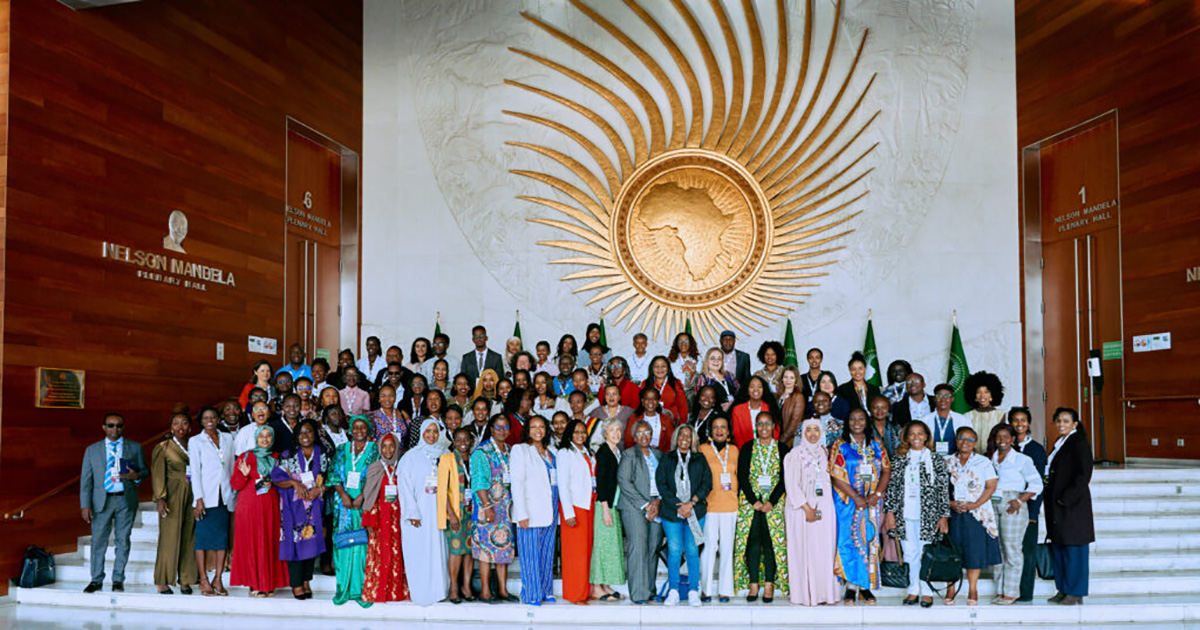
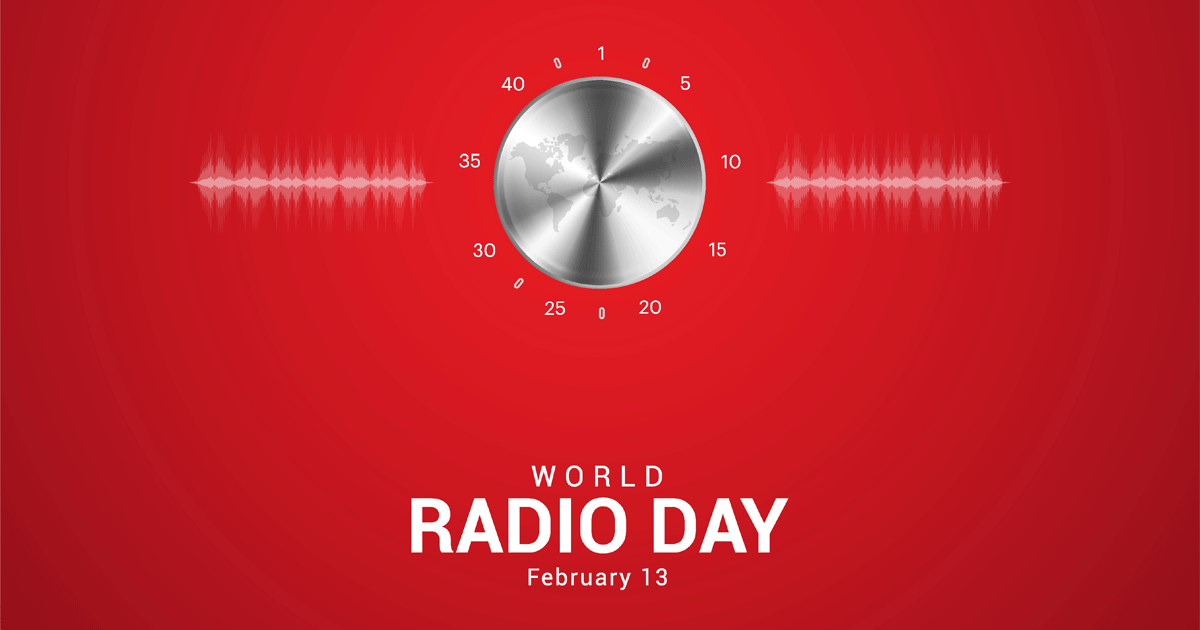
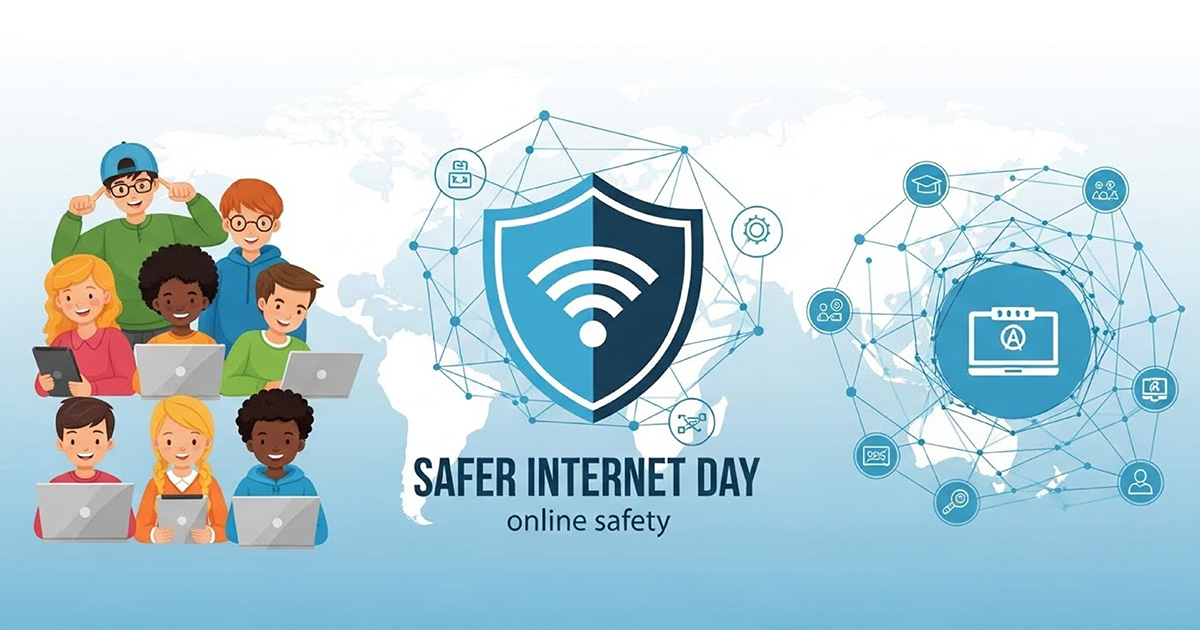
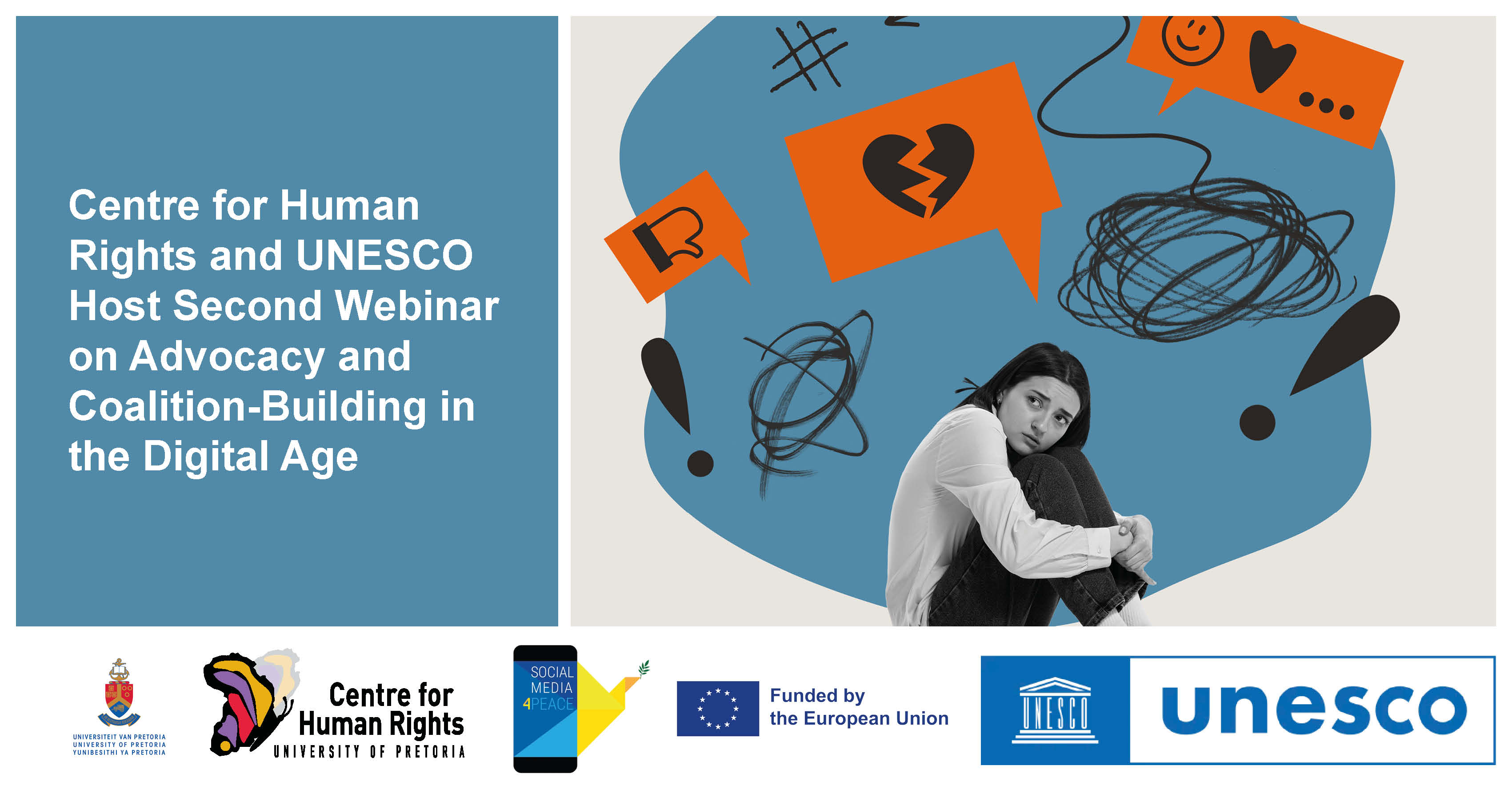


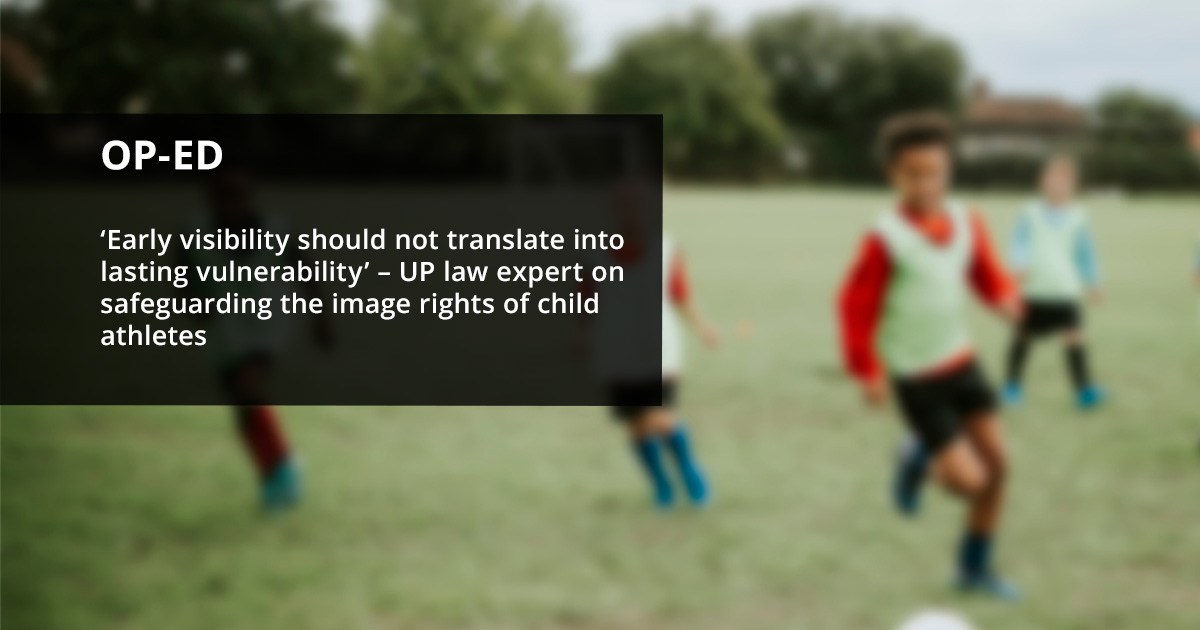
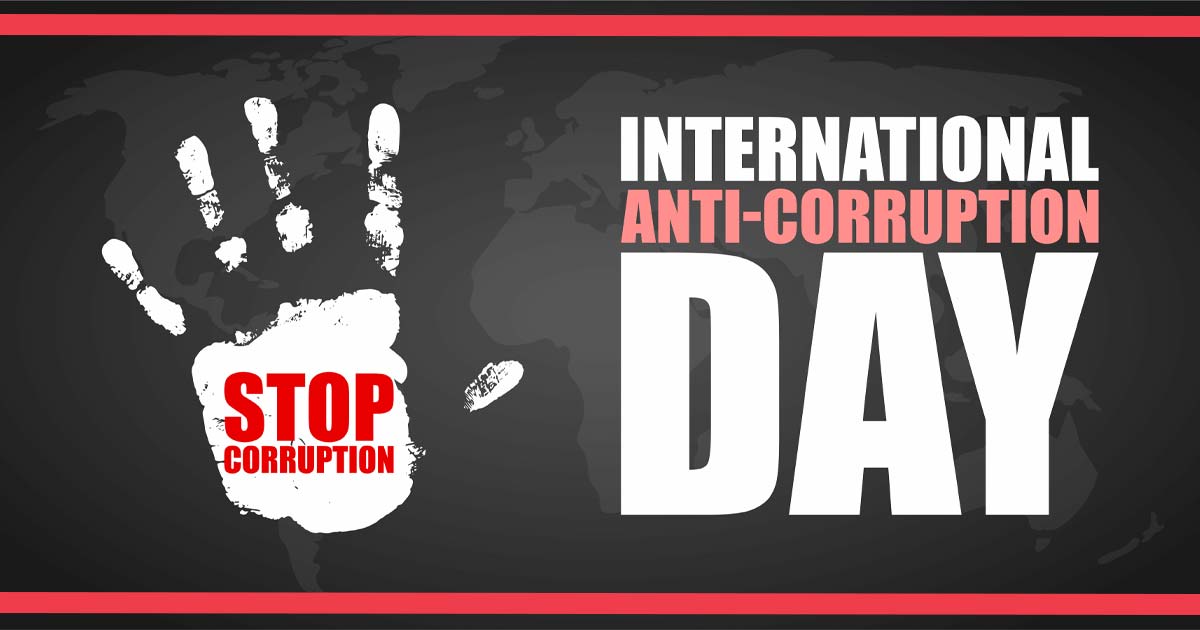
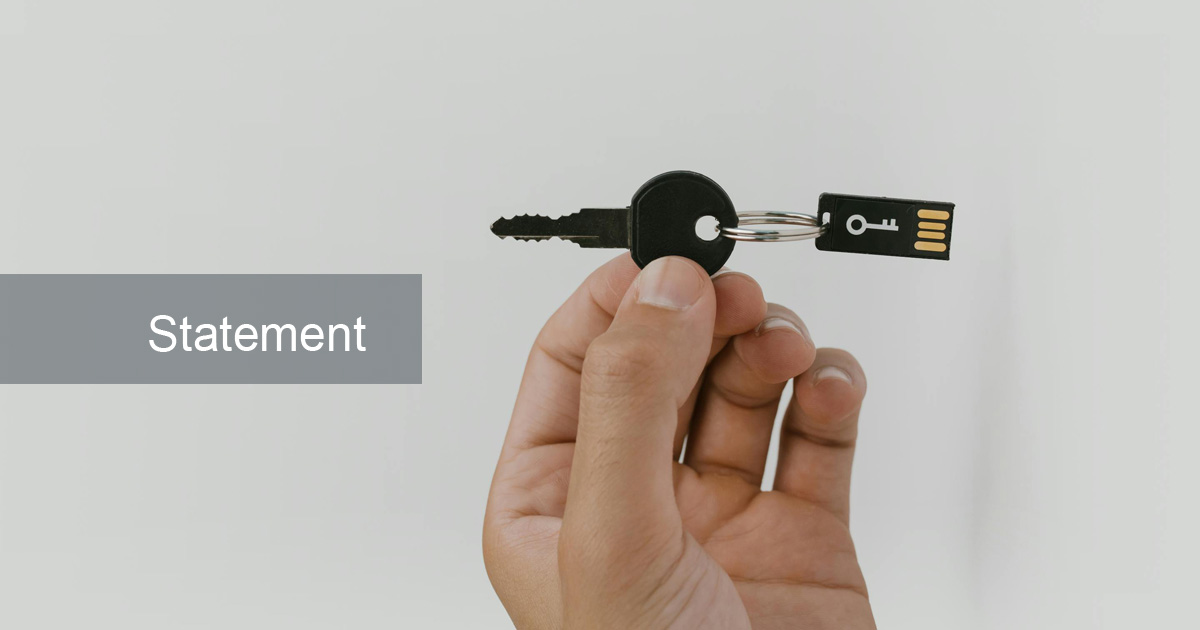
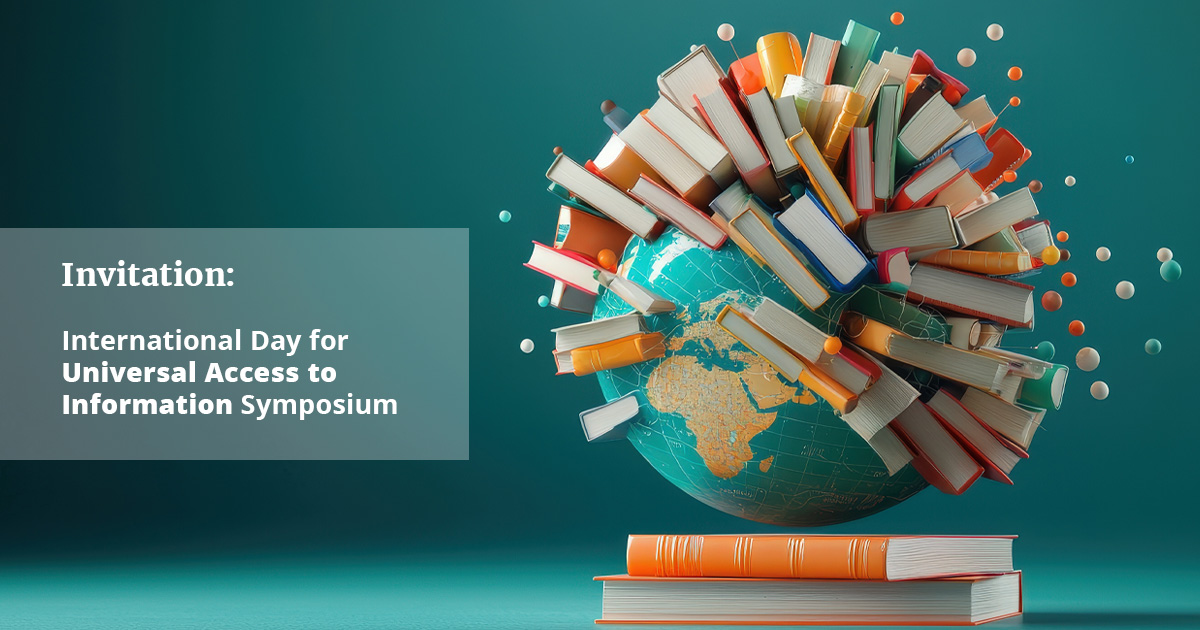
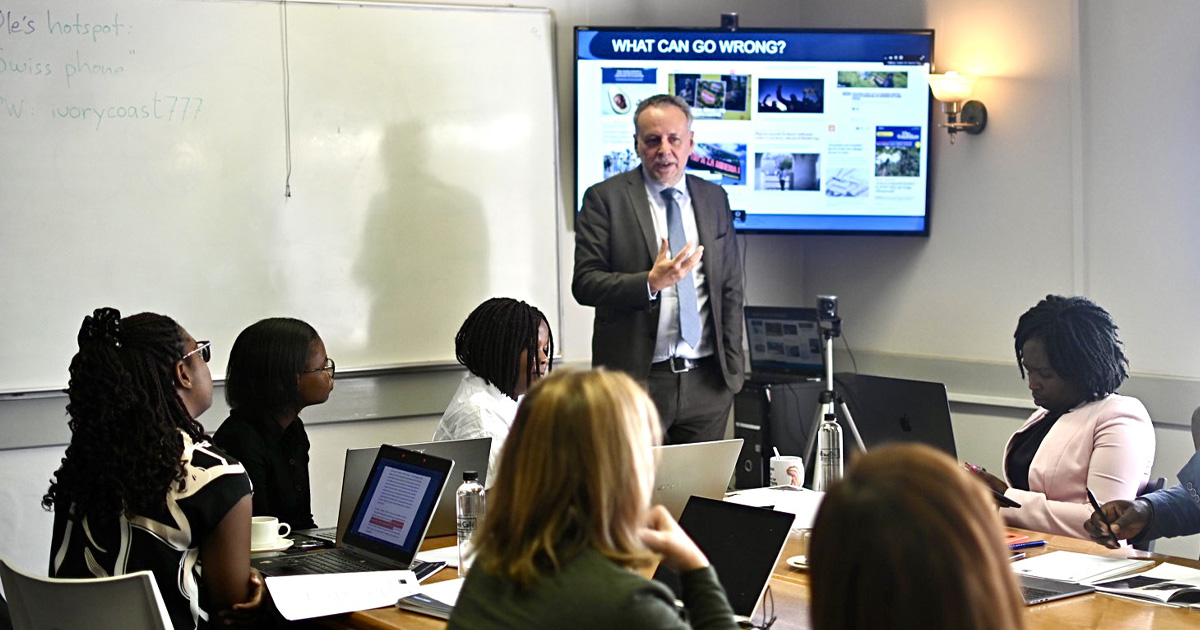
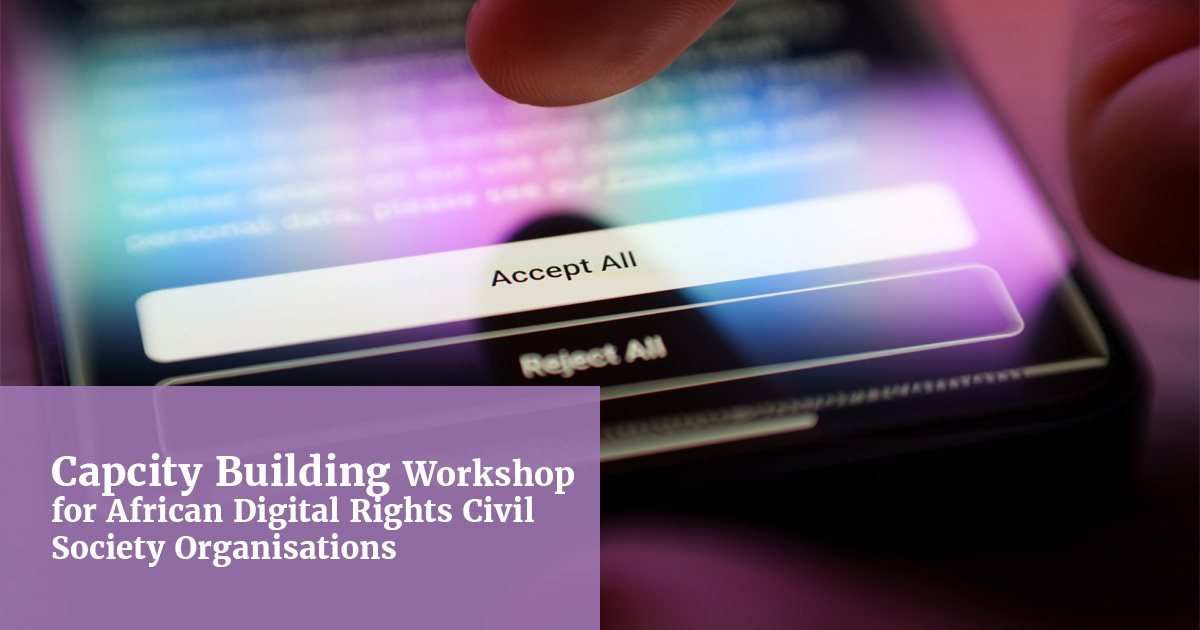
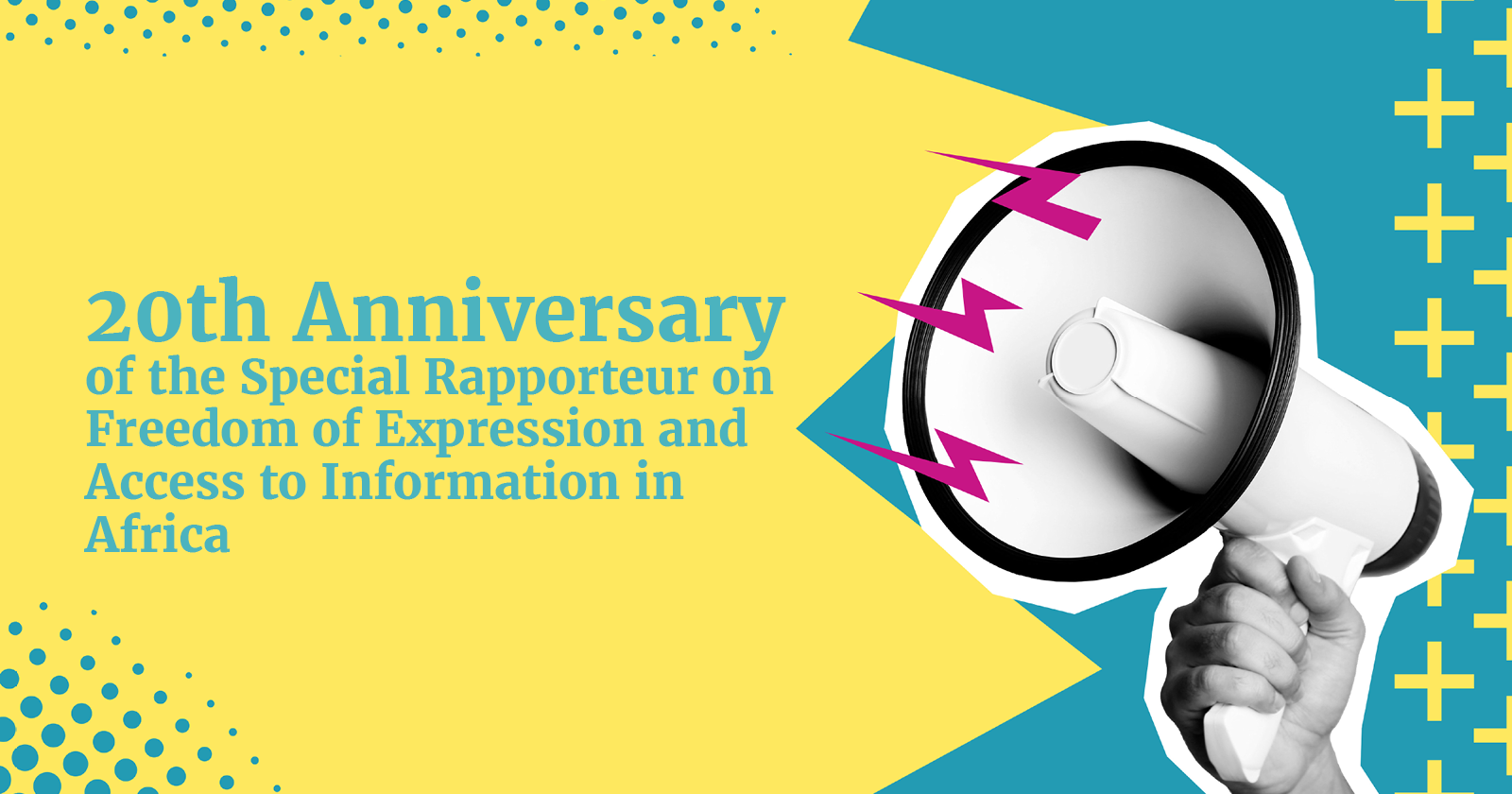
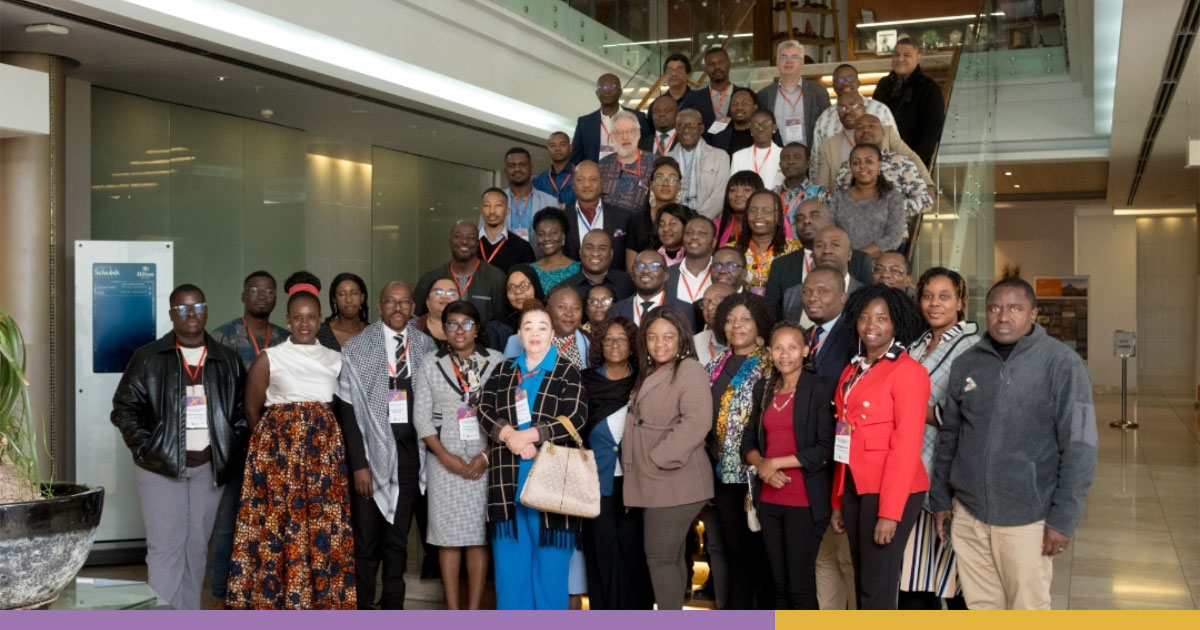

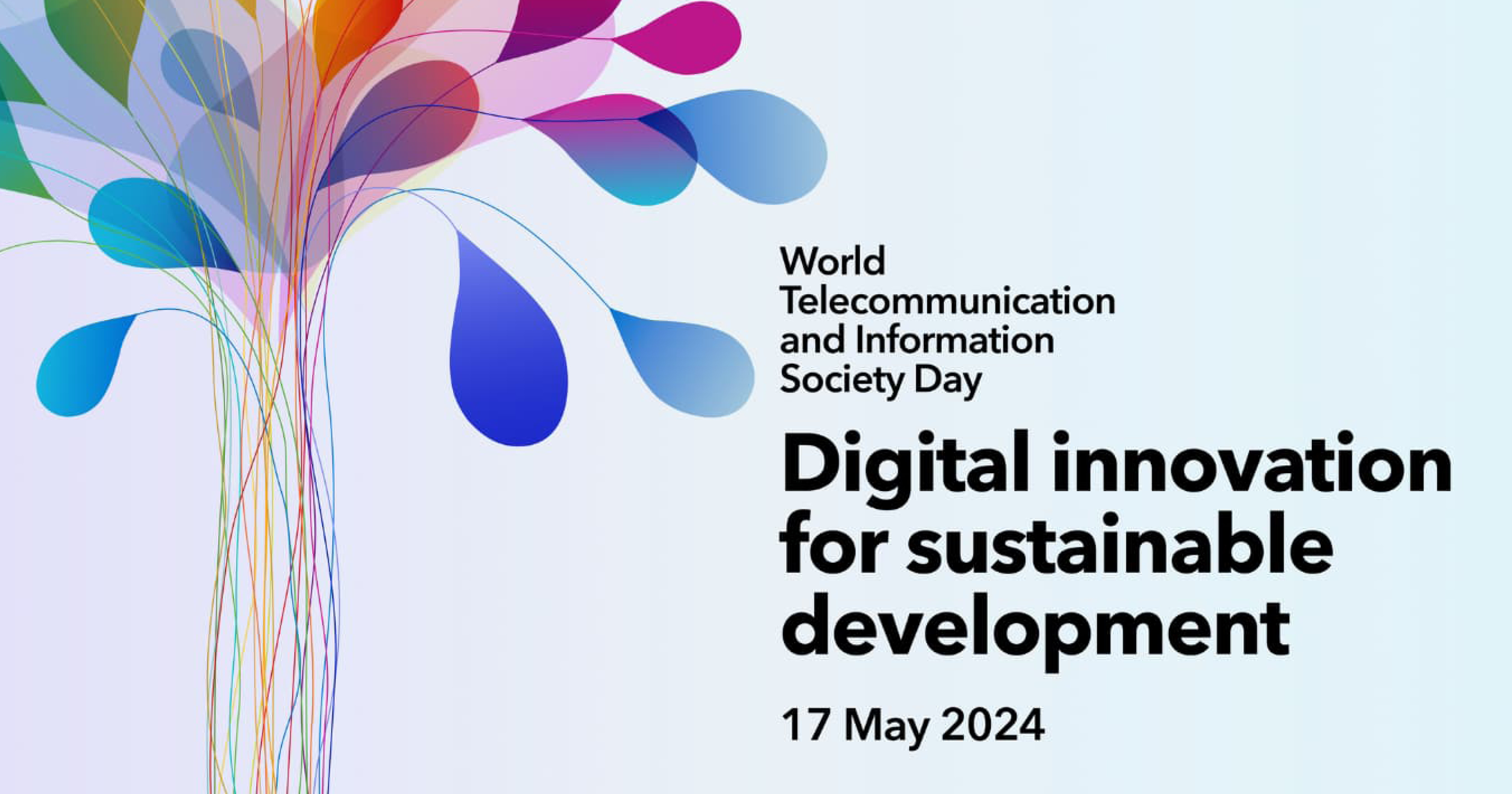
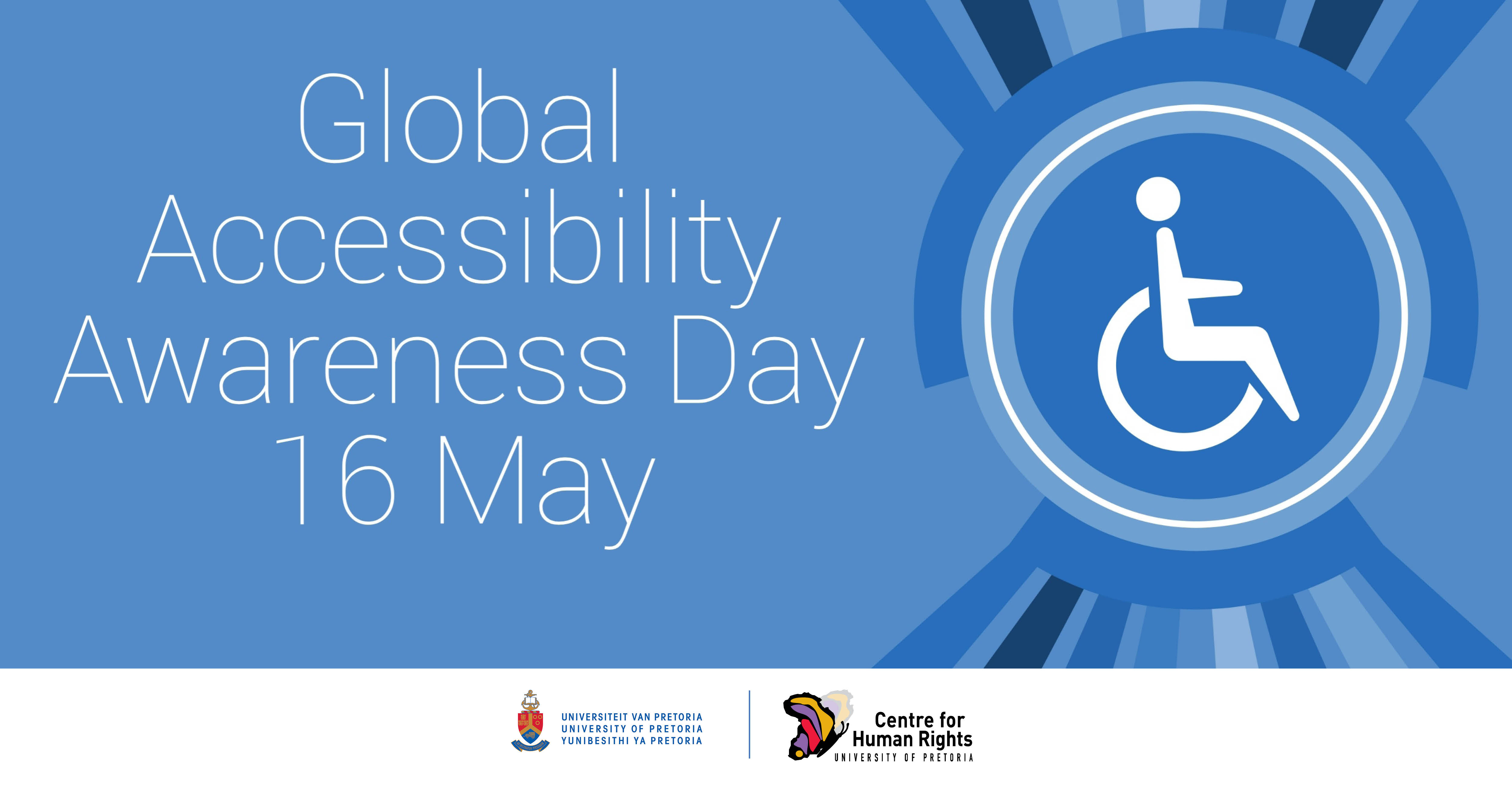
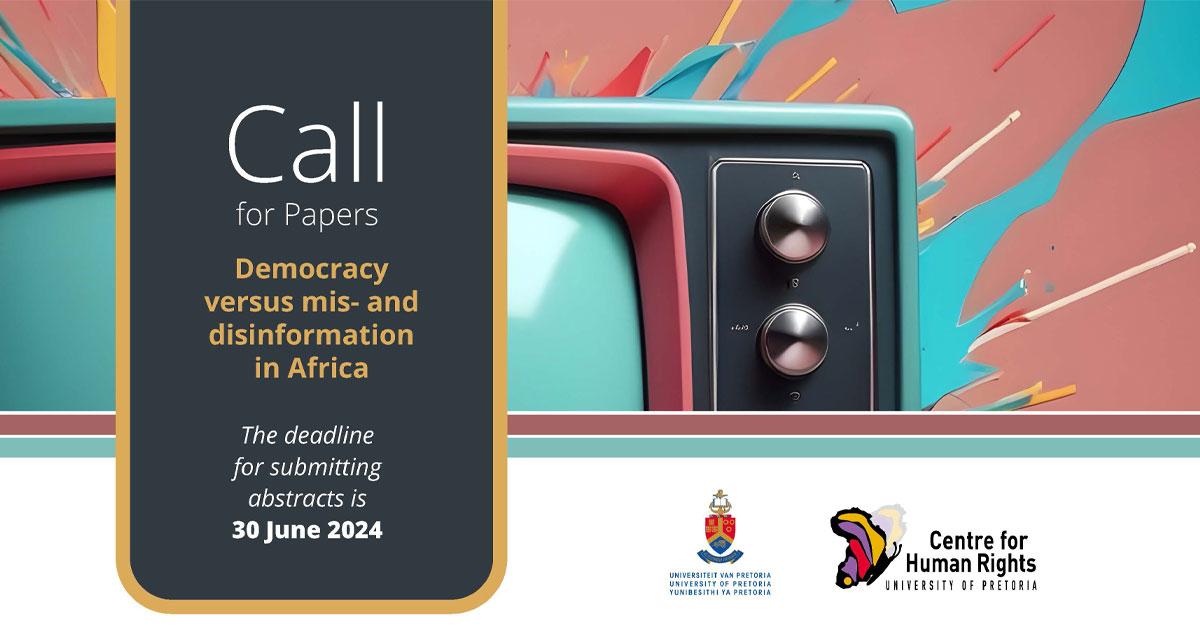
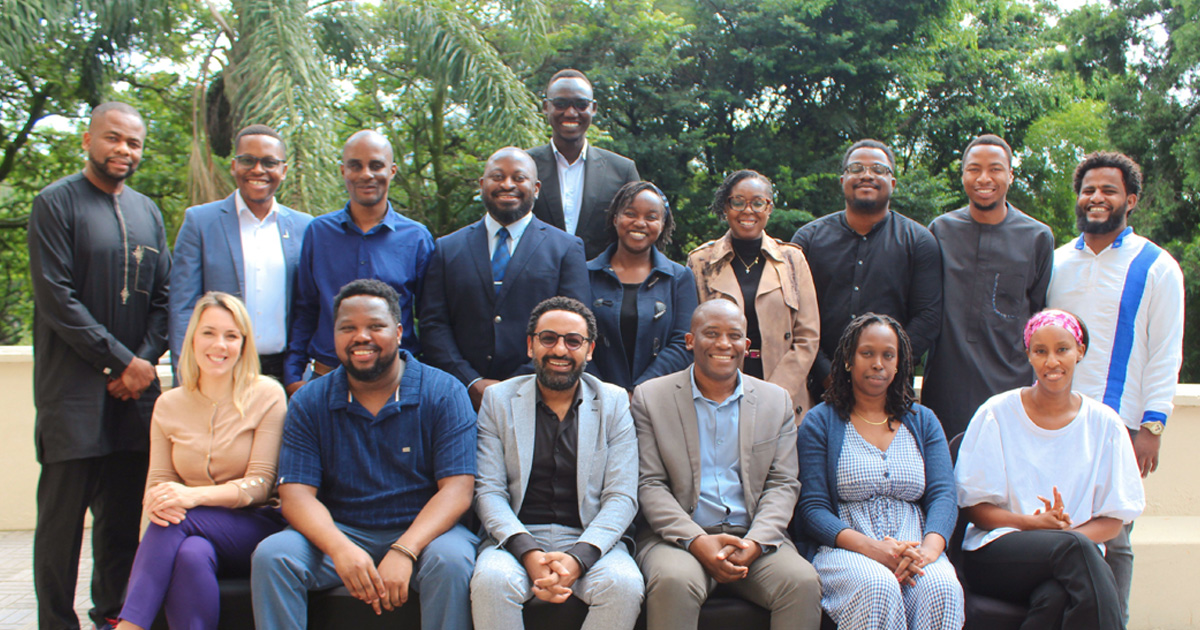
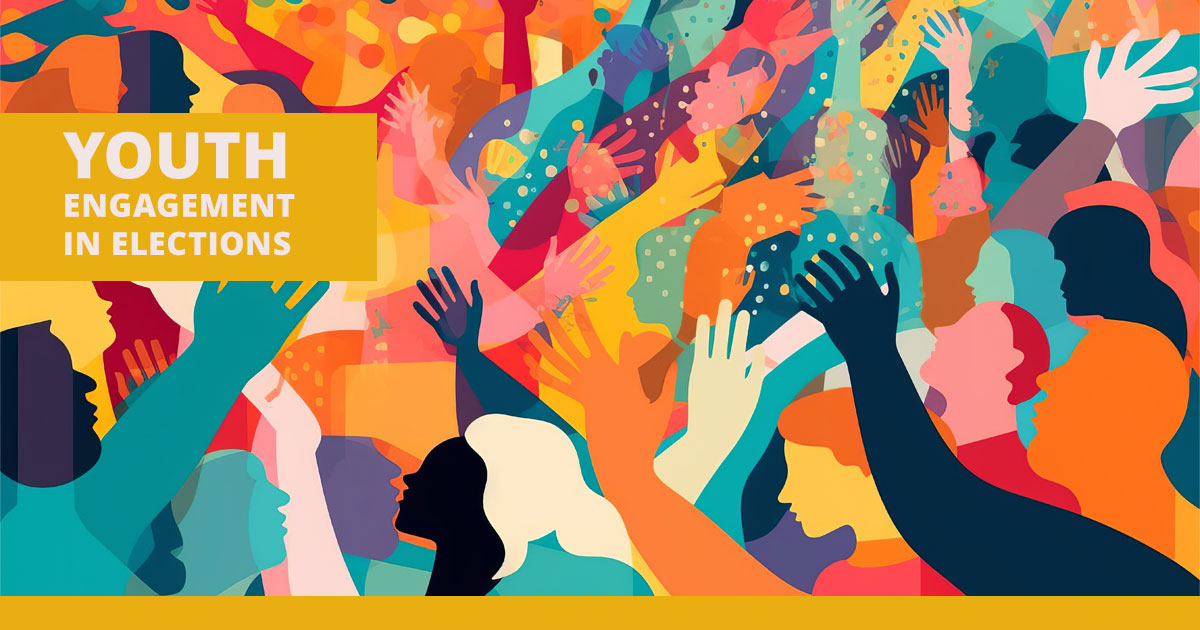
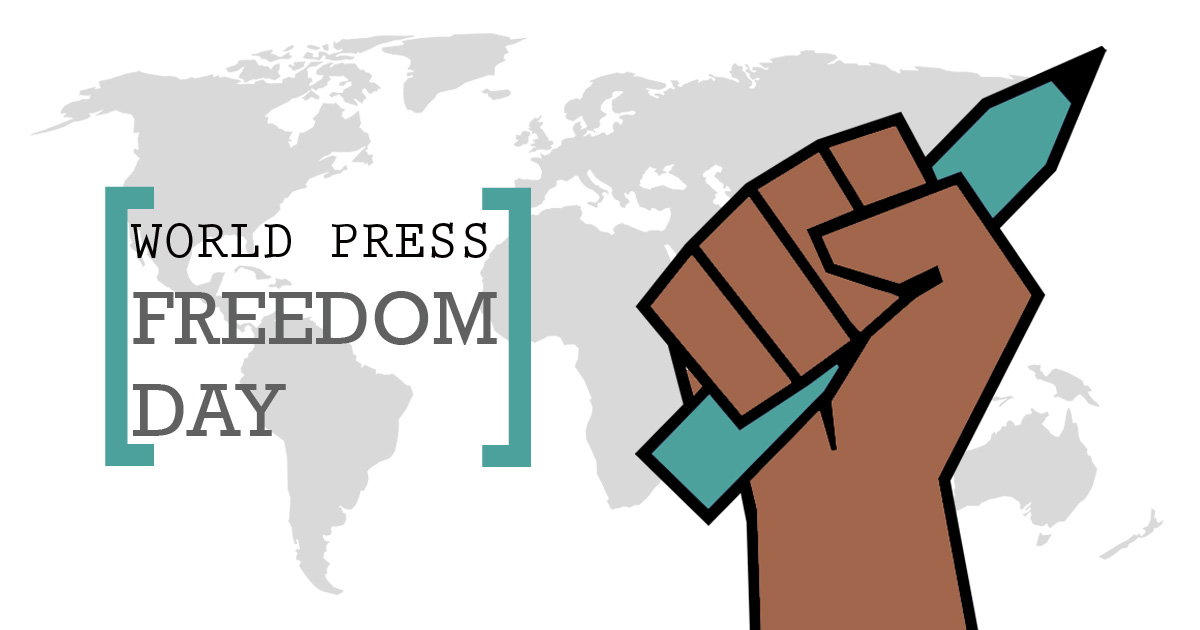
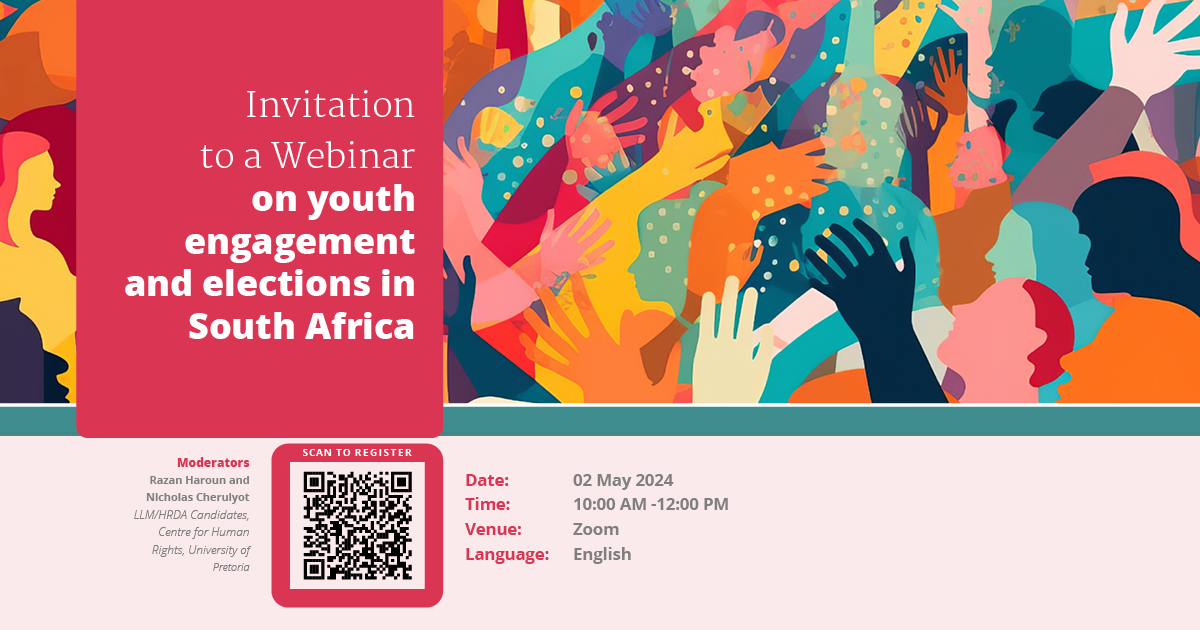
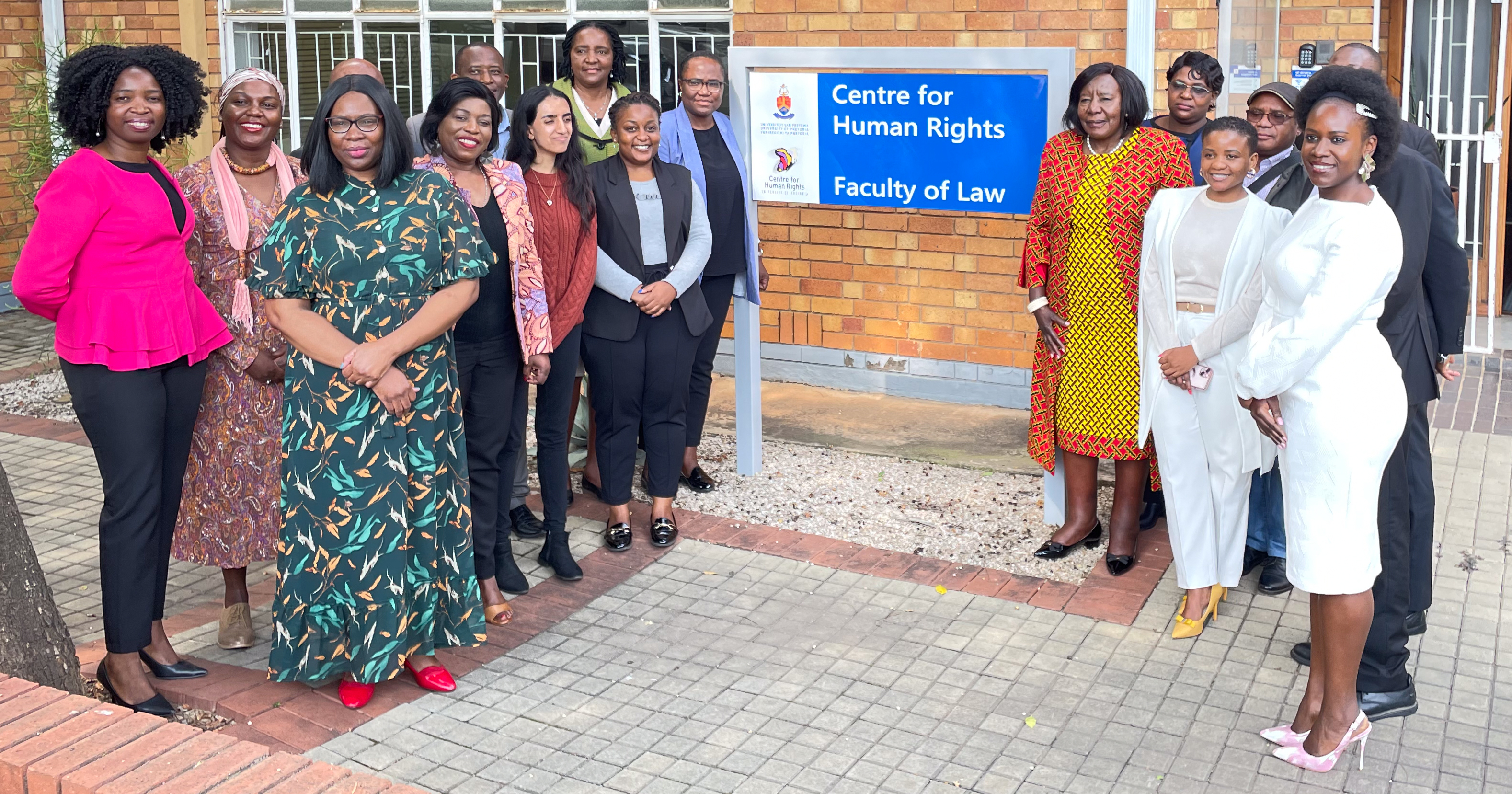
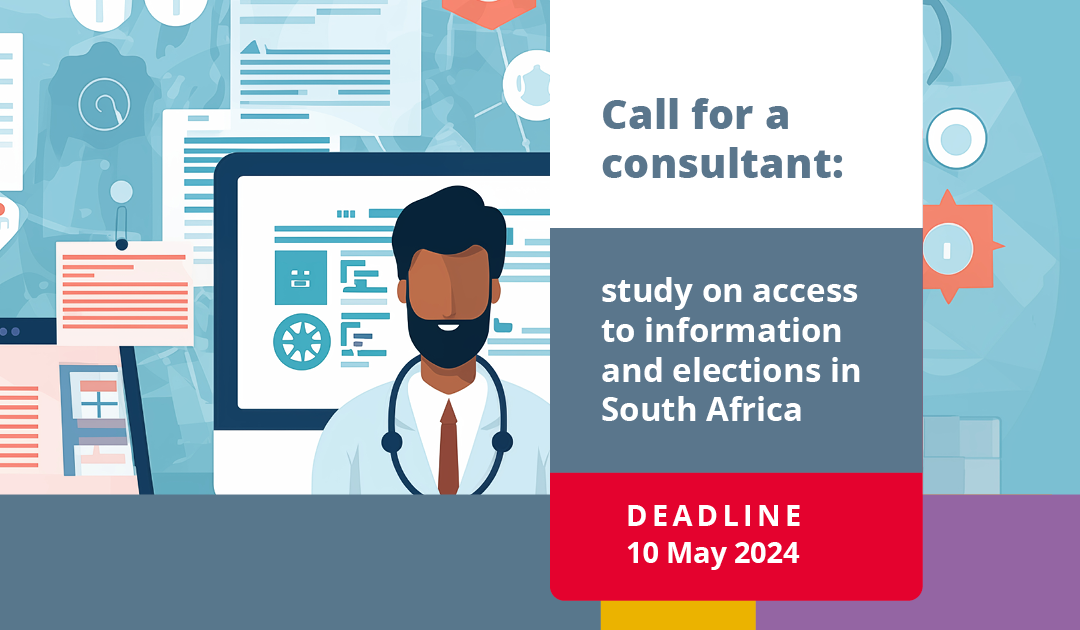

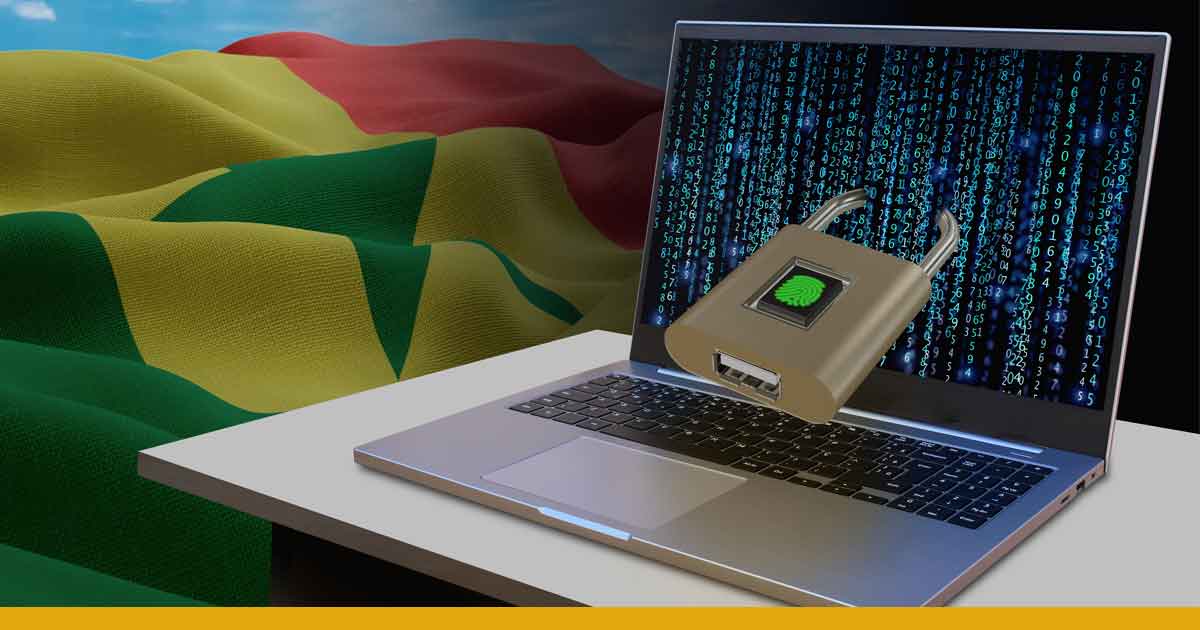
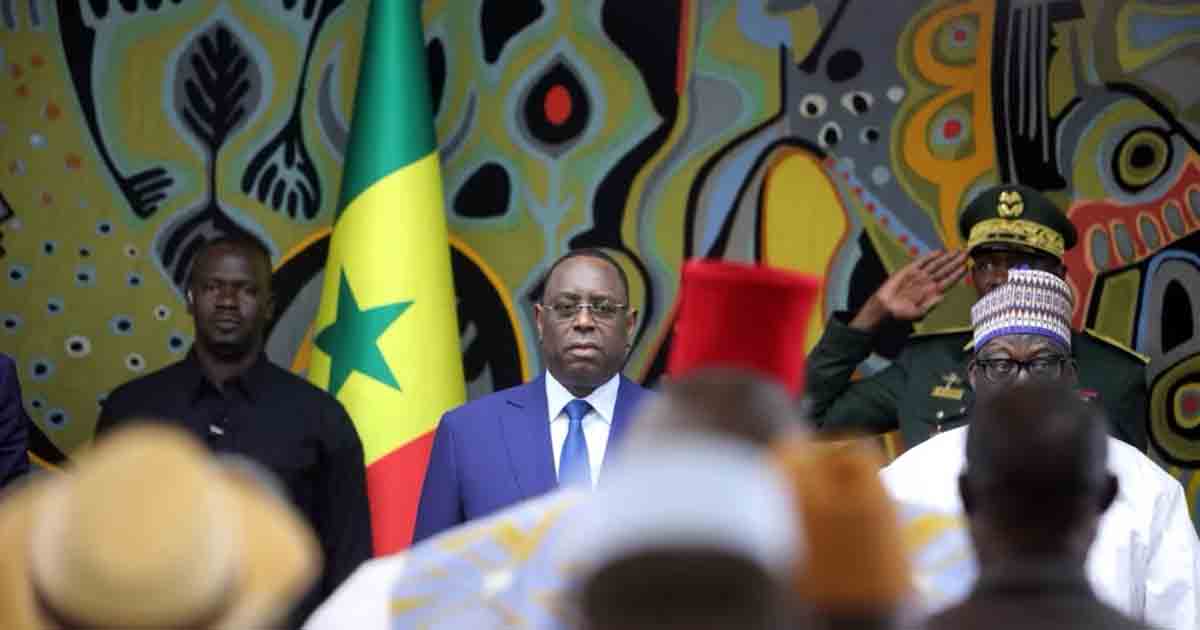
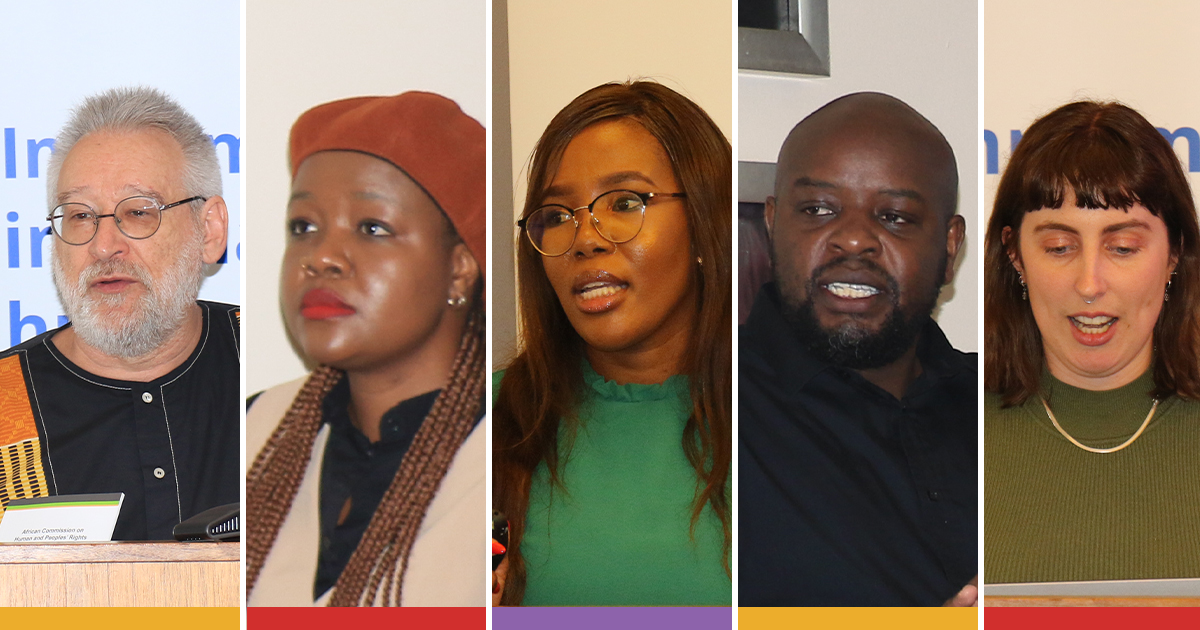
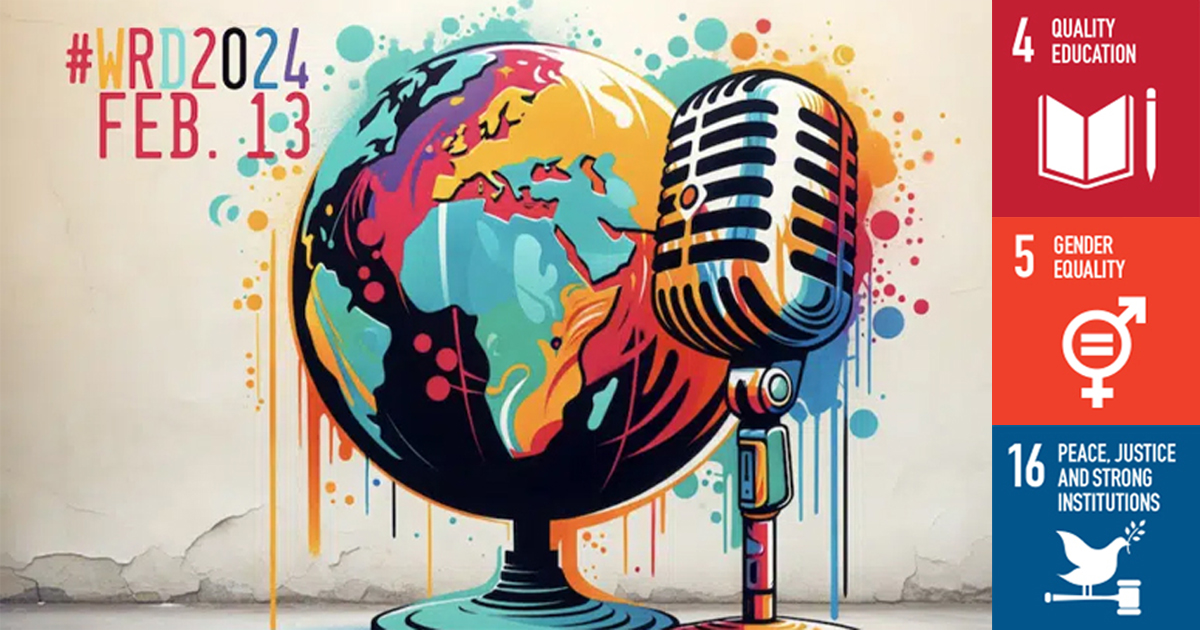
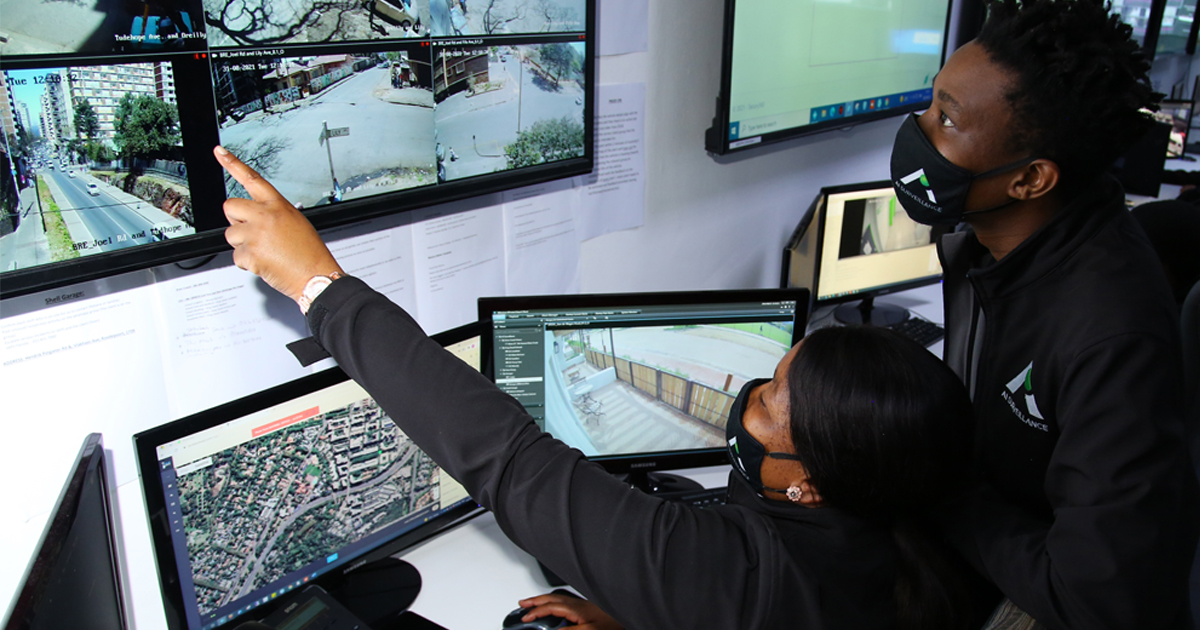
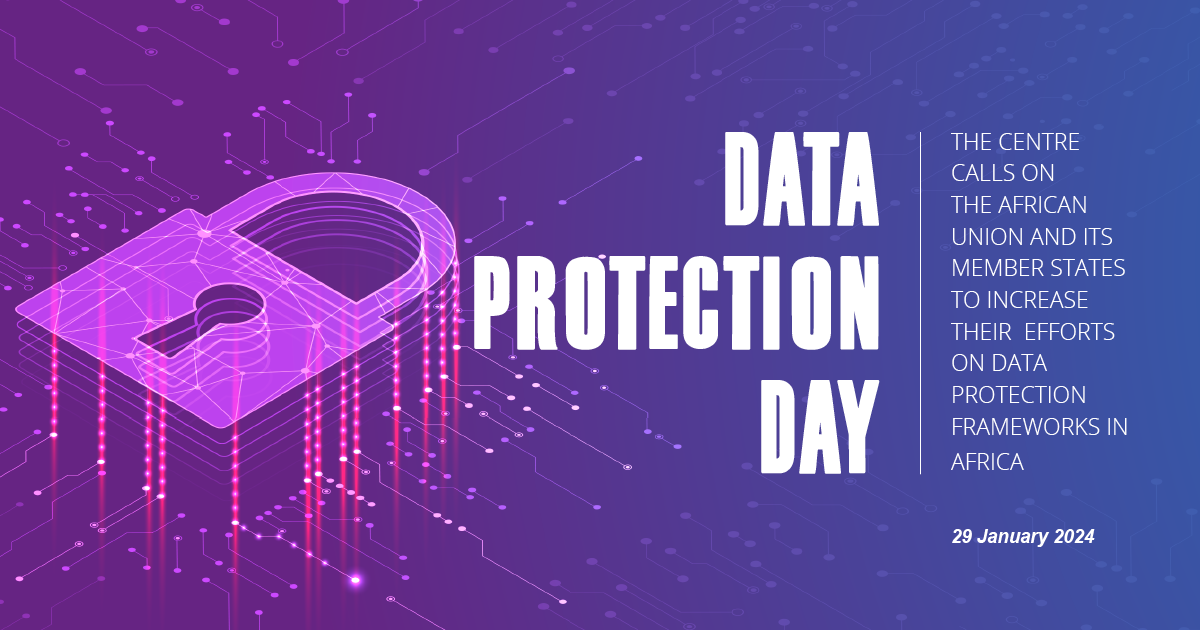
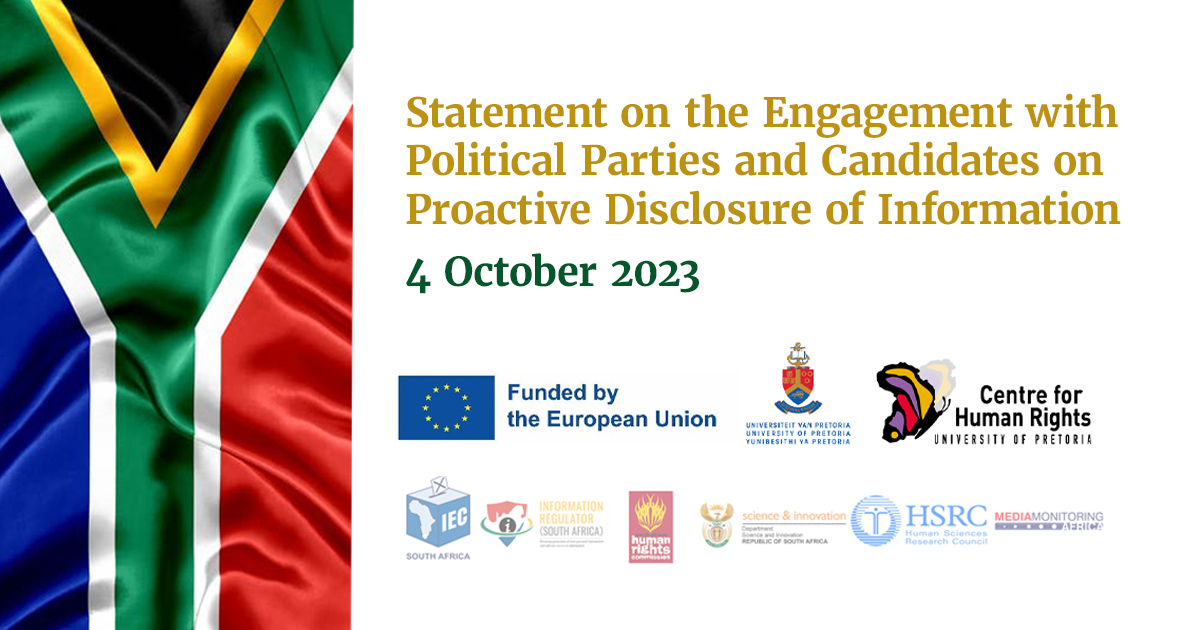
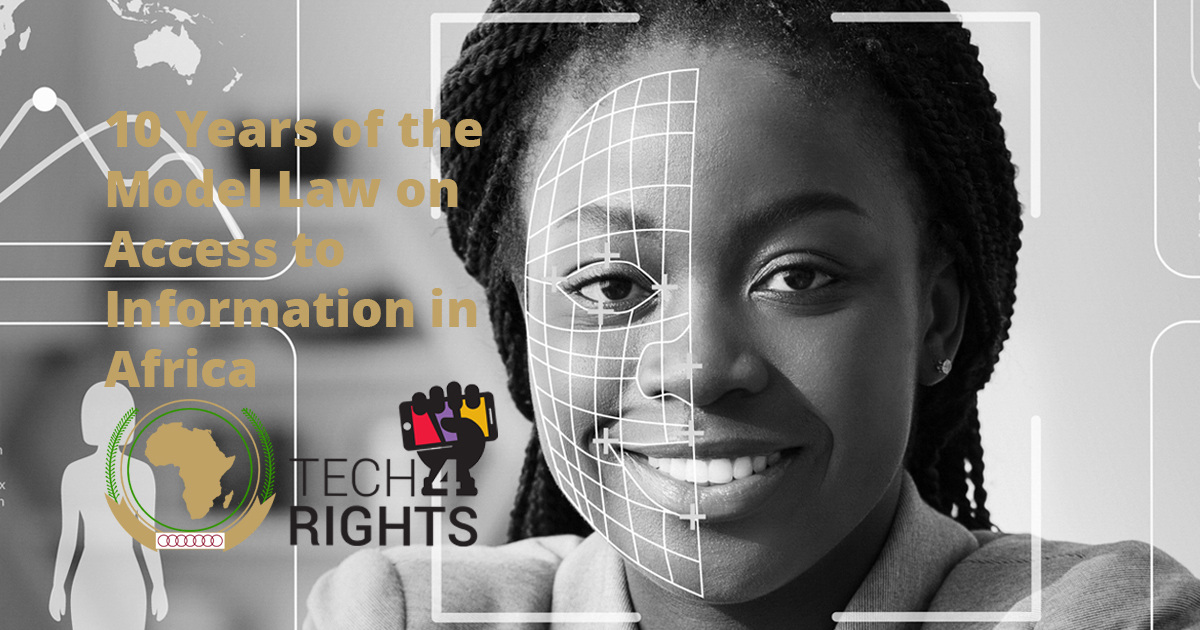
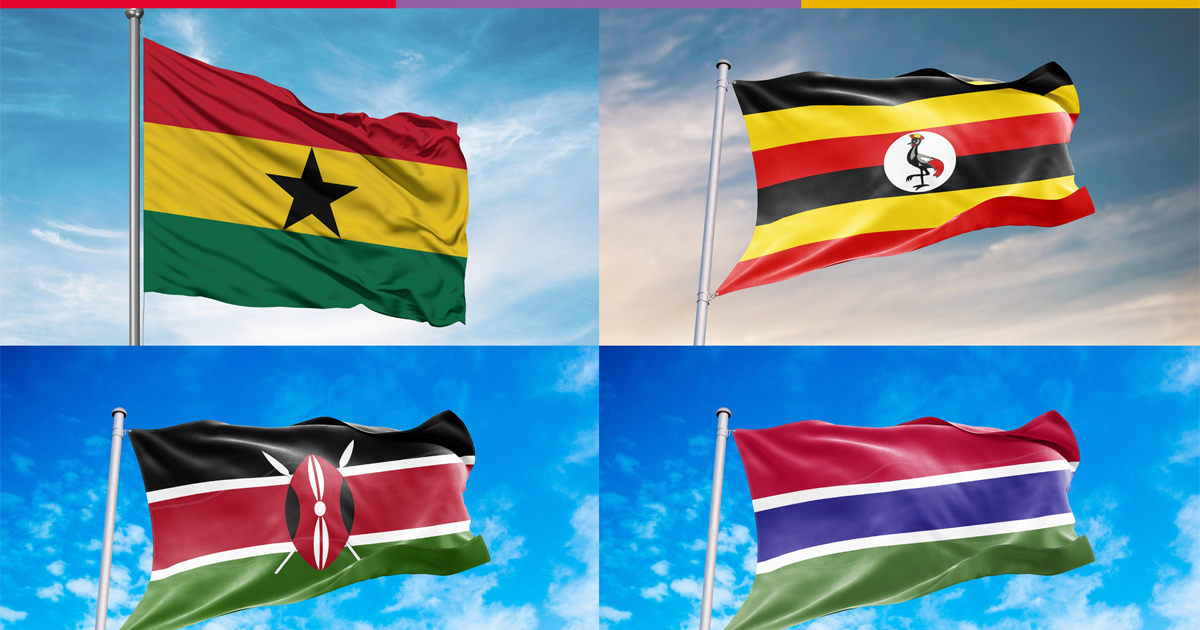


![[in picture: Participants of the Multi-stakeholder engagement]](/images/centrenews/2023/healthy-information-landscape.jpg)
![[In picture, the manager of the Expression Information and Digital Rights Unit of the Centre for Human Rights, Hlengiwe Dube, the Executive Director of the Transformation Resource Centre, Tsikoane Peshoane, and several legislative committee representatives from Lesotho, attending the digital rights capacity building workshop]](/images/centrenews/2023/Training-for-Parliamentarians.jpg)
